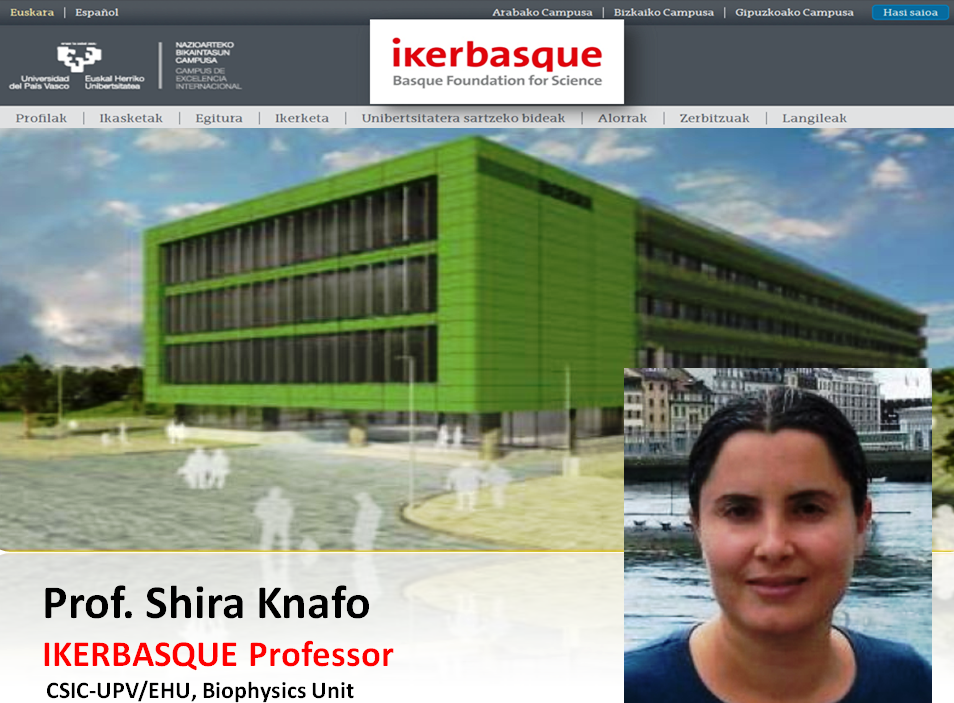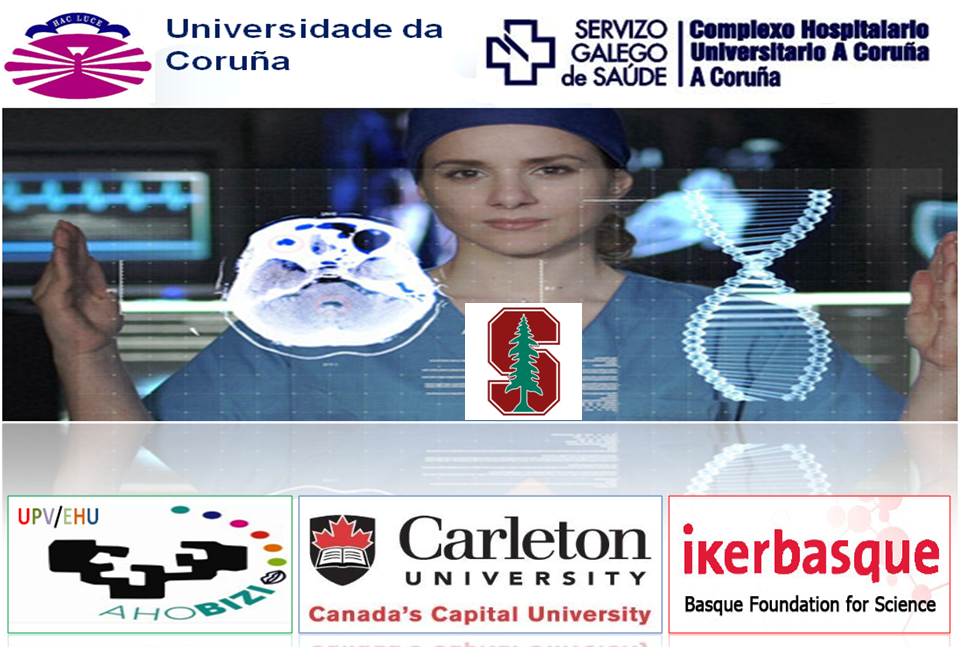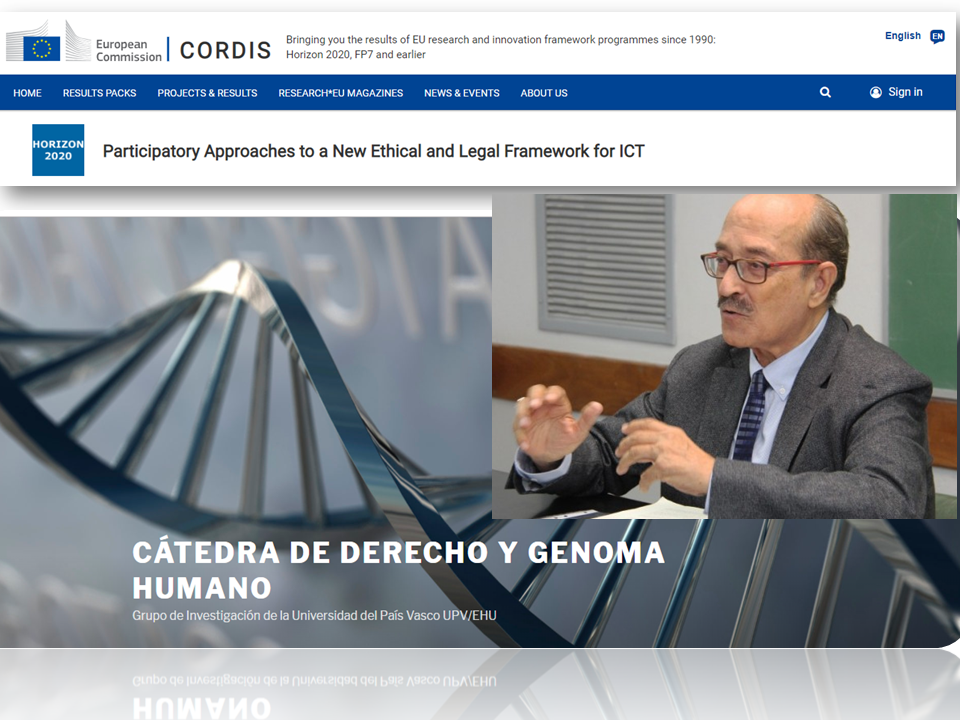
MOL2NET'21, Conference on Molecular, Biomed., Comput. & Network Science and Engineering, 7th ed.
25 January–30 December 2021
Chemistry, Medicinal Chemistry, Biomedical Engineering, Bioinformatics, Computational Sciences, Nanotechnology, artificial intelligence, Materials, Regulatory Affairs
- Go to the MOL2NET'21 CONGRESSES
-
- 00. News & Editorials
- 01. CHEMBIO.INFO-07: Cheminfo., Chemom., Comput. Chem. & Bioinfo. Congress München, GR-Cambridge, UK-Ch. Hill, USA, 2021.
- 02. CHEMBIO.ORG-07: Org. Chem., Med. Chem., Mol. Biol., & Pharm. Industry Congress, Paris, France-Galveston, USA, 2021.
- 03. NANOBIO.MAT-07: Nanotech., Biomed. Eng., & Mat. Sci. Congress, Birmingham & Portsmouth, UK-Jackson & Fargo, USA, 2021.
- 06. BIOMODE.ECO-06: Biotech., Mol. Eng., Nat. Prod. Develop. and Ecology Congress, Paris, France-Ohio, USA, 2021.
- 01. USE.DAT-07: USA-Europe Data Analysis Trends Congress, Cambridge, UK-Bilbao, Basque Country-Miami, USA, 2021
- 05. AI.MED-08: AI, Neuro Sciences, Med. Info., & Biomed. Eng. Congress, Coruña, Spain-Carleton, Canada-Stanford, USA, 2021
- 07. NICE.XSM-07: North-Ibero-America Congress on Exp. & Simul. Methods, Valencia, Spain-Miami, USA, 2021
- 08. <Empty session 1>
- 10. <Empty session 3>
- 11. <Empty session 4>
- 09. <Empty session 2>
- 12. <Empty session 5>
- Event Details
-
- Welcome from the Chair
- Conference Chairs
- MOL2NET'21 CONGRESSES
- Instructions for Authors
- List of Accepted Submissions
- List of Authors
- Sponsors and Partners
- MOL2NET Honor & Scientific Committee
- CATCH4HIT Academy ft. Industry Committee
- MOL2NET-IKERBASQUE Advisory Committee
- MOL2NET-MDPI Committee
- MOL2NET-PANELFIT Webinars
- MOL2NET Info., Steps, Schedule
- REVIEWWWERS-07 Workshop
- FAQS MOL2NET Conf. Series
- MOL2NET Privacy Policy
Welcome from the Chair
[MOL2NET 2015] [MOL2NET 2016] [MOL2NET 2017] [MOL2NET2018] [MOL2NET2019]
[Welcome Videos] [官话] [हिन्दी] [Euskera] [Castellano] [Português] [Français]

MOL2NET 2020 Stats.: >100 Communications, >200 Authors, >10 Journal Issues, Join us!!!
Welcome From Chairs
MOL2NET runs both online and/or in person workshops in host universities worldwide and at the SciForum platform maintained by the editorial MDPI, Basel, Switzerland. The idea of this multidisciplinary conference emerged from the melting pot formed as the result of multiple collaborations of professors from many centers worldwide.
International Partners. Internationally, professors and researchers from Stanford Center for Biomedical Informatics Research (BMIR), Stanford University (STANFORD), USA; Center for the Study of Biological Complexity (CBDS) of Virginia Commonwealth University (VCU), USA; Natural Resources Research Institute (NRRI), University of Minesota (UMN), USA; Miami Dade College (MDC), USA; North Dakota State University (NDSU), USA; Centre National de la Recherche Scientifique (CNRS) and Université Paris-Saclay (UPS), Paris, France, European Bioinformatics Institute (EMBL-EBI) Cambridge, United Kingdom, Universität Rostock Institut für Chemie (UROSTOCK), Germany; and other institutions are co-founders and/or supporters of this conference.
Local Headquarters and Partners. The Scientific Headquarters (HQs) of this conference series are in the Faculty of Science and Technology, University of Basque Country (UPV/EHU), Basque Country, Spain. This center is also the host of some of the workshops of the conference. More specifically, the founders and strongest supporters of the conference are professors endowed by IKERBASQUE, Basque Foundation for Sciences (IKERBASQUE), professors from the Department of Organic & Inorganic Chemistry, Department of Organic Chemistry, and Basque Centre for Biophysics (BIOFISIKA) of the University of Basque Country (UPV/EHU), and Center for Cooperative Research in Biosciences (CICBIOGUNE), Basque Country, Spain. In addition, act also as local co-hosting partners professors from the Department of Computer Sciences of the University of Coruña (UDC), Galicia, Spain. Please, see full committees lists [MOL2NET HONOR & SCI COMMITTEE] and [MOL2NET-IKERBASQUE Staff]. In this sense, all these and other local and international centers acts as co-hosting partners for some of the workshop sessions of this conference.
MOL2NET Lemma and Topics of Interest
MOL2NET Sessions & Workshops
You can participate both online or in person (face-to-face) in some of the workshops we organize in different universities worldwide (see sessions in the conference menu). Publication of all communications of the workshops will be online via the platform SciForum. We welcome proposals for organization of workshops in different universities. Please, do not hesitate to contact conference chairperson and/or scientific committee presidents. See also a list of workshops/sessions running this year.
02. CHEMBIOINFO-07: EJIBCE & Chem-Bioinfo. Congress Coimbra, Portugal-München, Germany-Ch. Hill, USA, 2021
03. CHEMBIOMOL-07: Chem. Biol., Med. Chem., & Mol. Biol. Congress, Paris, France-Galveston, USA, 2021
04. NANOBIOMAT-07: Nanotech. & Mat. Sci. Congress, Birmingham & Portsmouth, UK-Jackson & Fargo, USA, 2021.
05. AIMEDIC-08: AI, Med. Info., & Biomed. Eng. Congress, Coruña, Spain-Carleton, Canada-Stanford, USA, 2021
06. MODECO-06: Molec. Diversity, Environ. Chem., and Economy Congress, Paris, France-Ohio, USA, 2021
07. NICXSM-07: North-Ibero-American Congress on Exp. & Simul. Methods, Valencia, Spain-Miami, USA, 2021
MOL2NET-MDPI JCR Journals Issues
 https://orcid.org/0000-0002-9392-2797, Email: mol2net.chair@gmail.com
https://orcid.org/0000-0002-9392-2797, Email: mol2net.chair@gmail.com(1) Dept. of Organic and Inorganic Chemistry and Basque Center for Biophysics, University of the Basque Country UPV/EHU , 48940, Leioa, Biscay, Spain. (2) IKERBASQUE, Basque Foundation for Science , 48011, Bilbao, Biscay, Spain.
Conference Chairs
Dept. of Organic and Inorganic Chemistry, University of The Basque Country UPV/EHU, Leioa, 48940, Greater Bilbao, Basque Country, Spain. Website
Dept. of Organic and Inorganic Chemistry, University of The Basque Country UPV/EHU, Leioa, 48940, Greater Bilbao, Basque Country, Spain.
mol2net.chair@gmail.com
MOL2NET'21 CONGRESSES
01. CHEMBIO.INFO-07: Cheminfo., Chemom., Comput. Chem. & Bioinfo. Congress München, GR-Cambridge, UK-Ch. Hill, USA, 2021.
02. CHEMBIO.ORG-07: Org. Chem., Med. Chem., Mol. Biol., & Pharm. Industry Congress, Paris, France-Galveston, USA, 2021.
03. NANOBIO.MAT-07: Nanotech., Biomed. Eng., & Mat. Sci. Congress, Birmingham & Portsmouth, UK-Jackson & Fargo, USA, 2021.
06. BIOMODE.ECO-06: Biotech., Mol. Eng., Nat. Prod. Develop. and Ecology Congress, Paris, France-Ohio, USA, 2021.
01. USE.DAT-07: USA-Europe Data Analysis Trends Congress, Cambridge, UK-Bilbao, Basque Country-Miami, USA, 2021
05. AI.MED-08: AI, Neuro Sciences, Med. Info., & Biomed. Eng. Congress, Coruña, Spain-Carleton, Canada-Stanford, USA, 2021
07. NICE.XSM-07: North-Ibero-America Congress on Exp. & Simul. Methods, Valencia, Spain-Miami, USA, 2021
08. <Empty session 1>
10. <Empty session 3>
11. <Empty session 4>
09. <Empty session 2>
12. <Empty session 5>
Instructions for Authors
MOL2NET Steps for Participation
Publication Stage
(00) Register, Sign in/Login, to Sciforum platform [Submit New Abstract]
(01) Submit the title and abstract, select a section/congress (do not upload paper here)
(02) Wait for Abstract acceptance email and follow the link inside email
(03) If abstract is accepted, download template doc [MOL2NET'21 Template.doc]
(04) Prepare your communication using this template
(05) Follow the link inside acceptance email and/or login directly
(06) After login upload communication in doc and pdf format
Post-Publication Stage
(07) Wait for paper acceptance and publication emails
(08) Follow link to proofread your paper (Asap after publication)
(09) Contact chairpersons for corrections, mol2net.chair@gmail.com
(10) Wait for email advising about beginning of post-publication stage
(11) Log in to post comments, questions, or answers in your/other works
(12) Contact chairpersons if you need attendance certificate for conference.
List of accepted submissions (200)
| Id | Title | Authors | Poster PDF | ||||||||||||||||||||||||||||||||||||||
|---|---|---|---|---|---|---|---|---|---|---|---|---|---|---|---|---|---|---|---|---|---|---|---|---|---|---|---|---|---|---|---|---|---|---|---|---|---|---|---|---|---|
| sciforum-043139 | Big Data Analytics using IoT | N/A |
Show Abstract |
||||||||||||||||||||||||||||||||||||||
|
Development of big data and IoT is rapidly increasingly and affecting all the major technologies and the business by increasing the benefits for the individual and organisations. The increasing growth of data of IoT devices has played a major role for use of Big Data. Big data is categorize into three aspects (a) Variety (b) Volume (c) Velocity [1]. These categories are introduced by Gartner to describe the elements of big data challenges. Various opportunities are presented by the capability to analyze and utilize huge amounts of IoT data, including applications in smart cities, smart transport and grid systems, energy smart meters, and remote patient healthcare monitoring devices. The more popularity of Internet of Things day by day has made a big data analytics challenging because of the processing and collection of data through different sensors in the IoT network. The IoT data are totally different from normal big data collected through systems in terms of characteristics because of the various sensors and objects involved during data collection, which include heterogeneity, noise, variety, and rapid growth. |
|||||||||||||||||||||||||||||||||||||||||
| sciforum-043345 | Isolation, Characterization, and Application of Bacteriophages against Salmonella enterica. | , , , , , | N/A |
Show Abstract |
|||||||||||||||||||||||||||||||||||||
|
Salmonella infection is an important foodborne consumer health concern that can be mitigated during food processing. Bacteriophage therapy imparts many advantages over conventional chemical preservatives including pathogen specificity, natural derivation, potency, and providing a high degree of safety. The objective of this study aimed to isolate and characterize phages that effectively control Salmonella food contamination. A total of 36 bacteriophages infecting Salmonella enterica were isolated, tested at different pH ranging from 3 to 11, and at high temperatures from 37 ° C to 70 ° C, then tested against 11 strains in order to define their host range. The kinetics of phages have been studied in order to understand their lysis process. The genomic restriction profile of the isolated phages was interpreted following the action of 5 restriction enzymes (BamHI, EcoRI, HindIII, and EcoRV, and NdeI). Tests of the application of these phages were carried out on a food matrix in order to evaluate their ability to fight against Salmonella enterica. The results obtained are very encouraging, showing the possibility of using the bacteriophages isolated against Salmonella enterica, which can have a significant socio-economic impact. |
|||||||||||||||||||||||||||||||||||||||||
| sciforum-043289 | In vitro Assessment of the probiotic characteristics of Bacillus strains from gut of gilt-head bream, Sparus aurata | , , , , , , , | N/A |
Show Abstract |
|||||||||||||||||||||||||||||||||||||
|
Background and aim: The rapid development of aquaculture, its intensification, and the occurrence of fish health problems on farms push to develop alternative methods to antibiotics and chemotherapy for controlling fish diseases. In this regard, the application of antibiotics as therapeutic and/or prophylactic strategies during fish production may lead to serious health and environment problems such as bacterial drug resistance development and dissemination, and food safety concerns. Probiotics may provide a potential alternative method to protect fish from opportunistic and pathologic bacteria and promote a balanced environment.
Methods: Evaluating the in vitro probiotic properties of nine bacteria of aquatic or gut of gilt-head bream for their application in aquaculture. Selection was was assayed by subtractive screening with several criteria including, their antimicrobial activity (Bacteriocin) against fish pathogens, tolerant to low pH and bile salts, their secretion of enzymes and finally their in vitro safety assessment Results: Two of the nine bacteria isolated from several biotopes showed strong antibacterial activity against several pathogenic species such as Lactococcus garvieae, Vibrio anguillarum, Vibrio harveyi, Aeromonas hydrophila and Aeromonas salmonicida. These endospores-forming strains were withstand gastrointestinal conditions, produced a notable amylase, protease and lipase activities, showed high percentages of hydrophobicity, auto-aggregation and co-aggregation with fish pathogens and a strong adhesion to several fishes mucus and presented also a strong inhibition of pathogens adhesion. The tested strains showed a great heterogeneity respect to their safety and antibiotic susceptibility and were taxonomically identified by partial 16S rDNA gene sequencing. Conclusion: Given their antimicrobial activity against fish pathogens and their safety, some of the tested strains may be considered as potential fish probiotics, and their effectiveness will be further tested in vivo. |
|||||||||||||||||||||||||||||||||||||||||
| sciforum-043521 |
MOL2NET-07, Conference on Molecular, Biomedical, and Computational Sciences and Engineering, ISSN: 2624-5078, MDPI SciForum, Basel, Switzerland, 2021, 7th ed. , Alexander Tropsha ,
,
,
,
,
,
,
,
,
,
,
,
,
,
,
,
,
,
Submitted: 05 Feb 2021 Abstract: Show Abstract |
,
Alexander Tropsha ,
,
,
,
,
,
,
,
,
,
,
,
,
,
,
,
,
,
|

|
Show Abstract |
|||||||||||||||||||||||||||||||||||||
|
Dear colleagues worldwide, we invite you to MOL2NET-07, Conference on Molecular, Biomedical, and Computational Sciences and Engineering (Formerly International Conference on Multidisciplinary Sciences), ISSN: 2624-5078, MDPI SciForum, Basel, Switzerland, 2021. MOL2NET is an international conference formed by an association of several inter-university tans-Atlantic congresses (Click here [Sessions] or see left panel menu). These congresses are hosted by one chairperson of a North America/Europe university and one or various co-host chairpersons from other centers worldwide. MOL2NET Congresses (Sessions). This a multidisciplinary conference formed by various interrelated congresses (Click here [Sessions] or see left panel menu). Consequently, most congresses share topics. From previous section you can conclude that the topics of interest covered are wide. However, you can find thematic congresses focused closely related areas of interest. You can participate both online or in person (face-to-face) in some of the congresses we organize in different universities worldwide (see sessions in the conference menu). Publication of all communications of the congresses will be online via the platform SciForum. We welcome proposals for organization of congresses in different universities. Please, do not hesitate to contact conference chairperson and/or scientific committee presidents.
Headquarters and Supporters. MOL2NET runs both online and/or in person congresses in host universities worldwide and at the SciForum platform maintained by the editorial MDPI, Basel, Switzerland. The idea of this multidisciplinary conference emerged from the melting pot formed as the result of multiple collaborations of professors from many centers worldwide. International Partners. Internationally, professors and researchers world around are the main partners, co-host chairs, and/or committee members. From North America side's researchers from Stanford Center for Biomedical Informatics Research (BMIR), Stanford University (STANFORD), USA; Center for the Study of Biological Complexity (CBDS) of Virginia Commonwealth University (VCU), USA; Miami Dade College (MDC), USA; North Dakota State University (NDSU), USA; Jackson State University (JSU), USA, and Carleton University (CARLETON), Canada, among others, are hosts of our congresses. From Europes's side researchers and/or professors from European Bioinformatics Institute (EMBL-EBI) Cambridge, University of Birmingham (UBIRMINGHAM), University of Portsmouth (UPORT), United Kingdom, Universität Rostock Institut für Chemie (UROSTOCK), Germany, Centre National de la Recherche Scientifique (CNRS), and Université Paris-Saclay (UPS), Paris, France, are some of the co-hosts of our congresses. In addition, other institutions are co-founders and/or supporters of this conference worldwide, plz see full list on committee. Headquarters & Local Partners. The Local Headquarters (HQs) of this conference series are in the Faculty of Science and Technology, University of Basque Country (UPV/EHU), Basque Country, Spain. More specifically, the founders and strongest supporters of the conference are professors endowed by IKERBASQUE, Basque Foundation for Sciences (IKERBASQUE) and professors from the Dept. of Org. & Inorg. Chem. In addition, professors affiliated to Basque Centre for Biophysics (BIOFISIKA) of the University of Basque Country (UPV/EHU), and Center for Cooperative Research in Biosciences (CICBIOGUNE), with ties to previous departments are also supporters of this conference. Last, professors from the Department of Computer Sciences of the University of Coruña (UDC), Galicia, Spain act also as local co-hosting partners. Please, see full committees lists [MOL2NET HONOR & SCI COMMITTEE] and [MOL2NET-IKERBASQUE Staff]. In this sense, all these and other local and international centers acts as co-hosting partners for some of the workshop sessions of this conference. MOL2NET Lemma and Topics of Interest. The acronym MOL2NET summarizes the running title of this conference: FROM MOLECULES TO NETWORKS. This lemma is inspired by the possibility of spreading the knowledge about multiple topics by promoting multidisciplinary collaborations in science with conferences including topics ranging from quantum world to large social networks. In this sense, the spirit of this conference is in consonance with the lemma EMAN TA ZABAL ZAZU (Give and extend knowledge). This anthem from the 19th century is written in Basque language (Euskera) and is used now a days as the official motto of the University of Basque Country (UPV/EHU). We suggest you to download the template to write your communications for conference workshops [MOL2NET 2021 Template.doc]. Whoever, some other congresses of the series have their custom templates. Please, read carefully the [Instructions to authors] about publication model, copyright, authors responsibilities, etc.
In order to send a proposal of associated workshop and/or special issue contact the chairperson of the conference Prof. González-Díaz H. IIKERBASQUE Prof., University of the Basque Country (UPV/EHU), Biscay, Basque Country, Spain. Email: mol2net.chair@gmail.com. Please, check here [MOL2NET-MDPI JCR Journal Issues] details about the special issues, titles, editors, and a list of past and present special issues and selected papers associated to our conference.
Thank You For Your Support!!!
MOL2NET & USEDAT Chairman
Prof. González-Díaz H., IKERBASQUE Professor, https://orcid.org/0000-0002-9392-2797, Email: mol2net.chair@gmail.com, (1) Dept. of Organic and Inorganic Chemistry and Basque Center for Biophysics, University of the Basque Country UPV/EHU , 48940, Leioa, Biscay, Spain. (2) IKERBASQUE, Basque Foundation for Science , 48011, Bilbao, Biscay, Spain. |
|||||||||||||||||||||||||||||||||||||||||
| sciforum-043766 | Significant Study of Qualitative Research In Health Care | N/A |
Show Abstract |
||||||||||||||||||||||||||||||||||||||
|
Scientific research is based upon finding a solution to a particular problem one can identify. There are various methods of formulating a research design for the study. Two broad approaches of data collection and interpretation in research are qualitative and quantitative research. The elementary method of conducting research was quantitative, but recently, qualitative method of research has also gained momentum among researchers. Qualitative research focuses in understanding a research query as a humanistic or idealistic approach. Though quantitative approach is a more reliable method as it is based upon numeric and methods that can be made objectively and propagated by other researchers. Qualitative method is used to understand people's beliefs, experiences, attitudes, behavior, and interactions. It generates non-numerical data. The integration of qualitative research into intervention studies is a research strategy that is gaining increased attention across disciplines. Although once viewed as philosophically incongruent with experimental research, qualitative research is now recognized for its ability to add a new dimension to interventional studies that cannot be obtained through measurement of variables alone.[1] Qualitative research was initially used in psychological studies when researchers found it tedious to evaluate human behavior in numeric. Since then, qualitative research is used in other research fields as well. In clinical research, qualitative approach can help view the data more extensively. It strengthens clinical trials by enhancing user involvement in it. In this paper, The nature of qualitative research, Qualitative research designs, Methods of collecting qualitative data, Handling qualitative research data, Analysing qualitative results and Presenting the results of qualitative research are explained in depth. |
|||||||||||||||||||||||||||||||||||||||||
List of Authors (408)
Sponsors and Partners




IBRO (Foundation): NEURODAT'21: IBRO-PERC Soft Skills Training program sponsored by the IBRO-PERC Support for Soft Skills Training Award from the Pan-Europe Regional Committee (PERC) of the International Brain Research Organization (IBRO). The award was used to organize and give free-of-cost training course and publication waivers for NEURODAT-USEDAT-07: USA-Europe Data Analysis Training Congress, Cambridge, UK-Bilbao, Basque Country-Miami, USA, 2021 and also for the webinars and publication in the AIMEDIC-08: AI, Med. Info., & Biomed. Eng. Congress, Coruña, Spain-Carleton, Canada-Stanford, USA, 2021. The award waived the training and publication of communications by researchers and entry level students worldwide interested on applications of Artificial Intelligence, Data Analysis, Chemoinformatics, Bioethics, and Medical Affairs, in Neurosciences. The waivers covered training courses, talks, 2021 editions of both congresses, and early submissions to 2022 editions. In total, 60 communications were published free of cost and >70 students and researchers have been waived in 2021-2022. Award Amount: 10000 EUR.












MOL2NET Honor & Scientific Committee
MOL2NET Honor Advisory Committee
*Note: This committee is for MOL2NET Conference Series, to see the committees of each specific workshops associated to the conference visit the page of this workshop.
Honor Advisory Committee
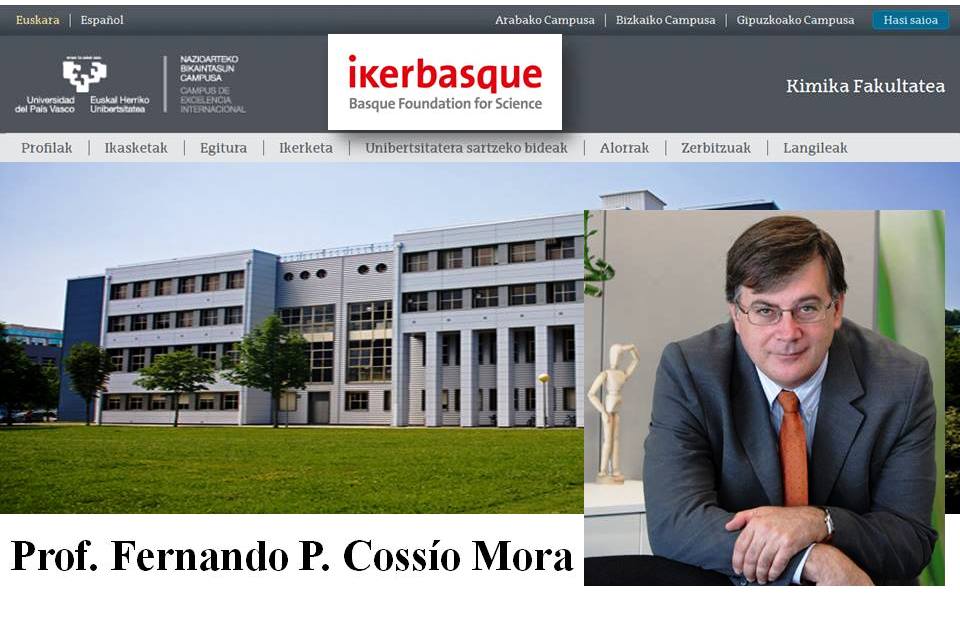 Prof. Fernando P. Cossío,(IKERBASQUE Foundation President), Prof. Dept. of Organic Chemistry I,
Prof. Fernando P. Cossío,(IKERBASQUE Foundation President), Prof. Dept. of Organic Chemistry I,
University of Basque Country (UPV/EHU), Donostia - San Sebastián Campus, Gipuzkoa.

Dr. Marcos Martínez Romero, Stanford Center for Biomedical Informatics Research (BMIR), STANFORD University, USA.
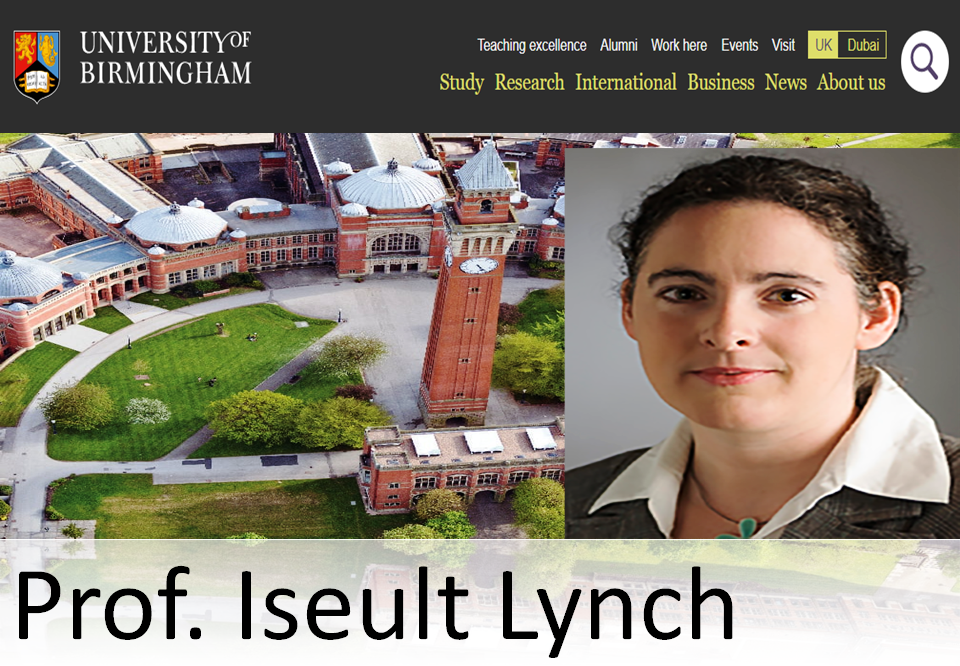
Prof. Iseult Lynch, School of Geo., Earth and Environ. Sci., Univ. of Birmingham, Birmingham, United Kingdom.
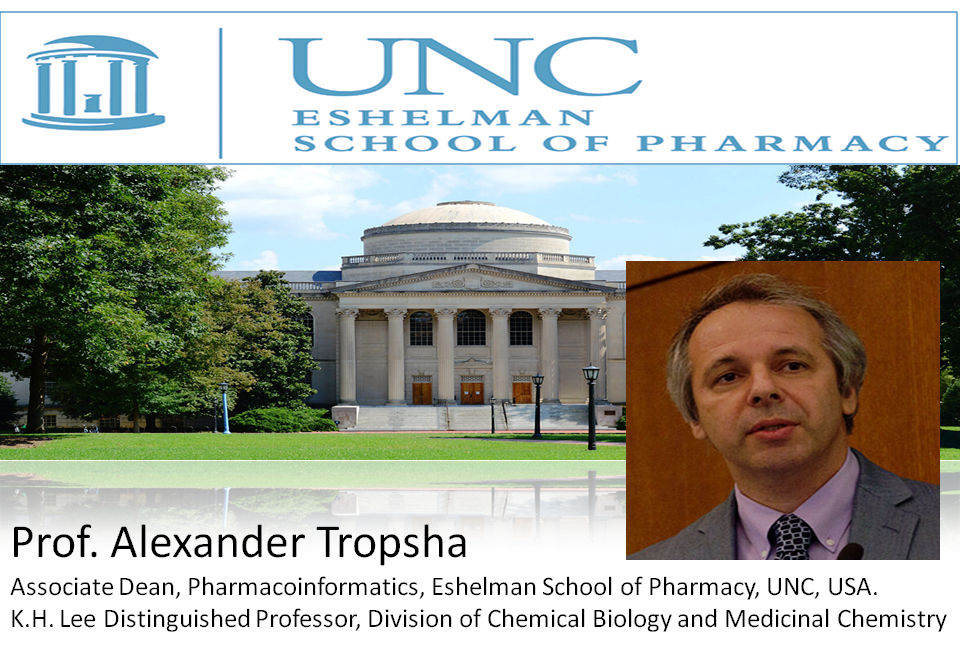
Prof. Alexander Tropsha, Assoc. Dean UNC Eshelman School of Pharmacy, Assoc. Editor J. Chem. Info. Model., ACS, USA. University of North Carolina (UNC), Chapel Hill , North Carolina 27599 , United States.

Prof. Marianne Graber, Directrice Adjointe Relations Internationales, Faculté des Sciences et Technologies, Université de La Rochelle, La Roche, France. Chercheur, Laboratoire LIENSs Littoral Environnement et Sociétés, Institut écologie et environnement (IEE), French National Centre for Scientific Research (CNRS), Paris, France.
 Prof. Jia Zhou, Department of Pharmacology and Toxicology, University of Texas Medical Branch, Galveston, TX, USA.
Prof. Jia Zhou, Department of Pharmacology and Toxicology, University of Texas Medical Branch, Galveston, TX, USA.
(EIC Current Topics in Medicinal Chemistry)
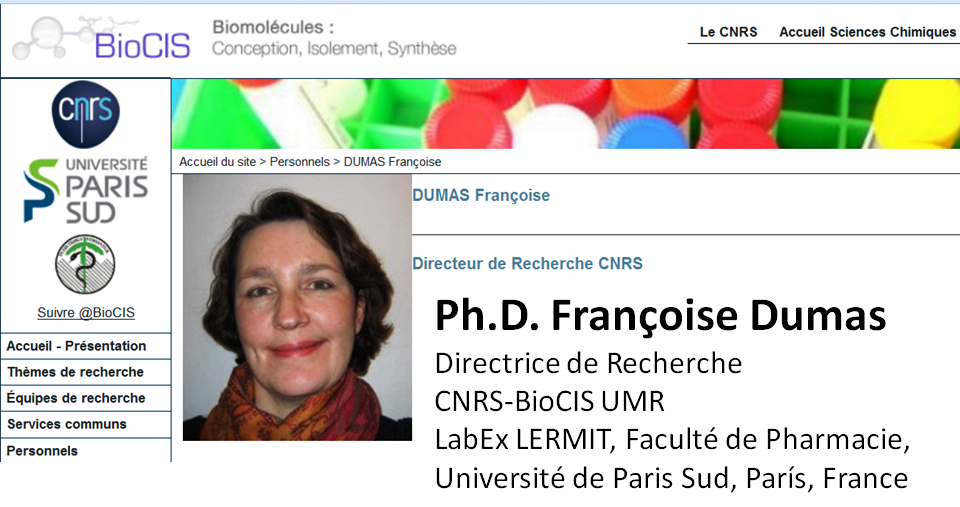 Prof. Françoise Dumas, CNRS, Directrice de Recherche, Université Paris-Saclay, Paris, France .
Prof. Françoise Dumas, CNRS, Directrice de Recherche, Université Paris-Saclay, Paris, France .
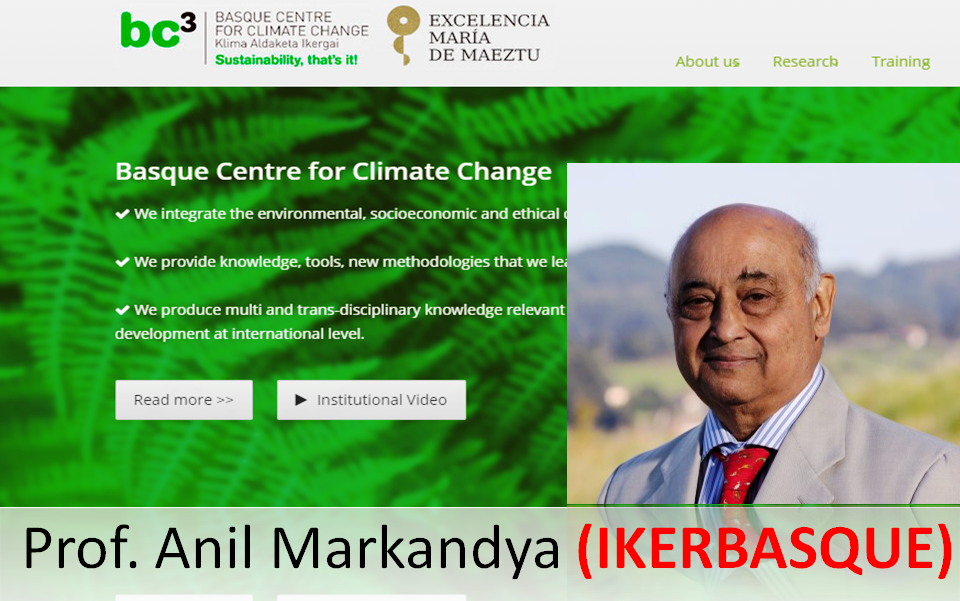 Prof. Anil Markandya, IKERBASQUE Prof., Basque Center for Climate Change (BC3), UPVEHU, Leioa, Basque Country, Spain.
Prof. Anil Markandya, IKERBASQUE Prof., Basque Center for Climate Change (BC3), UPVEHU, Leioa, Basque Country, Spain.

Prof. María Isabel Loza, CiMUS, Vice-Director , Dept. of Pharmacology, Univ. of Santiago de Compostela USC, Galicia, Spain.


Prof. Rosa María Hernández, Faculty of Pharmacy, University of Basque Country, Vitoria, Basque Country, Spain.
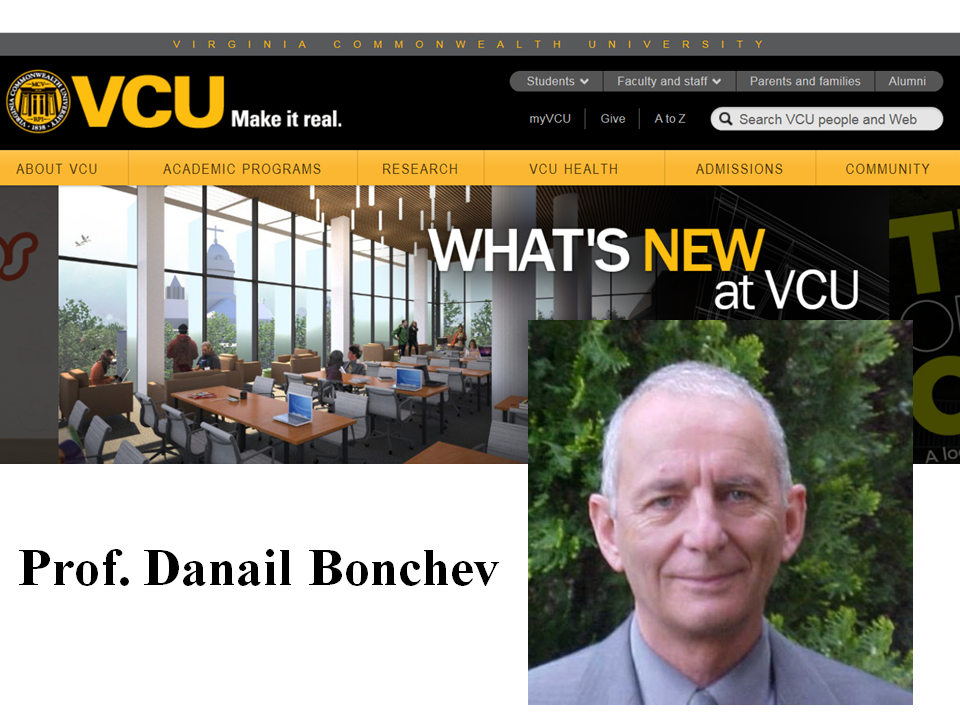
Prof. Danail Bonchev, Center for the Study of Biological Complexity, Dept of Mathematics & Applied Mathematics, Virginia Commonwealth University (VCU), USA.
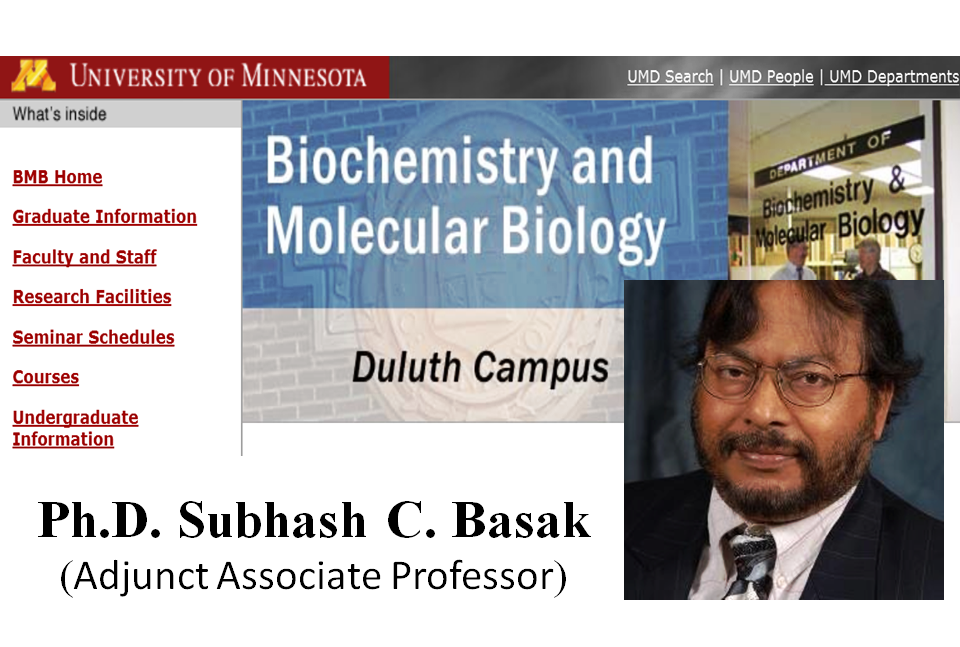 Dr. Subhash C. Basak, Department of Chemistry and Biochemistry, University of Minnesota, Duluth, MN, USA.
Dr. Subhash C. Basak, Department of Chemistry and Biochemistry, University of Minnesota, Duluth, MN, USA.

Prof. Dr. Frank Pasquale. Professor of Law, University of Maryland Francis King Carey School of Law, Baltimore, MD, USA.
E-mail: fpasquale@law.umaryland.edu

Prof. Ernesto Estrada Roger, Institute of Applied Mathematics (IUMA), Universidad de Zaragoza, Zaragoza, Spain.
Editor-in-Chief of Journal of Complex Networks, Oxford Academic Press, United Kingdom.
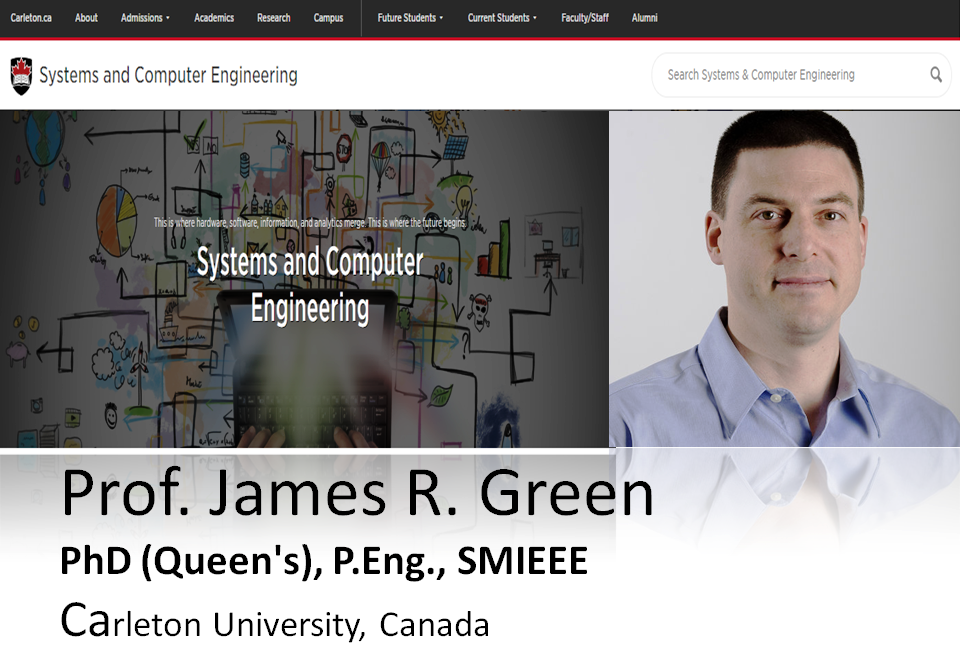
Prof. James Robert Green, Dept. of Systems and Comput. Eng., Carleton University, Canada.
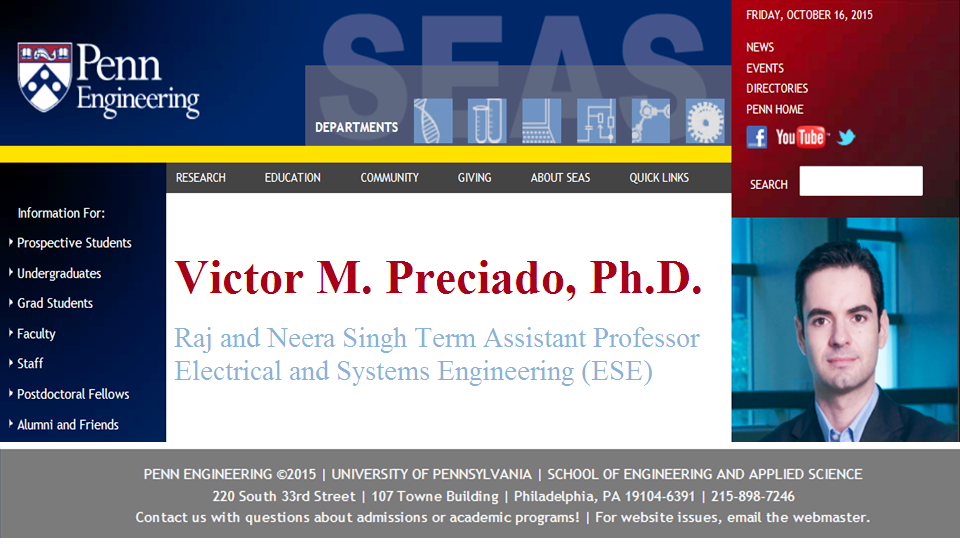 Prof. Victor M. Preciado, Raj and Neera Singh Term Assistant Professor Electrical and Systems Engineering (ESE),
Prof. Victor M. Preciado, Raj and Neera Singh Term Assistant Professor Electrical and Systems Engineering (ESE),
Penn Engineering, University of Pennsilvania, USA.
Prof. Weifan Zheng, Department of Pharmaceutical Sciences, North Carolina Central University, Durham, USA.
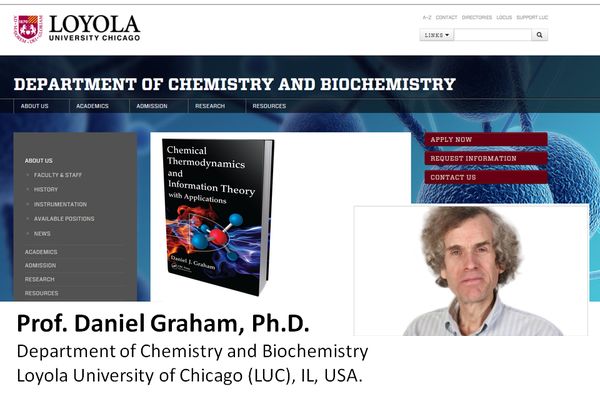 Prof. Daniel Graham, Professor of Chemistry, Loyola University of Chicago (LUC), USA.
Prof. Daniel Graham, Professor of Chemistry, Loyola University of Chicago (LUC), USA.
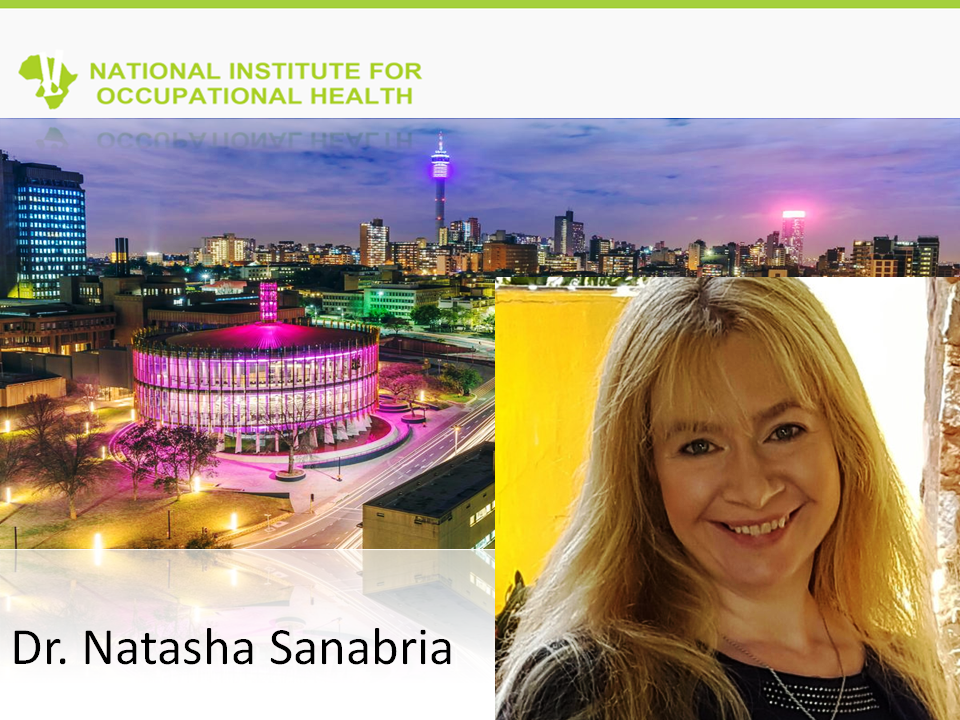
Dr. Natasha Sanabria, Dept. Toxicol. and Biochem., National Inst. for Occupational Health, Johannesburg, South Africa.
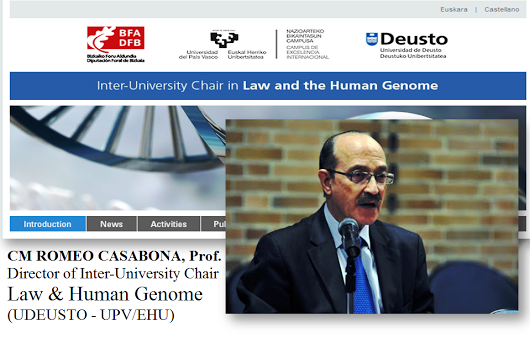
Prof. C.M. Romeo Casabona, Full Professor of Law, Director of Law & Human Genome, Chair, University of the Basque Country (UPV/EHU), Biscay, Basque Country, Spain.
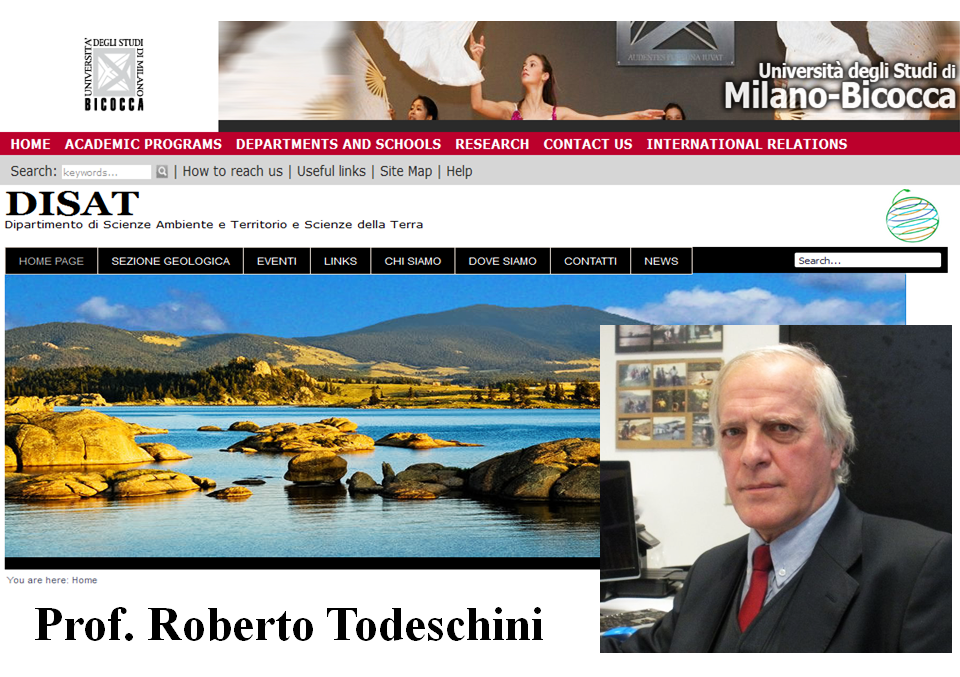
Prof. Roberto Todeschini, Department of Environmental Sciences, University of Milano-Bicocca, Milano, Italy.
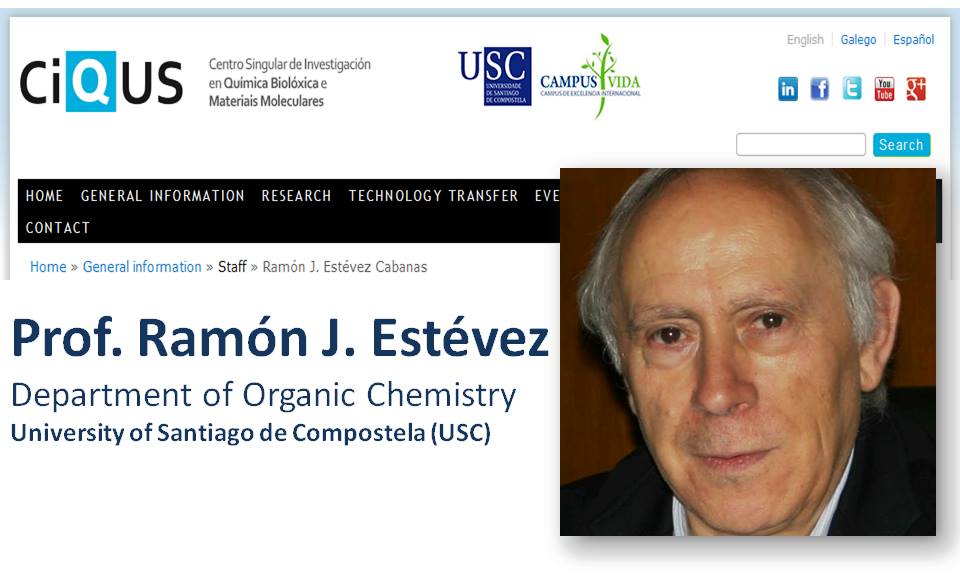 Prof. Ramón J. Estévez Cabanas, CIQUS and Dept. of Organic Chemistry, USC, Spain.
Prof. Ramón J. Estévez Cabanas, CIQUS and Dept. of Organic Chemistry, USC, Spain.

Prof. Miguel A. Gutierrez Ortiz, Dept. of Chem. Eng., Univ. of Basque Country (UPV/EHU), Leioa, Basque Country, Spain.
MOL2NET-UPVEHU HQ Advisory Committee
*Note: This committee is for MOL2NET Conference Series, to see the committees of each specific workshops associated to the conference visit the page of this workshop.

Prof. Inmaculada Arostegui, Vice-Rector of Research, Email: vrinvestigacion@ehu.eus
Dept. of Applied Mathematics and Statistics, University of The Basque Country UPV/EHU, Bilbao, Spain.
Basque Center for Applied Mathematics (BCAM), [MOL2NET Welcome Video, Ongi Etorri Video (Euskera)]
Prof. Fernando Plazaola, Dean Fac. of Sci. and Tech., Univ. of Basque Country (UPV/EHU), Leioa, Basque Country, Spain.
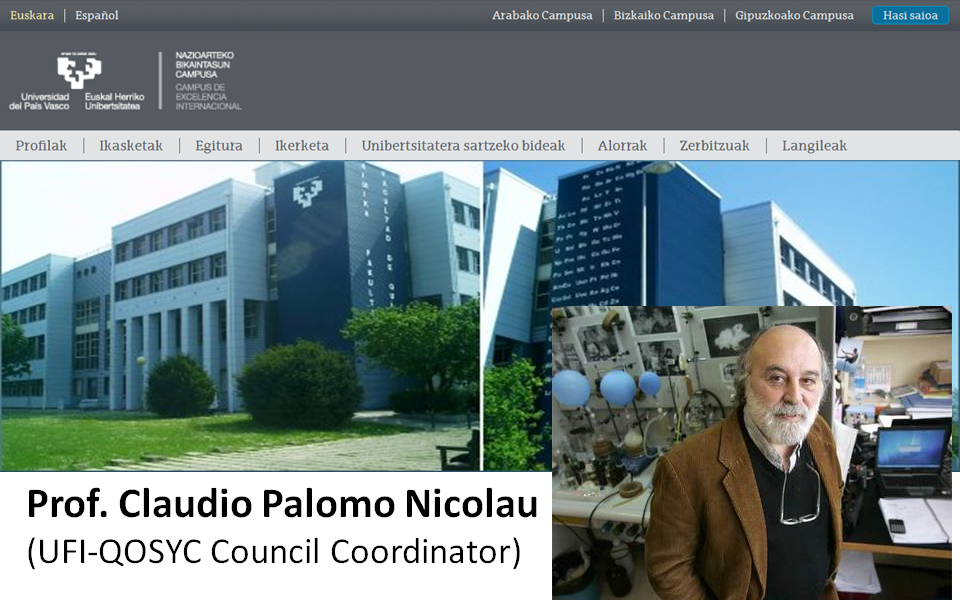
Prof. Claudio Palomo Nicolau, Dir. Dept. Org. Chem. I, Univ. of Basque Country (UPV/EHU), Basque Country, Spain.
Prof. Izaskun Gil de Muro, Dir. Dept. of Org. and Inorg. Chem., Univ. of Basque Country (UPV/EHU), Basque Cuntry, Spain.

Prof. Maria I. Moreno, Sec. Dept. of Org. and Inorg. Chem., Univ. of Basque Country (UPV/EHU), Basque Cuntry, Spain.
Headquarters Academic Pursuit Committee Chairpersons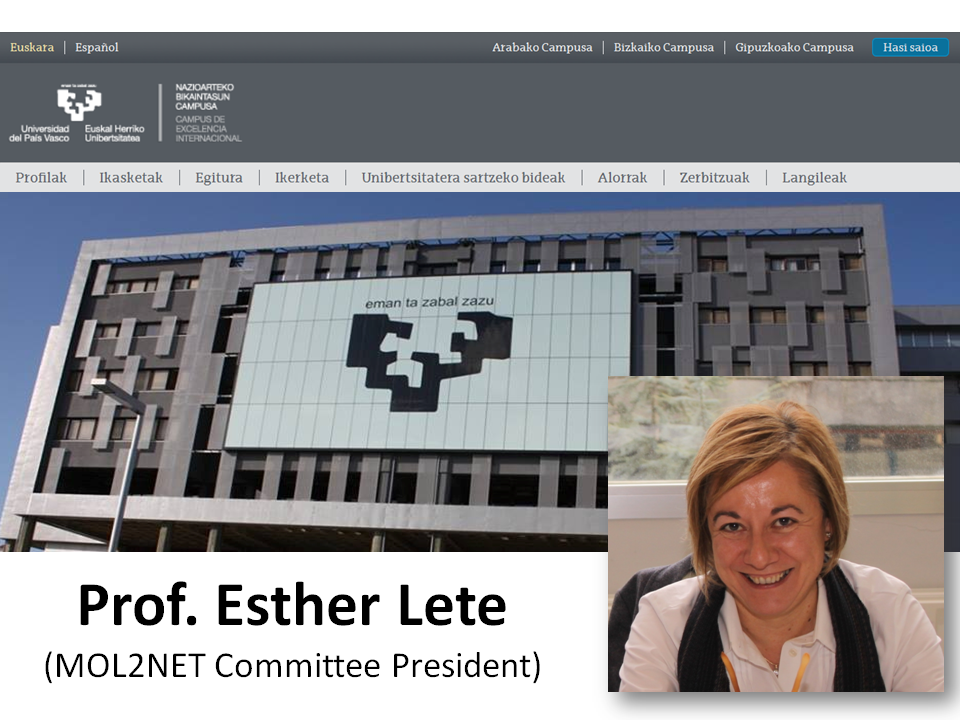
Prof. Esther Lete, Dept. of Org. and Inorg. Chem., Univ. of Basque Country (UPV/EHU), Basque Cuntry, Spain.
(Coordinator Ph.D. Synth. & Ind. Chemistry)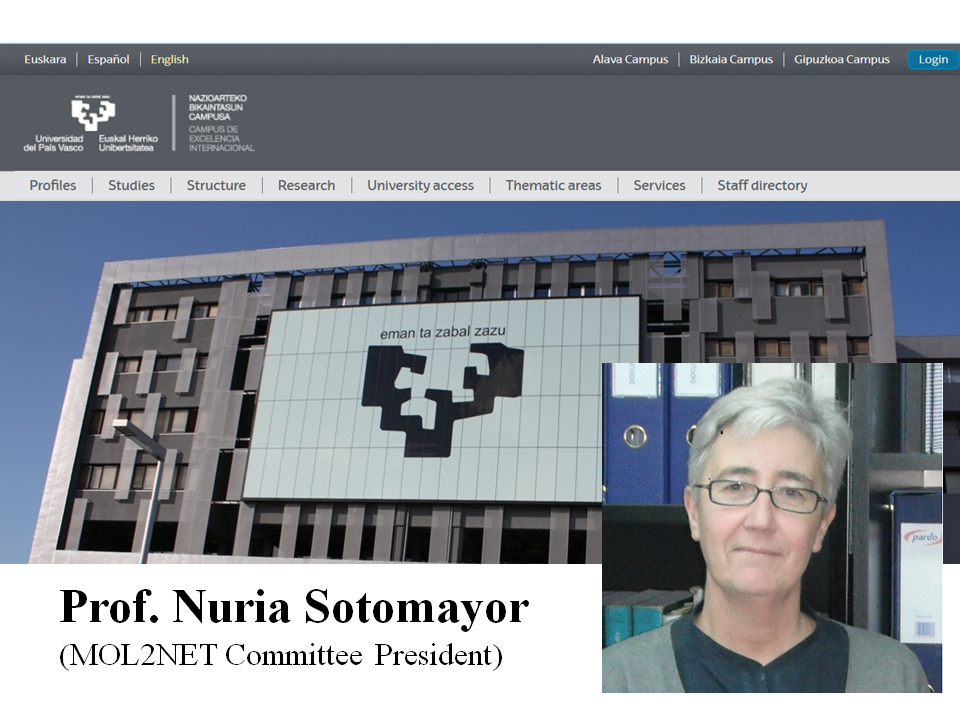
Prof. Nuria Sotomayor, Dept. of Org. and Inorg. Chem., Univ. of Basque Country (UPV/EHU), Basque Cuntry, Spain. (Coordinator M.Sc. Synth. & Ind. Chemistry)
MOL2NET Scientific Committee (Abroad)
*Note: This committee is for MOL2NET Conference Series, to see the committees of each specific workshops associated to the conference visit the page of this workshop.
Abroad Scientific Committee
President of Scientific Committee (Polymers & Materials Sciences)
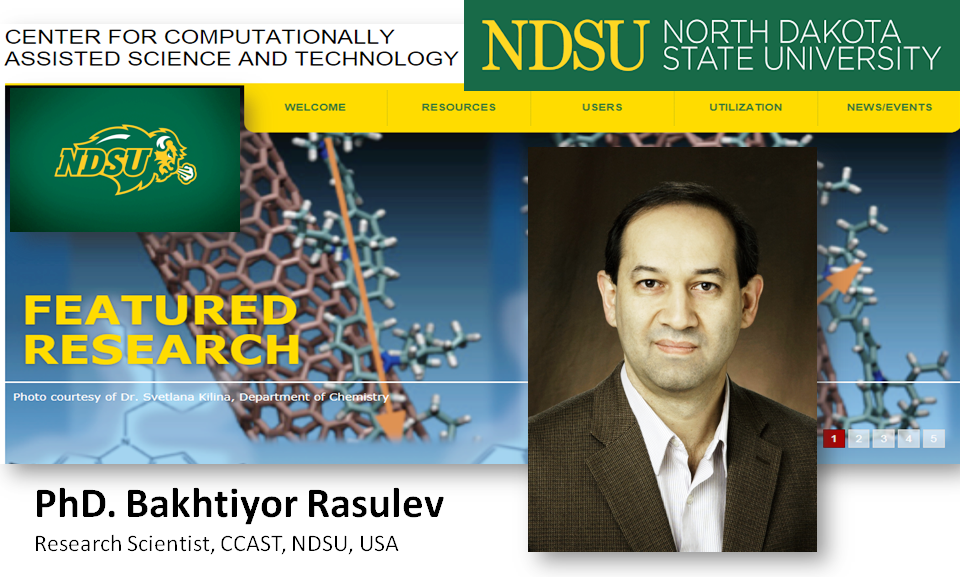
Prof. Bakhtiyor Rasulev, Department of Coatings and Polymeric Material, North Dakota State University (NDSU), Fargo, USA.
President of Scientific Committee (Computational Chemistry and Nanosciences)
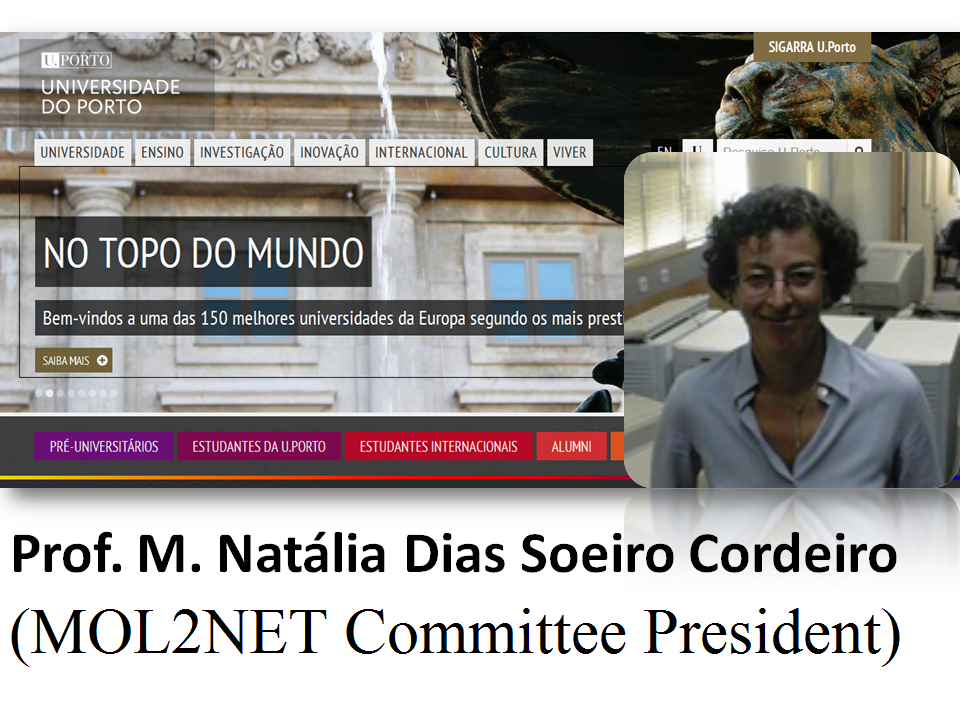 Prof. Natalia D.S. Cordeiro, Dept. of Chemistry and Biochemistry, Faculty of Sciences, University of Porto, Porto, Portugal.
Prof. Natalia D.S. Cordeiro, Dept. of Chemistry and Biochemistry, Faculty of Sciences, University of Porto, Porto, Portugal.
Abroad Scientific Committee (North America)
Assist. Prof. Matthew M. Montemore, Chem. & Biomol. Eng., Tulane University, New Orleans, USA.
Dr. Suhbash C. Basak, Natural Resources Research Institute, Univ. of Minnesota, Duluth, MN, USA.
Prof. Terace Fletcher, Northeast Lakeview College, University of Texas, San Antonio, TX, USA.
Dr. Shameer Khader, Dept. Medical Informatics, Northwell Health, NY, USA.
Dr. Natalia Sizochenko, Jackson State University, Jackson, MS, USA.
Dr. Vanessa Aguiar-Pulido, University of Miami, NY, USA.
Dr. Robersy Sánchez, Pennsylvania State University, USA.
Members of Scientific Committee (Europe)
Ph.D. Barry Hardy, CEO Edelweiss Connect, HQ Basel, Switzerland.
Prof. Dario Greco, Faculty of Medicine and Health Technology, Tampere University, Tampere, Finland.
Prof. Christoph Kaleta, Christian-Albrechts-Universität zu Kiel (CAU), Germany.
Dr. Yasset Perez-Riverol, European Bioinformatics Institute (EMBL-EBI), Cambridge, United Kingdom.
Prof. Natalia D.S. Cordeiro, Department of Chemistry and Biochemistry, University of Porto, Porto, Portugal.
Prof. Alla Toropova, Istituto di Ricerche Farmacologiche Mario Negri IRCCS, Milano, Italy.
Prof. Andrey Toropov, Istituto di Ricerche Farmacologiche Mario Negri IRCCS, Milano, Italy.
Prof. Maité Sylla, Assoc., Chimie Molécularie, Conservatoire National des Arts et Métiers CNAM, París, France.
Prof. Najla Fourati , Assoc. SATIE Laboratoire, Conservatoire National des Arts et Métiers CNAM, París, France.
Prof. Chouki Zerrouki, SATIE Laboratoire, Conservatoire National des Arts et Métiers CNAM, París, France.
Dr. Irina Moreira, Center for Neuroscience and Cell Biology (CNC), Universidade de Coimbra, Coimbra, Portugal.
Prof. Natália D. S. Cordeiro, REQUIMTE Theor. Chem. Net., University of Porto (UPORTO), Portugal.
Prof. Pedro L. Fernandes, Bioinformatics Coordinator, Instituto Gulbenkian de Ciencia (IGC), Portugal.
Dr. Daniel J.V.A. Do Santos, Faculty of Pharmacy, University of Lisbon (ULISBOA), Portugal.
Prof. Fernanda Borges, Department of Chemistry and Biochemistry, University of Porto, Portugal.
Prof. Igor Iosifovich Baskin, M.V. Lomonosov Moscow State University, Moscow, Russia.
Prof. Luisa Di Paola, Department of Engineering, Università Campus Bio-Medico, Rome, Italy.
Prof. Agnieszka Gajewicz, Assist. Prof., Faculty of Chemistry, University of Gdansk, Gdansk, Poland.
Dr. Alessandro Guiliani, Istituto Superiore di Sanità (ISS), Roma, Italy.
MOL2NET Scientific Committee (Local)
*Note: This committee is for MOL2NET Conference Series, to see the committees of each specific workshops associated to the conference visit the page of this workshop.
Chairperson Scientific Committee (Chemical Sciences) 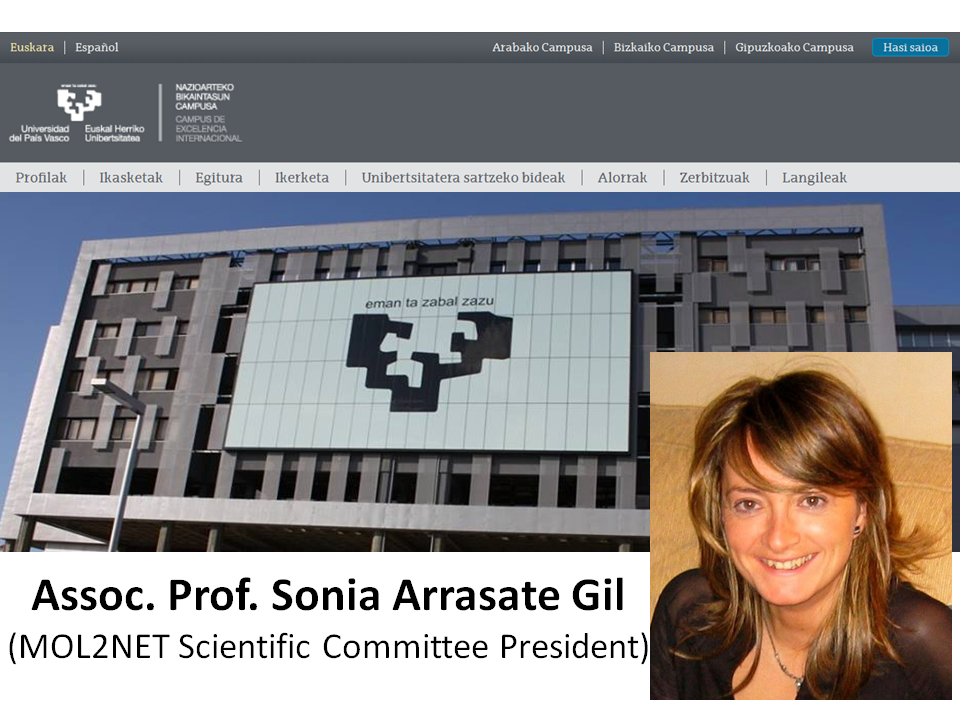
Prof. Sonia Arrasate, Department of Organic Chemistry II, University of Basque Country (UPV/EHU), Leioa, Sarriena w/n, Bizkaia. Email: sonia.arrasate@ehu.eus
Chairperson Scientific Committee (Physical Sciences)
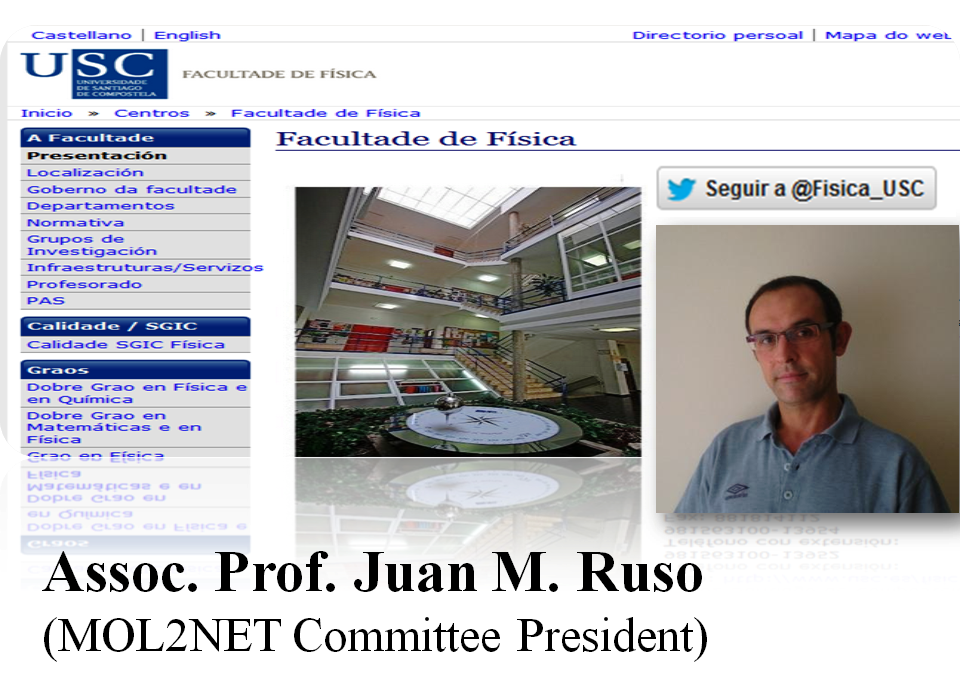
Prof. Juan M. Ruso, Department of Applied Physics, Faculty of Physics, University of Santiago de Compostela (USC), Spain.
Email: juanm.ruso@usc.es
Chairperson Scientific Committee (Neurosciences)
Prof. Shira Knafo, IKERBASQUE Professor, Molecular Cognition Laboratory, (1) Biophysics Institute (CSIC, UPV/EHU), Scientific and Technological Park of Biscay. University of The Basque Country UPV/EHU, Biscay, Spain. Ikerbasque, Basque Foundation for Science. (2) Ben-Gurion University of the Negev Faculty of Health Sciences: Beer Sheva, Southern, Israel.
Chairperson Scientific Committee (ICT & Legal Informatics)

Dr. Aliuska Duardo Sanchez (Ph.D. Legal Informatics), Chair in Law & The Human Genome Research Group, Faculty of Law, University of The Basque Country UPV/EHU, Leioa (Bilbao), Biscay, PANELFIT H2020, Project Manager & EDC Board Coordinator, Europe Commission. Email: aliuska.duardo@ehu.es
Scientific Committee Members
University of Deusto
Prof. Enrique Onieva, Lect. & Researcher, Big Data, Data Mining and Intell. Transp. Systems
Mondragon University
Prof. Iagoba Apellaniz, Mondragon University, Faculty of Engineering, Basque Country, Spain.
BioDonostia Health Research Institute
Prof. Marcos J. Araúzo-Bravo, Ikerbasque Professor, Bioengineering
CIC bioGUNE, Center for Cooperative Research in Biosciences
Prof. Nicola Abrescia, Ikerbasque Professor, Structural Virology Laboratory.
Dr. Marta G. Lete, Structural Biology Unit.
Basque Center for Biophysics
Prof. Shira Knafo, IKERBASQUE Professor, Biophysics Institute (CSIC, UPV/EHU)
Dr. Iratxe Barboya, Biophysics Institute (CSIC, UPV/EHU)
University of Santiago de Compostela (USC)
Prof. María Isabel Loza, CiMUS and Department of Pharmacology, USC, Spain.
Prof. Julio Seijas , Dept. of Organic Chemistry, Faculty of Sciences, Campus Lugo, USC, Spain.
Prof. Eugenio Uriarte Villares, Dept. of Organic Chemistry, USC, Spain.
Prof. Xerardo García-Mera, Dept. of Organic Chemistry, USC, Spain.
Prof. Eddy Sotelo, CiQUS and Dept. of Organic Chemistry, USC, Spain.
Prof. Florencio Martínez Ubeira, Dept. of Microbiology and Parasitology, USC, Spain.
Prof. Emilio Martinez-Nunez, Dept. of Physical Chemistry, USC, Spain.
Prof. Angeles Sánchez-Guerra, Dept. of Inorg. Chemistry, USC, Spain.
University of Vigo (UVIGO)
Prof. Yagamare Fall, Dept. of Organic Chemistry, University of Vigo (UVIGO), Vigo, Spain.
Prof. Generosa Gómez, Dept. of Organic Chemistry, University of Vigo (UVIGO), Vigo, Spain.
University of León
Prof. Vanessa Robles, MODCELL Group, Dept. of Molecular Biology, Universidad de León, 24071 León, Spain.
University of The Basque Country (UPV/EHU)
Prof. Francisco Palacios Gambra, Department of Organic Chemistry I, UPV/EHU, Campus Vitoria
Prof. Jose Luis Vicario, Department of Organic Chemistry II, UPV/EHU, Campus Biscay
Prof. Javier Meana, Department of Pharmacology, Faculty of Medicine, UPV/EHU, Campus Biscay
Prof. Néstor Etxebarria Loizate, Dept. Analytical Chemistry, UPV/EHU, Campus Biscay
Prof. Gotzon Madariaga, Department of Physics of Condensed Matter, UPV/EHU, Campus Biscay
Prof. Rosa M. Alonso, Department of Analytical Chemistry, UPV/EHU,Campus Biscay
Prof. Jose Luis Vilas, Dir. Dept. of Physical Chemistry, UPV/EHU, Campus Biscay
Prof. Mario Piris, Ikerbasque Prof., Donostia International Physics Center (DIPC), UPV/EHU, Campus Gipuzkoa
Prof. Aresatz Usobiaga, Department of Analytical Chemistry, UPV/EHU, Campus Biscay
Ph.D.Jose Manuel Laza Terroba, Dept. of Physical Chemistry, UPV/EHU,Campus Biscay
Prof. Ailette Prieto Sobrino, Dept. of Analytical Chemistry, UPV/EHU,Campus Biscay
Prof. Jose Luis Ayastuy Arizti, Dept. of Chemical Engineering, UPV/EHU,Campus Biscay
Prof. Irantzu Barrio, Ph.D. Department of Applied Mathematics and Statistics, UPV/EHU,Campus Biscay
Dept. of Organic and Inorganic Chemistry
Area Inorganic Chemistry
Prof. Luis Lezama, Area of Inorganic Chemistry, UPV/EHU, Campus Biscay
Prof. Maite Insausti, Area of Inorganic Chemistry, UPV/EHU, Campus Biscay
Prof. Aintzane Goñi, Area of Inorganic Chemistry, UPV/EHU, Campus Biscay
Area Organic Chemistry
Prof. Imanol Tellitu Cortazar, Area of Organic Chemistry II, UPV/EHU, Campus Biscay
Prof. Maria Luisa Carrillo Fernández, Area of Organic Chemistry II, UPV/EHU, Campus Biscay
Prof. Efraim Reyes Martín, Area of Organic Chemistry II, UPV/EHU, Campus Biscay
Prof. Uxue Uria Pujana, Area of Organic Chemistry II, UPV/EHU, Campus Biscay
Prof. Raúl San Martín Faces, Area of Organic Chemistry II, UPV/EHU, Campus Biscay
Prof. Mª Teresa Herrero Corral, Area of Organic Chemistry II, UPV/EHU, Campus Biscay
Prof. Eneritz Anakabe Iturriaga, Area of Organic Chemistry II, UPV/EHU, Campus Biscay
Thank You For Your Support!!!
MOL2NET & USEDAT Chairman
Prof. Humberto González-Díaz, IKERBASQUE Professor, Email: mol2net.chair@gmail.com
(1) Dept. of Organic & Inorganic Chemistry, University of the Basque Country UPV/EHU , 48940, Leioa, Biscay, Spain.
(2) Basque Center for Biofisics, University of the Basque Country UPV/EHU , 48940, Leioa, Biscay, Spain.
(3) IKERBASQUE, Basque Foundation for Science , 48011, Bilbao, Biscay, Spain.
PUBLONS: https://publons.com/researcher/306069/humberto-g-diaz-prof/
ORCID: https://orcid.org/0000-0002-9392-2797
CATCH4HIT Academy ft. Industry Committee
CATCH4HIT the MOL2NET Academy-Industry Advisory Committee

CEO, CIO, R&D Directors, Officers, Consultants, Researchers from
SME, Industry, Funding Institutions, Technological Centers
Committee aims. MOL2NET conference is specially interesting on promoting academy-industry collaboration. This may in turn increase society returns by means of translational research in chemistry, nanotechnology, biotechnology, bench-to-bed investigation in medicinal sciences and biomedical engineering, etc. Consequently, we have created this committee of scientific directors of university departments and technological centers along with CEO, CIO, and R&D directors from SME and Technological Companies. We also welcome industry consultants, policy makers, SME-Industry funding institutions staff, and all people related to Academy-Industry collaboration work. We specially welcome new members to join us. Please, do not hesitate to contact the chairperson to propose a collaboration by yourself or appoint some colleague. One of the aims of the committee is the creation of the homonym CATCH4HIT congress series in the conference to fostering Academy-Industry collaborations.
Scientific scope. As the congress is linked to MOL2NET conference the main emphasis is in Research & Development (R&D) in Experimental Molecular Sciences and Biomedical Engineering on one hand and New Technologies and Computational Sciences on the other (see topics bellow). The scientific scope of the committee is broad but somehow focused on experimental and computational research applied to Biomolecular industry and sciences: Medicinal Chemistry, Pharmaceutical Industry, Nanotechnology, Materials Sciences, Biotechnology, Biofuel Production, Environmental Sciences, Neurosciences, Biomedical Engineering, Medical Imaging, and related topics. Applications of Computational Sciences, Artificial Intelligence, Quantum Computing, Big Data analysis, Chemoinformatics, Bioinformatics, Complex Networks Analysis, on research and industry focused on the previous areas are also welcome. Last, all topics related to Bioethics, Regulatory Affairs, Data Protection, Patenting, Copyright, etc. on industry and research in these areas is of our interest as well. Both experts on experimental and/or computational applications on these industrial research areas are welcome.
Acronym. CATCH4HIT acronym is formed in first instance by the word CATCH abbreviation of: Congress of Academy Transference to Company for Helping to... The middle part includes the number 4 resembling the sound of the word for. The last part includes the word HIT abbreviation of: for Heighten Innovation and Technology. Both words of the acronym are and allegory to two of the more common actions in the Baseball sport (CATCH and HIT the ball). A poetic resemblance to the possibility of catching new opportunities and hit the limits in technology and innovation.
CATCH4HIT Committee members
 Prof. Fernando P. Cossío, (IKERBASQUE Foundation President), Prof. Dept. of Organic Chemistry I, University of Basque Country (UPV/EHU), Donostia - San Sebastián Campus, Gipuzkoa, Basque Country, Spain.
Prof. Fernando P. Cossío, (IKERBASQUE Foundation President), Prof. Dept. of Organic Chemistry I, University of Basque Country (UPV/EHU), Donostia - San Sebastián Campus, Gipuzkoa, Basque Country, Spain.
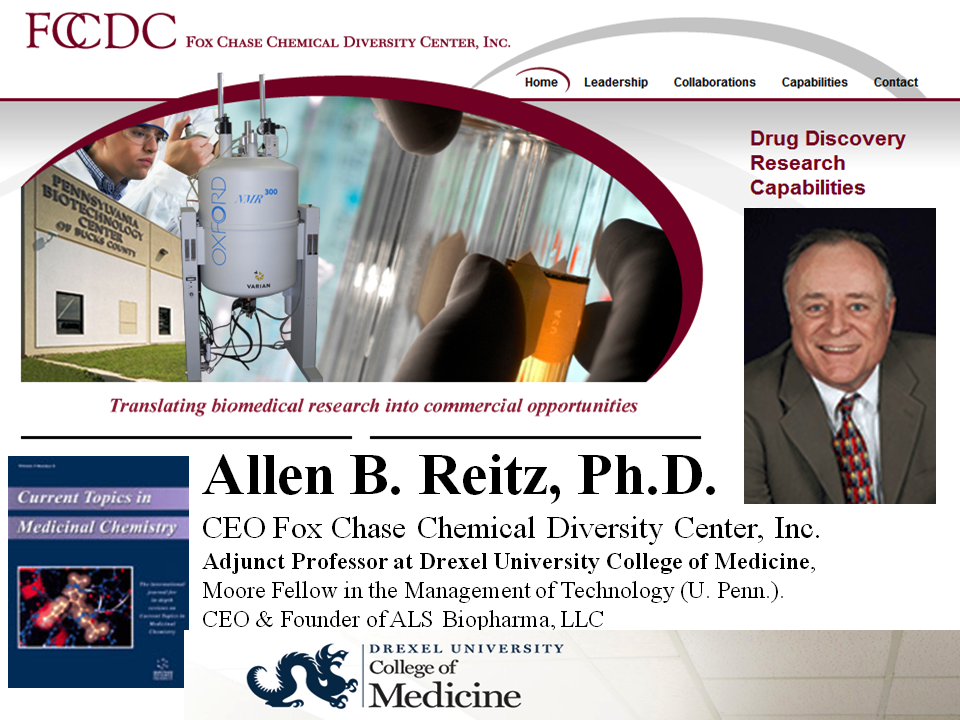
Dr. Allen B. Reitz, Ph.D., ALS Biopharma CEO (Founder ), FCCDC CEO Fox Chase Chemical Diversity Center, Inc., Moore Fellow in the Management of Technology, Penn Engineering, Adjunct Professor at Drexel University College of Medicine, Doylestown, PA, USA.  Prof. Jerzy Leszczynski, USA Presidential Distinguished Fellow, Dept. of Chemistry and Biochemistry Interdisciplinary Center for Nanotoxicity (ICN), Jackson State University (JSU), USA.
Prof. Jerzy Leszczynski, USA Presidential Distinguished Fellow, Dept. of Chemistry and Biochemistry Interdisciplinary Center for Nanotoxicity (ICN), Jackson State University (JSU), USA.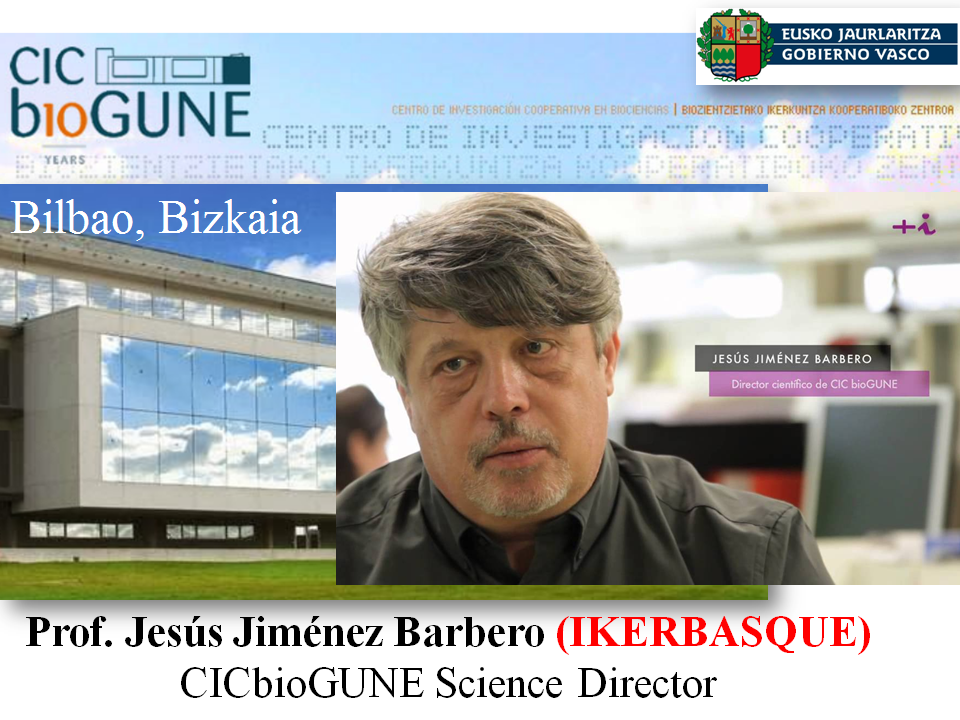
Prof. Jesús Jimenez-Barbero, IKERBASQUE Professor, Scientific Director of Center for Cooperative Research in Biosciences (CICBiogune), Biscay, Dept. of Organic Chemistry II, UPV/EHU, Leioa, Basque Country, Spain.
 Prof. Iban Ubarretxena, IKERBASQUE Professor, BIOFISIKA, Basque Center for Biophysics, Biscay Biophysics Foundation (BBF), Scientific Director, CSIC-UPVEHU, Basque Country, Spain.
Prof. Iban Ubarretxena, IKERBASQUE Professor, BIOFISIKA, Basque Center for Biophysics, Biscay Biophysics Foundation (BBF), Scientific Director, CSIC-UPVEHU, Basque Country, Spain.
Prof. María Isabel Loza, CiMUS, Vice-Director , Department of Pharmacology, University of Santiago de Compostela USC, Galicia, Spain.

Dr. Gonzalo Hernandez Herrero, FAES FARMA, Director of Research, Develop. and Innov., Leioa, Greater Bilbao, Basque Country, Spain.
Dr Ignacio Sancho-Martínez, FAES FARMA, Chief Scientific Officer, Leioa, Greater Bilbao, Basque Country, Spain.
Dr. Tatiana Suarez Cortes, FAES FARMA, Head of Research, Development and Innovation Promotion.
R&D+i Department, Leioa, Greater Bilbao, Basque Country, Spain.
 Dr. Elías Unzueta Etxeita, Chief Innovation Officer (CIO), Petronor Innovación S.L., Muskiz, Greater Bilbao, Basque Country, Spain.
Dr. Elías Unzueta Etxeita, Chief Innovation Officer (CIO), Petronor Innovación S.L., Muskiz, Greater Bilbao, Basque Country, Spain.
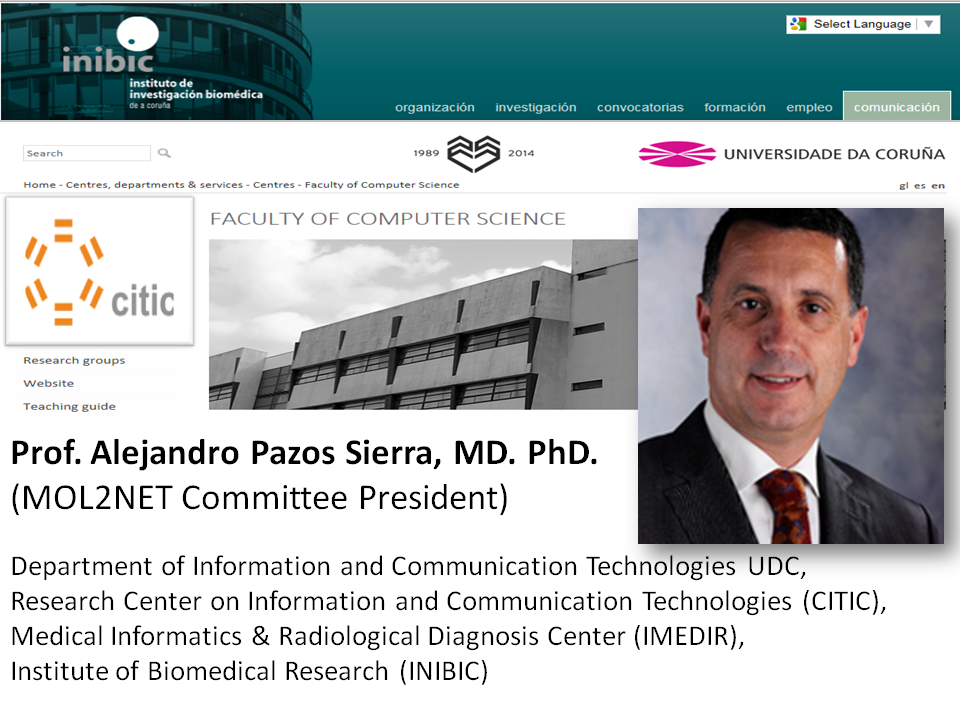 Prof. Alejandro Pazos, Ph.D., M.D., Chair and Director of Department of Computer Sciences, University of Coruña (UDC), Coruña, Spain. IKERDATA S.L. UDC-UPVEHU, ZITEK, President of Scientific Advisory Board, Coruña, Galicia / Leioa, Basque Country, Spain.
Prof. Alejandro Pazos, Ph.D., M.D., Chair and Director of Department of Computer Sciences, University of Coruña (UDC), Coruña, Spain. IKERDATA S.L. UDC-UPVEHU, ZITEK, President of Scientific Advisory Board, Coruña, Galicia / Leioa, Basque Country, Spain.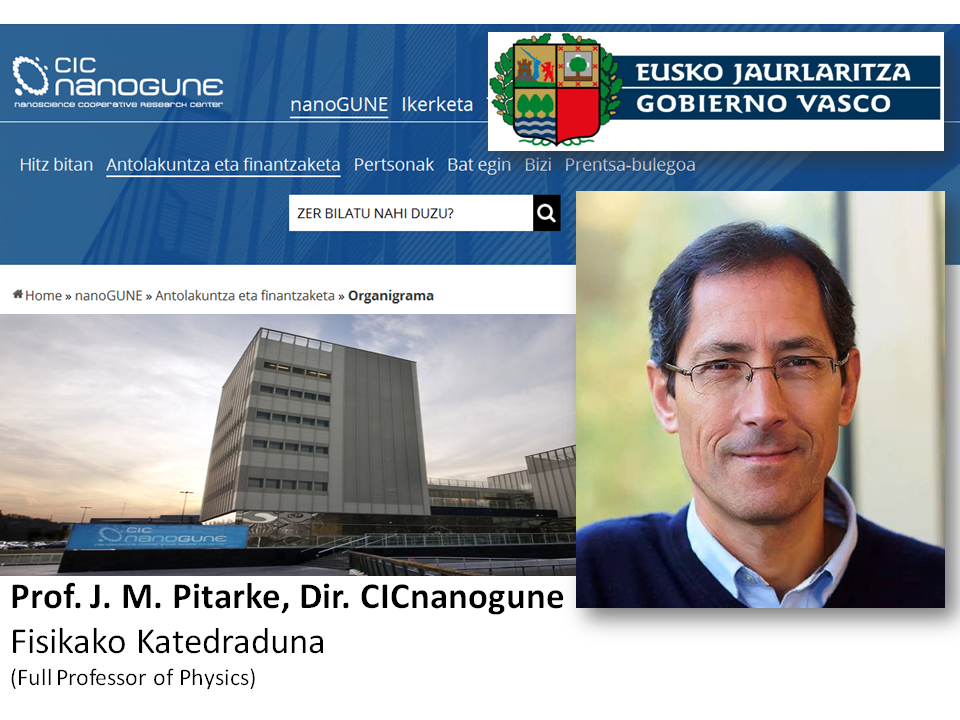 Prof. José María Pitarke , UPV/EHU, Dir. of Nanomaterials Cooperative Research Center (CICNanoGune), San Sebastian, Basque Country, Spain.
Prof. José María Pitarke , UPV/EHU, Dir. of Nanomaterials Cooperative Research Center (CICNanoGune), San Sebastian, Basque Country, Spain.

Ph.D. Yolanda de Miguel , Dir. Nanotechnology Cluster, TECNALIA, Zamudio, Greater Bilbao, Basque Country, Spain.
[TECNALIA NANOTECH, Youtube Cover]
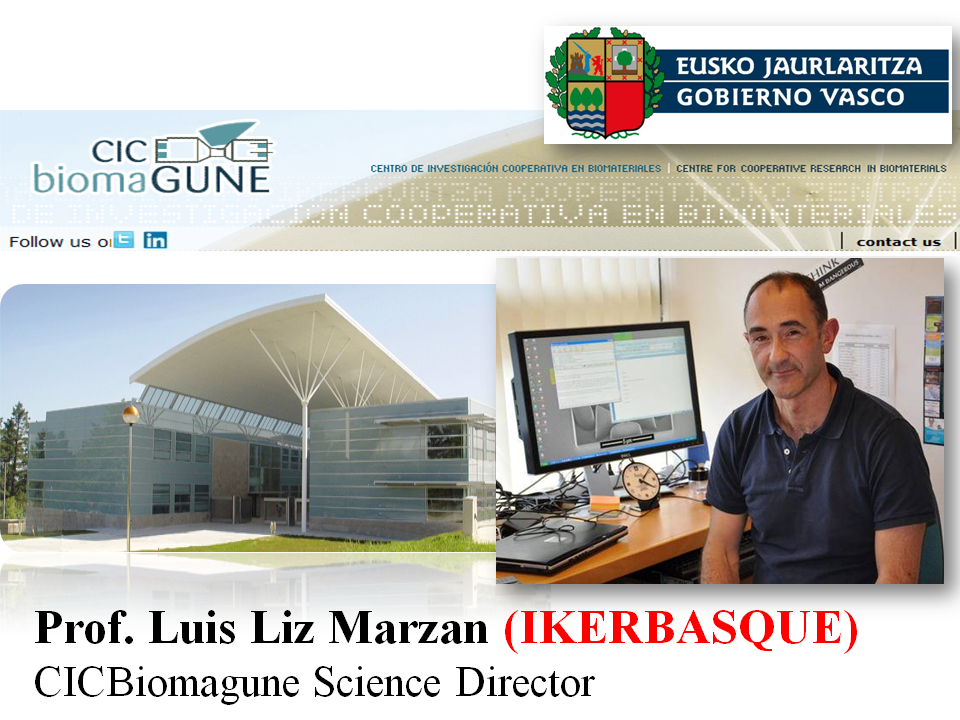
Prof. Luis M Liz-Marzán, IKERBASQUE Professor, Scientific Director of Center for Cooperative Research in Biomaterials (CICbiomaGUNE), Gipuzkoa, Basque Country, Spain.
Prof. María José Sanz Sánchez, IKERBASQUE Prof., Scientific Director, Email address: info@bc3research.org
Basque Center for Climate Change (BC3), UPVEHU, Leioa, Basque Country, Spain.

Prof. Eddy Sotelo. Associate Professor of Medicinal Chemistry. Univ. Santiago de Compostela. Co-founder, Chairman of the Board of Directors at Celtarys Research SL New Fluorescent Tools for Pharma and Bio Research, Santiago de Compostela, Galicia, Spain.

MSc. Gorka Artola, Chief Innovation and Tech-Transfer Officer, OTRI, University of Basque Country (UPV/EHU), Basque Country, Spain.
Telf. + 946012108, Email: gorka.artola@ehu.eus

Prof. Sonia Arrasate, Department of Organic and Inorganic Chemistry, University of Basque Country (UPV/EHU), IKERDATA S.L. UDC-UPVEHU, ZITEK, Co-Founder and Scientific Advisory Board Member, Leioa, Basque Country, Spain. Bizkaia. Email: sonia.arrasate@ehu.eus
 Dr. Aliuska Duardo Sanchez (Ph.D. Legal Informatics), Chair in Law & The Human Genome Research Group, Faculty of Law, UPV/EHU, Leioa (Bilbao), Biscay, PANELFIT H2020, Project Manager & EDC Board Coordinator, Europe Commission. IKERDATA S.L. UDC-UPVEHU, ZITEK, Co-Founder and Regulatory Affairs Consultant of Scientific Advisory Board, Leioa, Basque Country, Spain.
Dr. Aliuska Duardo Sanchez (Ph.D. Legal Informatics), Chair in Law & The Human Genome Research Group, Faculty of Law, UPV/EHU, Leioa (Bilbao), Biscay, PANELFIT H2020, Project Manager & EDC Board Coordinator, Europe Commission. IKERDATA S.L. UDC-UPVEHU, ZITEK, Co-Founder and Regulatory Affairs Consultant of Scientific Advisory Board, Leioa, Basque Country, Spain.
MOL2NET Academy-Industry Steering Chairman
 Prof. Humbert González-Díaz, IKERBASQUE Professor, Email:mol2net.chair@gmail.com, (1) Dept. of Organic Chemistry & Inorganic Chemistry, University of the Basque Country UPV/EHU , 48940, Leioa, Biscay, Spain. (2) BIOFISIKA, Basque Center for Biophysics, University of the Basque Country UPV/EHU , 48940, Leioa, Biscay, Spain. (3) IKERBASQUE, Basque Foundation for Science , 48011, Bilbao, Biscay, Spain. (4) IKERDATA S.L. UDC-UPVEHU, ZITEK, Co-Founder and Member of Scientific Advisory Board, Leioa, Basque Country, Spain.
Prof. Humbert González-Díaz, IKERBASQUE Professor, Email:mol2net.chair@gmail.com, (1) Dept. of Organic Chemistry & Inorganic Chemistry, University of the Basque Country UPV/EHU , 48940, Leioa, Biscay, Spain. (2) BIOFISIKA, Basque Center for Biophysics, University of the Basque Country UPV/EHU , 48940, Leioa, Biscay, Spain. (3) IKERBASQUE, Basque Foundation for Science , 48011, Bilbao, Biscay, Spain. (4) IKERDATA S.L. UDC-UPVEHU, ZITEK, Co-Founder and Member of Scientific Advisory Board, Leioa, Basque Country, Spain.
MOL2NET-IKERBASQUE Advisory Committee
MOL2NET-IKERBASQUE Advisory Committee





Prof. Enrique Solano, Ikerbasque Prof., Ikerbasque Website, Dept. of Physical Chemistry, Univ. of the Basque Country UPV/EHU, 48080 Bilbao, Spain





 Prof. Humbert González-Díaz, IKERBASQUE Professor, Email: mol2net.chair@gmail.com
Prof. Humbert González-Díaz, IKERBASQUE Professor, Email: mol2net.chair@gmail.com(1) Dept. of Organic Chemistry II, University of the Basque Country UPV/EHU , 48940, Leioa, Biscay, Spain.
(2) IKERBASQUE, Basque Foundation for Science , 48011, Bilbao, Biscay, Spain.
ORCID: https://orcid.org/0000-0002-9392-2797
MOL2NET-MDPI Committee
MOL2NET - MDPI Journals Issues

Open Journals Issues (Call For Papers)

28. Metabolites (Call For Papers): Special Issue: The Impact of Marine Chemical Pollution to Microorganism Metabolites. Journal: Metabolites (ISSN 2218-1989), JCR IF = 4.097. Editor: Prof. Marianne Graber, Laboratoire LIENSs Littoral Environnement et Sociétés, Institut écologie et environnement (IEE), French National Centre for Scientific Research (CNRS), Paris, France. Submissions until: 15-Nov-2021. Email: marianne.graber@univ-lr.fr

27. Biomolecules (Call For Papers): Special Issue: Computational Approaches for the Discovery and Development of Pharmacologically Active Natural Products. Journal: Biomolecules (ISSN 2218-273X). JCR IF = 4.082. Submission until: 28 February 2021. Editor: Prof. Jose L Medina-Franco, National Autonomous University of Mexico (UNAM), México.

2. CNC - Center for Neuroscience and Cell Biology, University of Coimbra, Coimbra, Portugal. Submissions until: 31 Dec 2020.




17. Biology (Call For Papers): Special Issue: Computational Biology. Journal: Biology (ISSN 2079-7737) JCR IF = 3.796. Topics: computational biology, mathematical modeling, computational simulation, statistics, biochemistry, biophysics , molecular biology, computer science, anatomy, biomodeling, genomics, genetics, neuroscience, pharmacology, evolutionary biology. Editors: Dr. Milan Toma, Department of Osteopathic Manipulative Medicine, College of Osteopathic Medicine, New York Institute of Technology, Old Westbury Campus, Northern Boulevard, Old Westbury, NY 11568-8000, USA. Dr. RiccardoConcu, Requimte/Faculdade de Ciências da Universidade do Porto, Rua do Campo Alegre, s/n, 4169-007 Porto, Portugal. Submissions until: 30 Dec 2020.
Closed Journals Issues (Published)



10. Nanomaterials (Call For Papers): Special Issue: From Nanoinformatics to Nanomaterials Risk Assessment and Governance. Journal: Nanomaterials (ISSN 2079-4991), JCR IF = 4.324. Last Date: 2020-Sept-01, Editors: Prof. Dario Greco, Faculty of Medicine and Health Technology, Tampere University, Tampere, Finland. Dr. Antreas Afantitis, Department of Cheminformatics, NovaMechanics Ltd, Nicosia, Cyprus. Prof. Iseult Lynch, School of Geography, Earth & Environmental Sciences, Univ. of Birmingham, United Kingdom. Dr. Maria Dusinska , Norwegian Institute for Air Research, NILU, Kjeller, Norway. Prof. Miguel A. Banares, Institute for Catalysis, CSIC, Madrid, Spain.

07. Molecules (Call For Papers): Special Issue: Computational Methods for Drug Discovery and Design. Journal: Molecules (ISSN 1420-3049), JCR IF = 3.098. Last Date: 2019-Dec-30. Topics: molecular modeling; molecular simulations; computational biochemistry; computer-aided drug design; protein kinase inhibitors. Editor: Prof. Julio Caballero, Email: jcaballero@utalca.cl, Centro de Bioinformática y Simulación Molecular (CBSM), Facultad de Ingeniería, Universidad de Talca, Casilla 747, Talca 3460000, Chile.
06. Molecules (Published): Special Issue: GPCR Mechanism and Drug Design. Journal: Molecules (ISSN 1420-3049), JCR IF = 3.06. Last Date: 2019-Nov-30. Topics: data science; drug design and discovery; computational chemistry; structural biology; molecular modeling; molecular docking; computational mutagenesis; G-protein-coupled receptors; protein–protein interactions; protein–ligand interactions. Workshop Associated: EJIBCE, Encontro de Jovens Investigadores de Biologia Computacional e Estrutural, Portugal, 2018. Editor: Dr. Irina Moreira, Email: irina.moreira@cnc.uc.pt, Center for Neuroscience and Cell Biology (CNC), University of Coimbra (UC), Portugal.
05. Molecules (Published): Special Issue: From Computational Chemistry to Complex Networks. Journal: Molecules (ISSN 1420-3049), JCR IF = 3.06. Topics: Quantum Mechanics /Molecular Mechanics (QM/MM), Drug-target, protein-protein and other Docking methods, Monte Carlo (MC) methods, Quantitative Structure-Activity/Property Relationships (QSAR/QSPR) models, Graph theory and Complex Networks Topological Indices (TIs), Protein Structure Networks, Protein Interaction Networks (PINs) and Proteome. Editor: Prof. Humbert González-Díaz, Email: mol2net.chair@gmail.com, Current Affiliation: IKERBASQUE Professor, Dept. of Organic Chemistry II, University of the Basque Country UPV/EHU , 48940, Leioa, Biscay, Basque Country, Spain.

04. Entropy (Published): Special Issue: Graph and Network Entropies. Journal Entropy (ISSN 1099-4300), JCR IF = 2.419. Topics: network sciences; walk entropies; algegraic graph theory; spectral methods; matrix functions. Editor: Prof. Ernesto Estrada, Email: ernesto.estrada@strath.ac.uk, Department of Mathematics & Statistics, University of Strathclyde, Glasgow G11XQ, United Kingdom. Current Affiliation: ARAID Professor, Institute of Applied Mathematics (IUMA), University of Zaragoza, Spain.
03. Entropy (Call for Papers): Special Issue: Biological Statistical Mechanics. Journal Entropy (ISSN 1099-4300), JCR IF = 2.494. Last Date: 2019-Nov-15. Topics: cell differentiation, biocomplexity, order and organization, ecology, epidemics, correlation dynamics, complex networks, systems biology. Editors: Prof. Alessandro Giuliani, Email: alessandro.giuliani@iss.it, Environment and Health Department, Istituto Superiore di Sanità, Roma 00161, Italy. Prof. Mariano Bizzarri, Department of Experimental Medicine, Systems Biology Group Lab, Sapienza University of Rome, Rome, Italy.

MOL2NET-MDPI Journals (Selected Papers)
Concise Polygenic Models for Cancer-Specific Identification of Drug-Sensitive Tumors from Their Multi-Omics Profiles
by Stefan Naulaerts , Michael P. Menden and Pedro J. Ballester
Biomolecules 2020, 10(6), 963; https://doi.org/10.3390/biom10060963
Exploring Alzheimer’s Disease Molecular Variability via Calculation of Personalized Transcriptional Signatures
by Hila Dagan, Efrat Flashner-Abramson, Swetha Vasudevan, Maria R. Jubran, Ehud CohenandNataly Kravchenko-Balasha
Biomolecules 2020, 10(4), 503; https://doi.org/10.3390/biom10040503
Topical Delivery of Meloxicam using Liposome and Microemulsion Formulation Approaches
by Julia Zhang , Anna Froelich and Bozena Michniak-Kohn
Pharmaceutics 2020, 12(3), 282; https://doi.org/10.3390/pharmaceutics12030282
Soft Actuated Hybrid Hydrogel with Bioinspired Complexity to Control Mechanical Flexure Behavior for Tissue Engineering
by Ramón Rial , Zhen Liu and Juan M. Ruso
Nanomaterials 2020, 10(7), 1302; https://doi.org/10.3390/nano10071302
Int. J. Mol. Sci. 2019, 20(17), 4191; https://doi.org/10.3390/ijms20174191
Int. J. Mol. Sci. 2019, 20(18), 4362; https://doi.org/10.3390/ijms20184362
Int. J. Mol. Sci. 2019, 20(21), 5389; https://doi.org/10.3390/ijms20215389
Biomolecules 2019, 9(12), 778; https://doi.org/10.3390/biom9120778
MOL2NET-PANELFIT Webinars
PANELFIT MOOC Training
PANELFIT MOOC Data Protection Training
MOL2NET, Conference Series on Molecular, Biomedical, and Computational Sciences and Engineering, ISSN: 2624-5078, MDPI SciForum, Basel, Switzerland, 2021, is open!!! This year, we are promoting a Massive Online Open Course (MOOC) about ICTs, Data Analysis, and GDPR Data Protection Legislation, click here to enroll on last edition [PANELFIT MOOC]. The main organizer of this course is PANELFIT H2020 European Union project, grant agreement No 788039. You are welcome to register (FREE), watch some videos, and answer some questions to complete it. It is open the registration period for the free online course: Ethical and Legal issues regarding ICT Data Protection. This course is offered within the framework of the PANELFIT H2020 Project by the University of the Basque Country UPV/EHU, with the help of the Partners and especially of the European Citizen Science Association (ECSA). The specific objective of this course is to train citizens on basic ethical and legal issues related to the protection of personal data, in accordance with the new European Data Protection Regulation and complementary regulations. This MOOC is also a complementary training for PhD/MSc and Degree students of Computational Sciences, Data Analysis, Machine Learning, Cheminformatics, Bioinformatics, Law and Legal Sciences, Medicine and Biomedical Research, .... etc. The student of the course are invited to submit a short communication (1 page) summarizing the content of the course to be published free of cost in the TECHLAWSCI-05: PANELFIT & NKL H2020 Tech. Law. & Sci. Challenges Congress, Bilbao, Spain, Halden, Norway, Baltimore, USA, 2021, click here to submit [TECHLAWSCI-05].
 NEURODAT'21: IBRO-PERC Soft Skills Training
NEURODAT'21: IBRO-PERC Soft Skills Training
The present MOOC course is also directed to all the students of the USEDAT: USA-EU Data Analysis Training Program Congress. This dual congress/training program is sponsored by the International Brain Research Organization (IBRO). NEURODAT'21 IBRO-PERC Soft Skills Training course offers soft skills training focused on data analysis techniques, machine learning, artificial intelligence, cheminformatics, drug discovery, critical assay writing, regulatory issues, personal data protection, critical assay writing, etc. click here to enroll [USEDAT-NEURODAT], which training courses or participate on this congress.

MOL2NET Info., Steps, Schedule
MOL2NET Info, Steps, Schedule
MOL2NET Steps for Participation
(0) Register, Sign in/Login, to Sciforum platform [Sciforum login]
(1) Submit the title and abstract, select a section or workshop (do not upload paper here) [Submit New Abstract]
(2) Wait for Sciforum abstract acceptance email, follow the link, and/or login to upload paper, doc and pdf format
(3) Download template doc to prepare your communication, for general sessions: [MOL2NET 2019 Template.doc] , or use the
for other workshops: [BioChemPhys Template], [WRSAMC template] , [MODEC 2019 Template.doc], [AWP-04 Template]
(4) Wait for paper acceptance and publication emails (follow link to proofread your paper) (Asap after upload)
(5) Communicate with chairpersons if corrections are necessary, including past editions (All the year)
(6) Log in to post comments, questions, or answers in a section or one of the workshops
(7) Contact chairpersons if you need attendance certificate for conference and/or workshops (All the year).
Conference, School, and Workshops Schedule
General Schedule: MOL2NET International Conference Series on Multidisciplinary Sciences, MDPI Sciforum, Basel, Switzerland has online and/or in person workshops (>10) associated. The conference usually runs online at the online platform SciForum maintained by the editorial MDPI, Basel, Switzerland. The platform is open on a year-round basis almost all the days of the year in course. We have this modality for practical reasons; e.g., accommodation of many workshops in different dates along the year, flexible reception of communications, etc.
Submission and Publication of communications: As we mentioned before, in the practice, the online platform is open at the beginning of the year in course and continue open all the year for submissions of communications. However, the associated workshops may open in different dates along the year (see specific workshop pages). Submission of papers to all workshops is open until the last days of the year in course or the first days of the following. The publication of communications is continuous all the year upon acceptance.
Schedule for for MOL2NET Workshops Online participation: You can participate online in all MOL2NET workshops all the year uploading your communication directly by Sciforum platform. In addition, after publication of papers is closed we open the online platform for online participation. The authors will be able to post online comments and/or answers to comments in this workshop/section and also in the other general sections and/or >10 international workshops of the MOL2NET conference (many of them also run both online and in person). The participants are entitled to receive participation certificates for MOL2NET conference and all the workshops they participate upon request to the respective chairpersons. See committees of MOL2NET and each workshop.
Schedule for MOL2NET Workshops in Person Participation: Many of the workshops associated to MOL2NET are going to be held also in person (face-to-face) in different universities of USA, Spain, Italy, Mexico, Chile, etc. This in person workshops have specific schedules in parallel to their online versions. Please, go to the homepages of these workshops and/or contact their chairpersons for further details.
Schedule for USEDAT Summer School participation: The schedule of the different USEDAT courses varies in different universities along the year, even when many of them are in summer season, some of them run all the year. If you are interested to enroll in one of the courses do not hesitate to contact directly USEDAT coordinator at: usedat.chair@gmail.com
Note for participants: MOL2NET conference runs both online (general sections) and/or in person (associated workshops). No physical presence is needed for online participation saving traveling costs. We accept experimental works, theoretical works, or experimental-theoretic works in the areas mentioned. Proceedings will be Published Online, Open Access, and Totally Free of Charges (no cost). For details about in person (face-to-face) participation on associated workshops contact the respective members of the local committees. USEDAT School workshop also runs online however must of the hand-on training courses run in person.
Types of Communications
Before to submit your communication recommend to download and use the [Template File] to write your communication; we strongly recommend you to read carefully the following information about publication model, copyright, authors responsibilities, etcFirstly, be aware that the works published here belongs to two main modalities preliminary communications or comments on previous works.
Research Preprints. These are short communications of unpublished results but they are not post-print journal papers. In this sense, committee and/or external reviewers check only scope and apparent scientific soundness. They have the same editorial process than for an online Preprint service. Therefore, all works receive doi number and are indexed in databases (GoogleScholar, Publons, etc.).The works may receive also comments from registered participants (public post-publication review). The authors are encouraged to submit their works to a peer-reviewed scientific journals of MDPI or other editorials during or after finalization of the conference, as per SciForum copyright rules.
Research Highlights. These short communications are comments on already published papers. They are short notes to comment about the more interesting points, highlights, etc. of works previously published by the authors or other groups. In this case, committee and/or external reviewers check also only scope and apparent scientific soundness. The works may receive also comments from registered participants (public post-publication review).
Authors Liability
In all cases, it is responsibility of authors, to perform a similarity checking , ensure veracity of contents, and carry out a proper citation of previous works. The committee is not responsible of the previous aspects in this publishing modality. Consequently, the opinions expressed on the communications are not necessarily coincident to the opinions of the members of the committees. In this sense, we strongly recommend the authors to use online text-similarity checking services, such as Turnitin, etc., if possible. These tools may help authors to avoid any form of plagiarism or copyright violation. The authors may be requested to modify the communication (re-write their texts) in the case that high similarity is detected and reported to the committee. In these cases, the manuscript could be put on standby or withdrawn temporarily until the authors re-submit the proper version. The authors are also allowed to submit short reviews, comments, letters, or discussions of papers already published if they guarantee sufficient difference to previous public contents.
We welcome indirect nominations and/or personal applications for a position in some of the following modalities, or other modalities of collaboration: (1) Committee membership (nomination or personal application for membership in honor, steering, or scientific committees). (2) Guest-Editor of JCR MDPI journal issue (help to propose, editing, announce your special issue in one of the MDPI journals). (3) Chairperson of workshop (publishing an online or in person workshop of your institution with you as chairperson). (4) Sponsor of conference (including logo, description, flyer, and link to homepage of your institution). (5) Speaker (publication of video conferences with cover poster, issn, isbn, and doi number). We sincerely invite you to join MOL2NET Conference Series or one of the worldwide associated workshops; please, sent a direct email to the chairperson.
 https://orcid.org/0000-0002-9392-2797, Email: mol2net.chair@gmail.com
https://orcid.org/0000-0002-9392-2797, Email: mol2net.chair@gmail.com(1) Dept. of Organic Chemistry II, University of the Basque Country UPV/EHU , 48940, Leioa, Biscay, Spain.
(2) IKERBASQUE, Basque Foundation for Science , 48011, Bilbao, Biscay, Spain.
REVIEWWWERS-07 Workshop



USEDAT-NEURODAT'21 Reviewers steps. Step (1), visit the list of [NEURODAT'21 IBRO PERCK lectures] or scroll down on this page to visit the List of Papers of the congress. Step (2), select one lecturer/channel or congress paper of the list and click over title to visit paper/lecture page. Step (3), scroll down, click on "Comment on this paper" button, and post your comment/question. Step (4), go to your email inbox to validate the question and make it public available. Step (5), authors/tutors will be advised by email and will answer your comments asap. Step (6), you can repeat it several times as you need for different papers/questions. Step (7), request your attendance certificate by email to mol2net.chair@gmail.com.

MOL2NET Chairperson
Prof. Humberto González-Díaz, IKERBASQUE Professor, Email: mol2net.chair@gmail.com
ERASMUS+ UROSTOCK-UPVEHU Organic Chemistry Academic Agreement coordinator.
(1) Department of Organic Chemistry II and Basque Center for Biophysics (CSIC-UPV/EHU),
University of the Basque Country UPV/EHU , 48940, Leioa, Biscay, Basque Country, Spain.
(2) IKERBASQUE, Basque Foundation for Science , 48011, Bilbao, Basque Country, Spain.
FAQS MOL2NET Conf. Series
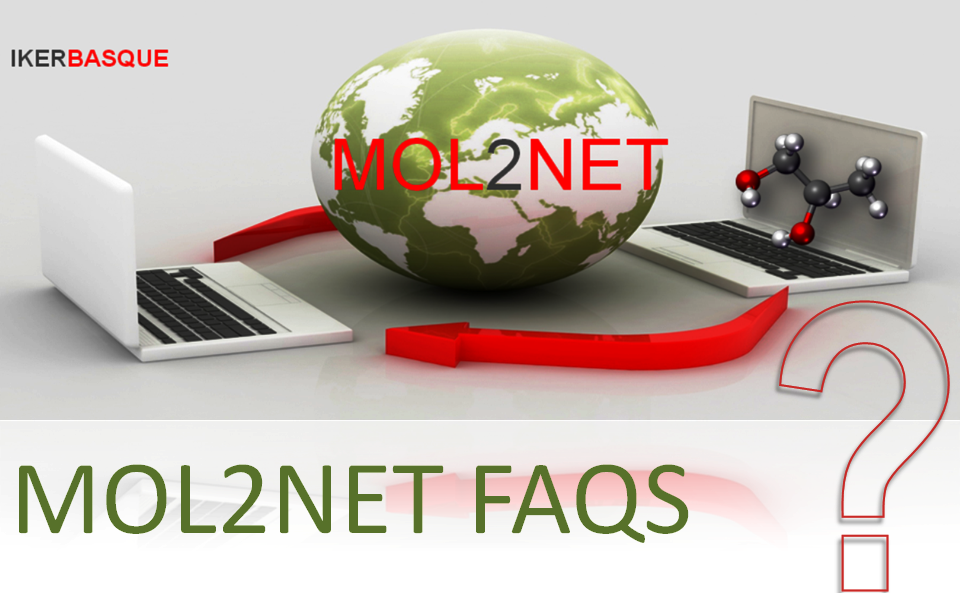
Article processing charges may apply depending on the journal, contact guest editors.
discussions about previous papers authored by you or other authors.
MOL2NET Privacy Policy
MOL2NET Conference is a totally Free of Charge and Open Access Conference sponsored by MDPI Journals and PANELFIT H2020 project funded by the European Union. Contents may be distributed on delay streaming in our Video Channel or our social networks in FaceBook, Linkedin, or ResearchGate. Consequently, our privacy policy is conditioned by the policy of these media. Apart from the privacy policy of these media, we also have our custom privacy policy in order to increase transparency about the use of your data.
Any personal data you provide will be processed in compliance with relevant EU and national data protection laws. By agreeing to submit your information to us, we will process your personal data in accordance with the purposes, requirements and restrictions defined below
What do we use your personal information for?
- Inform about the different academic and research activities promoted by Mol2Net conference through our social media YouTube, SciForum, ResearchGate, Facebook, LinkedIn, and mailing list.
- Registration to Mol2Net events (Workshops/online courses/Mutual Learning Platform tool).
What personal information do we collect?
For the sole purpose of each activity, duly informed in the framework of the same, the only data PANLEFIT will collected are:
- (a) First and last name
- (b) Email
- (c) Institution
On a voluntary basis, the telephone number and postal address may be provided for the relevant purposes of communication in relation to the activities of the project.
Why do we use your personal information?
The legal basis that allows us process your personal data is the consent you have given to complete and send the forms enabled on the website of our social medias referred above.
Mol2Net does not provide your personal data to third parties, unless it is necessary to comply with a legal mandate.
How long will we keep your personal information?
Your personal information will be used until the purpose for which it was collected; it may be archived for up to five years after the end of the current edition of Mol2Net conference. The date extends if you participate in future editions correspondingly or until you withdraw your consent, after which point it will be deleted from Mol2Net chairperson files. Deletion from social media like YouTube, SciForum, ResearchGate, Linkedin, Twitter, or Facebook, should follow the procedures established by those media.
What are your rights when you provide Mol2Net your personal data?
You have the right to request from the controllers’ access to the personal data we have that pertains to you.
The right to request the controllers to rectify any errors in your personal data to ensure its accuracy.
The right to request the controllers to erase your personal data.
The right to request the controllers to restrict the future processing of your personal data, or to object to its processing.
The right to data portability — upon request the data controller should provide you with a copy of all data we have regarding you in a structured, commonly used and machine-readable format.
As the processing of your personal data occurs based on your consent, you have the right to withdraw your consent at any time and we will cease further processing activities involving your personal data. However, please note that this will not affect the lawfulness of any processing already performed before you withdraw your consent.
You have the right to lodge a complaint with a supervisory authority, such as your national data protection authority.
How can you exercise your rights?
You can exercise your rights of access, rectification, deletion and portability of your data, limitation and opposition to its treatment, as well as not being subject to decisions based solely on the automated processing of your data at the e-mail address mol2net.chair@gmail.com
00. News & Editorials
In this session we publish the editorials, news, call for papers, and other materials related to mol2net conference series.
Show all published submissions (1) Hide published submissions (1)
Submissions
List of Papers (1) Toggle list
01. CHEMBIO.INFO-07: Cheminfo., Chemom., Comput. Chem. & Bioinfo. Congress München, GR-Cambridge, UK-Ch. Hill, USA, 2021.

AIDD School Series.

Advanced Machine Learning for Innovative Drug Discovery (AIDD) School Series are workshops/webinars organized as part of the Marie Skłodowska-Innovative Training Network of the AIDD project (see sponsors bellow). School Coordinator: Dr. Igor Tetko (AIDD Coordinator and CHEMBIOMOL Co-Host Chairman), Inst. of Struct. Biol., Helmholtz Zentrum München - German Research Center for Environmental Health (GmbH), Neuherberg, Germany. Funding Agency: European Commision. Date: 2021-2024. AIDD school series is being also sponsor of, associated to, and co-published/announced by the MOL2NET Congress CHEMBIOINFO: Cheminfo., Chemom., Bioinfo., Comput. & Quantum Chem. Congress Series München, GR-Cambridge, UK-Ch. Hill, USA, 2022-2024. Please see AIDD School calls for webinars, speakers, topics, etc. here: https://ai-dd.eu/lectures.

In parallel, the members of committees and/or authors are encouraged to edit special issues for different journals of the editorial MDPI (http://www.mdpi.com/). The special issues run in parallel, or totally independently from the conference. Manuscripts should be submitted online at www.mdpi.com by registering and logging in to this website. In order to send a proposal of associated workshop and/or special issue contact the chairperson of the conference Prof. González-Díaz H. Please, check the following special issues associated to the topic of the workshop.


CHEMBIOINFO-07 Dedicated to Prof. R. Todeschini and Prof. Danail Bonchev


CHEMBIOINFO-07 Co-Host Honor Chairpersons
CHEMBIOINFO-07 USA Co-Host Honor Chairman
Prof. Alexander Tropsha, Associated Dean UNC Eshelman School of Pharmacy, Associated Editor J. Chem. Info. Model., ACS, USA.
University of North Carolina , Chapel Hill, 27599, North Carolina, USA. Email: alex_tropsha@unc.edu
CHEMBIOINFO-07 Germany Co-Host Honor Chairman
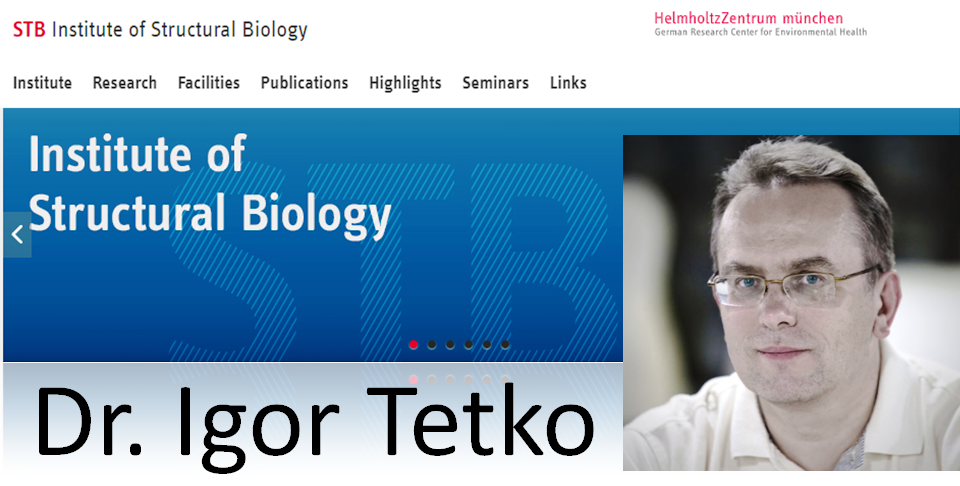
Dr. Igor Tetko, Inst. of Struct. Biol., Helmholtz Zentrum München - German Research Center for Environmental Health (GmbH), Neuherberg, Germany. Email: i.tetko@helmholtz-muenchen.de
CHEMBIOINFO UK Co-Host Honor Chairman Dr. Yasset Perez-Riverol, European Bioinformatics Institute(EMBL-EBI), Cambridge, United Kingdom.
Dr. Yasset Perez-Riverol, European Bioinformatics Institute(EMBL-EBI), Cambridge, United Kingdom.
CHEMBIOINFO SeriesFounder SteeringChairman Prof. Humbert González-Díaz, IKERBASQUE Professor, Email: mol2net.chair@gmail.com,
Prof. Humbert González-Díaz, IKERBASQUE Professor, Email: mol2net.chair@gmail.com,
(1) Dept. of Organic Chemistry II, University of the Basque Country UPV/EHU , 48940, Leioa, Biscay, Spain.
(2) IKERBASQUE, Basque Foundation for Science , 48011, Bilbao, Biscay, Spain.
ORCID: https://orcid.org/0000-0002-9392-2797
CHEMBIOMOL Series Honor Committee

Prof. Stephan Schürer, Miller School of Medicine, Dept. of Molecular and Cellular Pharmacology, and Sylvester Comprehensive Cancer Center, University of Miami School of Medicine, Miami, FL, USA.

Prof. Paola Gramatica, Full professor of Environmental Chemistry, Faculty of Sciences, Insubria University, Italy.

Prof. Weifan Zheng, Department of Pharmaceutical Sciences, North Carolina Central University, Durham, USA.
Email: wzheng@nccu.edu

Prof. Dr. Irina Moreira, Center for Neuroscience and Cell Biology (CNC), University of Coimbra, Coimbra, Portugal.
Founder Chairperson of Series Meeting of Young Researchers in Structural Computational Biology (EJIBCE ),
See last editions (EJIBCE 2018), (EJIBCE 2017), Emails: ejibce@gmail.com, irina.moreira@cnc.uc.pt

Prof. Eugene Muratov, Laboratory for Molecular Modeling, UNC Eshelman School of Pharmacy, University of North Carolina , Chapel Hill , North Carolina 27599 , USA. Email: murik@email.unc.edu

Dr. Joana Mourão, Center for Neuroscience and Cell Biology (CNC), University of Coimbra, Coimbra, Portugal.
Chairperson of VIII Meeting of Young Researchers in Structural Computational Biology (EJIBCE'21),
Email: jmourao@cnc.uc.pt
Prof. Bakhtiyor Rasulev, Dept. Coat. & Polym. Mat., North Dakota State University (NDSU), Fargo, ND, USA.
Dr. Subhash C. Basak, Dept. of Chemistry and Biochemistry, University of Minnesota, Duluth, MN, USA.
Prof. Robersy Sánches, Eberly College of Science, Pennsylvania State University (PennState), PA, USA.
Prof. Matthew M. Montemore, Dept. Chem. & Biomol. Eng., Tulane University, New Orleans, LA, USA.
PhD. Ricardo Santana, Machine Learning Expert, IntelliSense.io, Cambridge, United Kingdom.
Prof. Christoph Kaleta, Christian-Albrechts-Universität zu Kiel (CAU), Kiel, Schleswig-Holstein, Germany.
Prof. Davide Ballabio, Chemometrics Group, Università of Milano-Bicocca (UNIMIB), Milano, Italy.
Prof. Jordi Mestres, CEO ChemoTargets, IMIM, Univ. Pompeu Fabra, Barcelona, Catalunya, Spain.
Prof. Natalia D.S. Cordeiro, Dept. of Chem. and Biochem., University of Porto, Porto, Portugal.Prof. Cristian R. Munteanu, Fac. of Comput. Sci., Univ. of A Coruna, A Coruña, Galicia, Spain.
Dr. Salete Baptista, C2TN - Centro de Ciências e Tecnologias Nucleares, Lisbon, Portugal.
Dr. Alla Toropova, Istituto di Ricerche Farmacologiche Mario Negri, Milano, Lombardy, Italy.
Dr. Andrey Toropov, Istituto di Ricerche Farmacologiche Mario Negri, Milano, Lombardy, Italy.
Prof. Kunal Roy, Dept. Pharm. Tech., Jadavpur University, Kolkata, West Bengal, India.
Prof. Marcus T. Scotti, Dept. de Química, Univ. Federal da Paraíba, Paraíba, Brazil.
Prof. González-Díaz H., IKERBASQUE Professor, Email: mol2net.chair@gmail.com
(1) Dept. of Org. & Inorg. Chem., University of the Basque Country UPV/EHU, Basque Country, Spain.
(2) IKERBASQUE, Basque Foundation for Science , 48011, Bilbao, Basque Country, Spain.
CHEMBIOINFO Assistant Chairperson
Prof. Sonia Arrasate, Email: sonia.arrasate@ehu.eus
Dept. Org. & Inorg. Chem., Univ. of Basque Country (UPV/EHU), Basque Country, Spain.
ICTs & Regulatory Affairs Chairperson
Dr. Aliuska Duardo-Sanchez (Law.Lic., Ph.D. TICs & Legal Sciences)
PANELFIT European Commission Project Manager. Research Group: Chair in Law and The Human Genome,
Dept. of Public Law, University of Basque Country (UPV/EHU), Campus Biscay, Basque Country, Spain.
Congress Chairs
Prof. Dr. Irina Moreira, Center for Neuroscience and Cell Biology (CNC), University of Coimbra, Coimbra, Portugal.
Dr. Joana Mourão, Center for Neuroscience and Cell Biology (CNC), University of Coimbra, Coimbra, Portugal.
Show all published submissions (38) Hide published submissions (38)
Submissions
List of Papers (38) Toggle list
02. CHEMBIO.ORG-07: Org. Chem., Med. Chem., Mol. Biol., & Pharm. Industry Congress, Paris, France-Galveston, USA, 2021.

Computational Sciences Topics: In addition, the congress also deals with the application of new Information and Communication Technologies (ICTs) in the previous experimental areas. This includes, Cheminformatics, Bioinformatics, Big Data Analysis, Biostatistics, Artificial Intelligence, Networks Theory Analysis of Biosystems, etc.
Bioethics & Regulatory Topics: Last, not the least, the workshop deals with all the Legal, Regulatory, and Bioethics issues emerging from use of new experimental techniques and ICTs in the previous areas such as Drug Patenting, Drug re-purposing patents, Food Drug Administration (FDA) drug and vaccine approvals, Vaccine Emergency Use Listing (EUL) by World Health Organization (WHO), Europe Data Protection Regulation (GDPR), Proteome and Genome patentability, Synthetic Biology, Modified Organisms, Biomedical Personal Image Processing, Personal Data Protection, OECD Chemoinformatics regulation, Personalized Medicine, Software and Models Copyrights, etc.
(5) Follow the link in the email or login to upload paper (doc and pdf format).
(6) Login to post comments, questions, or answers in a section or in one of the MOL2NET workshops.
CHEMBIO.ORG-01 Dedicated To Celebrating Long & Successful Editorial Career of Dr. Allen Reitz

(Founder EIC Current Topics in Medicinal Chemistry)
Honour Host Chairpersons
 Prof. Jia Zhou, Department of Pharmacology and Toxicology, University of Texas Medical Branch, Galveston, TX, USA.
Prof. Jia Zhou, Department of Pharmacology and Toxicology, University of Texas Medical Branch, Galveston, TX, USA.
(MDPI IJMS Guest Editor, EIC Current Topics in Medicinal Chemistry)

Université Paris-Saclay, Bureau 221 - Bâtiment D3 - 5, rue J.B. Clément, 92296 Châtenay-Malabry, Paris, France.
Email: francoise.dumas@univerite-paris-saclay.fr
Honor Scientific Committee
ERASMUS+ Co-Host Academic Pursuit Chairpersons

ERASMUS+ UROSTOCK-UPVEHU Organic Chemistry Academic Agreement coordinator.

(Coordinator Ph.D. Synth. & Ind. Chemistry)

Prof. Nuria Sotomayor, Dept. Org. & Inorg. Chem., University of Basque Country (UPV/EHU), Basque Country, Spain.

Prof. Dr. Pascale Moreau, Department of Chemistry, Université Clermont Auvergne, Clermont-Ferrand, France.

Prof. Nuria Sotomayor, Dept. Org. & Inorg. Chem., University of Basque Country (UPV/EHU), Basque Country, Spain.

Prof. Jesús Jimenez-Barbero, IKERBASQUE Professor, Scientific Director of Center for Cooperative Research in Biosciences (CICBiogune), Biscay, Dept. of Organic Chemistry II, UPV/EHU, Leioa, Basque Country, Spain.
 Prof. Ramón J. Estévez Cabanas, CIQUS and Dept. of Organic Chemistry, USC, Spain.
Prof. Ramón J. Estévez Cabanas, CIQUS and Dept. of Organic Chemistry, USC, Spain.
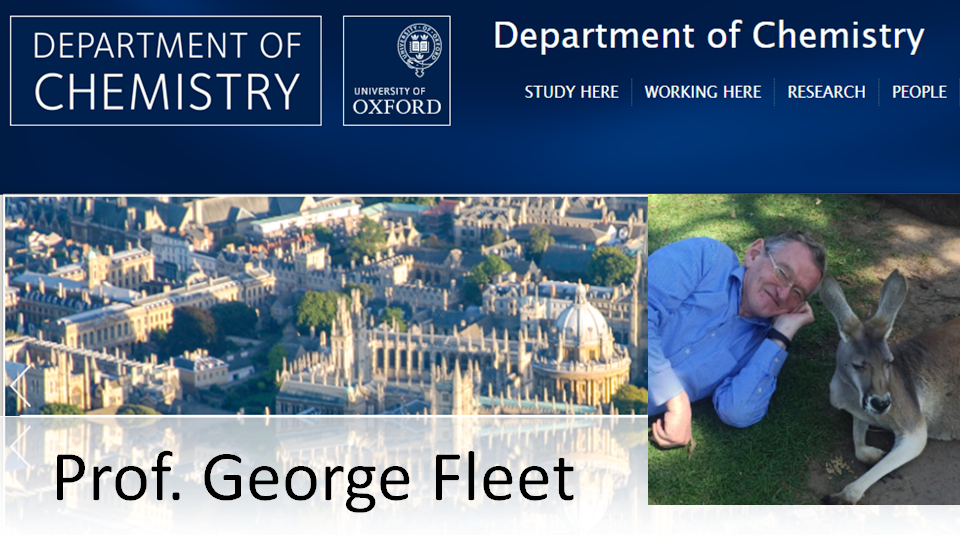
Prof. Dr. George Fleet, Chemistry Research Laboratory, Department of Chemistry, University of Oxford, Oxford, OX1 3TA, UK.
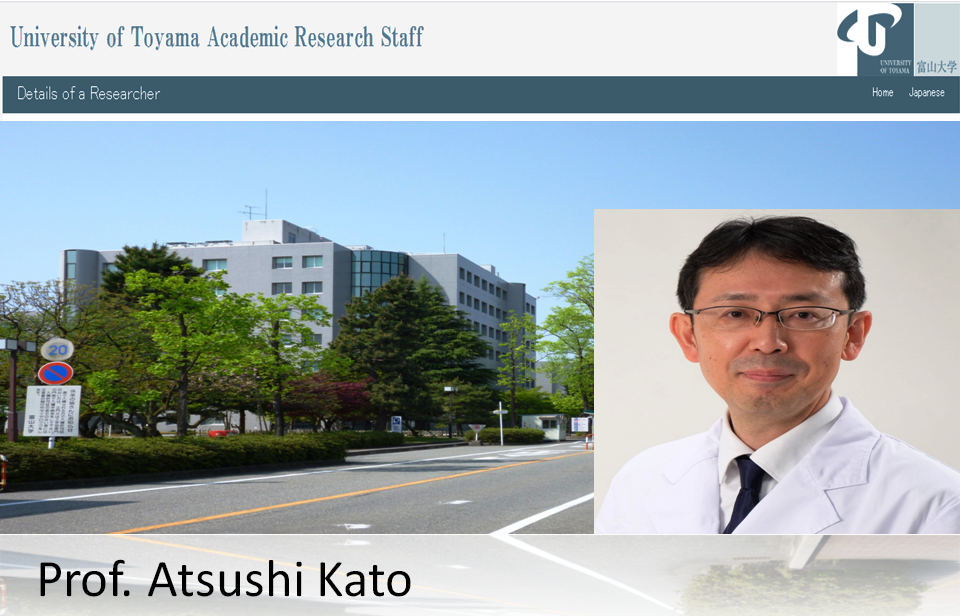
Prof. Atsushi Kato, Department of Hospital Pharmacy, University of Toyama, 2630 Sugitani, Toyama 930-0194, Japan.
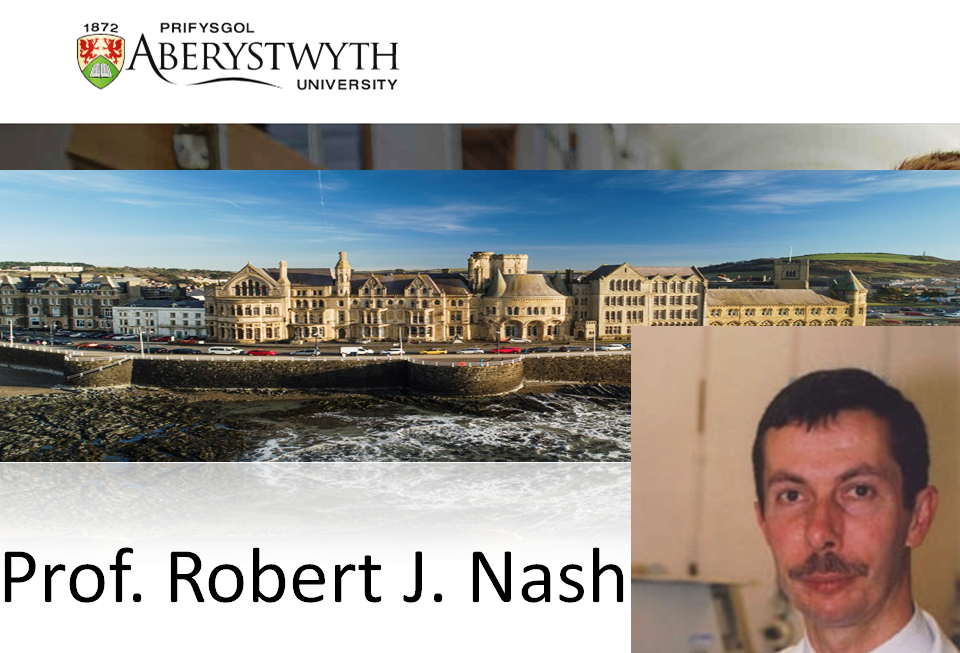
Prof. Robert J. Nash, Aberystwyth University, Phytoquest Limited, IBERS, Ceredigion, United Kingdom.
Prof. Cesar Martín Plagaro, Dept. of Biochemistry and Basque Center for Biophysics,
Univ. of Basque Country (UPV/EHU), Leioa, Basque Country, Spain.






CHEMBIOMOL Scientific Advisory Committee
Prof. Bakhtiyor Rasulev, Dept. of Coatings and Polymeric Material, North Dakota State University (NDSU), Fargo, USA.
Prof. Shira Knafo, IKERBASQUE Prof., BIOFISIKA Center, UPV/EHU and Ben-Gurion Univ. of Negev, Israel.
Prof. Natália D. S. Cordeiro, REQUIMTE Theor. Chem. Net., University of Porto (UPORTO), Portugal.
Dr. Diana Herrera, College of Veterinary Medicine, Kansas State University, Manhattan, Kansas, USA.
Dr. Irina Moreira, Center for Neuroscience and Cell Biology (CNC), Universidade de Coimbra, Coimbra, Portugal.
Dr. Guillermin Agüero, CIIMAR, Interdisc. Centre of Marine and Environ. Research, University of Porto, Portugal.
Prof. Maria L. Carrillo Fernández, Dept. of Organic & Inorganic Chemistry, UPV/EHU, Basque Country, Spain.
Prof. Efraim Reyes Martín, Dept. of Organic & Inorganic Chemistry, UPV/EHU, Basque Country, Spain.
Prof. Uxue Uria Pujana, Dept. of Organic & Inorganic Chemistry, UPV/EHU, Basque Country, Spain.
Prof. Raúl SanMartín Faces, Dept. of Organic & Inorganic Chemistry, UPV/EHU, Basque Country, Spain.
Prof. Mª Teresa Herrero Corral, Dept. of Organic & Inorganic Chemistry, UPV/EHU, Basque Country, Spain.
Prof. Maria I. Moreno, Sec. Dept. of Organic and Inorganic Chemistry, UPV/EHU, Basque Country, Spain.
Prof. Asier Benito-Vicente, Dept. of Biochemistry, Univ. of Basque Country (UPV/EHU), Basque Country, Spain.
Dr. Marta G. Lete,CIC bioGUNE, Center for Cooperative Research in Biosciences, Basque Country, Spain.
CHEMBIOMOL Publication Steering Chairman
Prof. Humbert G. Díaz, IKERBASQUE Prof., Email: mol2net.chair@gmail.com
(1) Dept. of Org. & Inorg. Chemistry, Univ. of the Basque Country UPV/EHU, 48940, Leioa, Grt. Bilbao, Basque Country, Spain.
(2) BIOFISIKA CSIC-UPV/EHU Institute, 48940, Leioa, Grt. Bilbao, Basque Country, Spain.
(3) IKERBASQUE, Basque Foundation for Science, Bilbao, Basque Country, Spain.![]() ORCID: https://orcid.org/0000-0002-9392-2797
ORCID: https://orcid.org/0000-0002-9392-2797
MODECO Publication Assistant Chairperson
Prof. Sonia Arrasate, Email: sonia.arrasate@ehu.eus
Dept. Org. & Inorg. Chem., Univ. of Basque Country (UPV/EHU), Basque Country, Spain.
CHEMBIOMOL'21 Associated Congresses

Prof. Marcus Tullius Scotti , Email: mscotti@ccae.ufpb.br, (Coordenador Docente), Dept. de Química, Centro de Ciências Exatas e da Natureza, Universidade Federal da Paraíba - Campus I, Cidade Universitária, Paraíba, Brazil.

UDLABIOTECH Scientific Advisory Committee
Prof. Pablo Castillejo, BIOMAS Group, Universidad de Las Américas (UDLA), Ecuador.
Prof. Maria A. Cruz, Dept. of Biotechnology, Universidad de Las Américas (UDLA), Ecuador.
Prof. Emilia Vasquez, Dept. of Biotechnology, Universidad de Las Américas (UDLA), Ecuador.
Prof. Andrea Cordero, Dept. of Biotechnology, Universidad de Las Américas (UDLA), Ecuador.
Prof. Fernando Rivas, FICA, Universidad de Las Américas (UDLA), Ecuador.
ERASMUS+ UROSTOCK-UPVEHU Organic Chemistry Academic Agreement coordinator.
(1) Dept. of Organic and Inorganic Chemistry and Basque Center for Biophysics (CSIC-UPV/EHU),
(2) IKERBASQUE, Basque Foundation for Science , 48011, Bilbao, Basque Country, Spain.
Prof. Sonia Arrasate, Email: sonia.arrasate@ehu.eus
Dept. Org. & Inorg. Chem., Univ. of Basque Country (UPV/EHU), Basque Country, Spain.
CHEMBIOMOL ICTs & Bioethics Regulatory Affairs Chairperson
Dr. Aliuska Duardo-Sanchez (Law.Lic., Ph.D. TICs & Legal Sciences)
PANELFIT European Commission Project Manager. Research Group: Chair in Law and The Human Genome,
Dept. of Public Law, University of Basque Country (UPV/EHU), Campus Biscay, Leioa 48940, , Basque Country, Spain.
Congress Chairs
Prof. Dr. Marcus T Scotti, Dept. de Química, Centro de Ciências Exatas e da Natureza, Universidade Federal da Paraíba - Campus I, Cidade Universitária, Paraíba, Brazil.
Prof. Dr. Françoise Dumas, PhD DR CNRS, BIOmolécules : Conception, Isolement et Synthèse, LabEx LERMIT and IPSIT, Université Paris-Saclay, Bureau 221 - Bâtiment D3 - 5, rue J.B. Clément, 92296 Châtenay-Malabry, Paris, France.
03. NANOBIO.MAT-07: Nanotech., Biomed. Eng., & Mat. Sci. Congress, Birmingham & Portsmouth, UK-Jackson & Fargo, USA, 2021.


Journal: Nanomaterials (ISSN 2079-4991), JCR IF = 5.076. Editors: Prof. Dario Greco, Faculty of Medicine and Health Technology, Tampere University, Tampere, Finland. Dr. Antreas Afantitis, Department of Cheminformatics, NovaMechanics Ltd, Nicosia, Cyprus. Prof. Dr. Iseult Lynch, School of Geography, Earth & Environmental Sciences, University of Birmingham, United Kingdom. Dr. Maria Dusinska , NILU - Norwegian Institute for Air Research, Kjeller, Norway. Prof. Dr. Miguel A. Banares , CSIC - Institute for Catalysis, Madrid, Spain.
Nanomaterials (Call For Papers): Special Issue: From Measurements to Predictive Models: Recent Advancements in Nanosafety Research. Journal: Nanomaterials (ISSN 2079-4991), JCR IF = 5.076. Editors: Prof. Dr. Tae-Hyun Yoon, Center for Next Generation Cytometry, Hanyang University, Seoul 04763, Korea. Prof. Dr. Eugenia Valsami-Jones, University of Birmingham, Birmingham, United Kingdom. ... Prof. Dario Greco, Faculty of Medicine and Health Technology, Tampere University, Tampere, Finland. Submissions until: 2022-Jan-31.


Honor Co-Host Chairperson Committee

Prof. Jerzy Leszczynski, (USA Presidential Distinguished Fellow), Director CREST NSF Interdisciplinary Center for Nanotoxicity (ICN),
Dept. of Chem. and Biochem., Jackson State University (JSU), Jackson, USA.
Prof. Bakhtiyor Rasulev, President of MOL2NET Scientific Committee for Polymers & Materials Sciences.
Department of Coatings and Polymeric Material, North Dakota State University (NDSU), Fargo, USA.
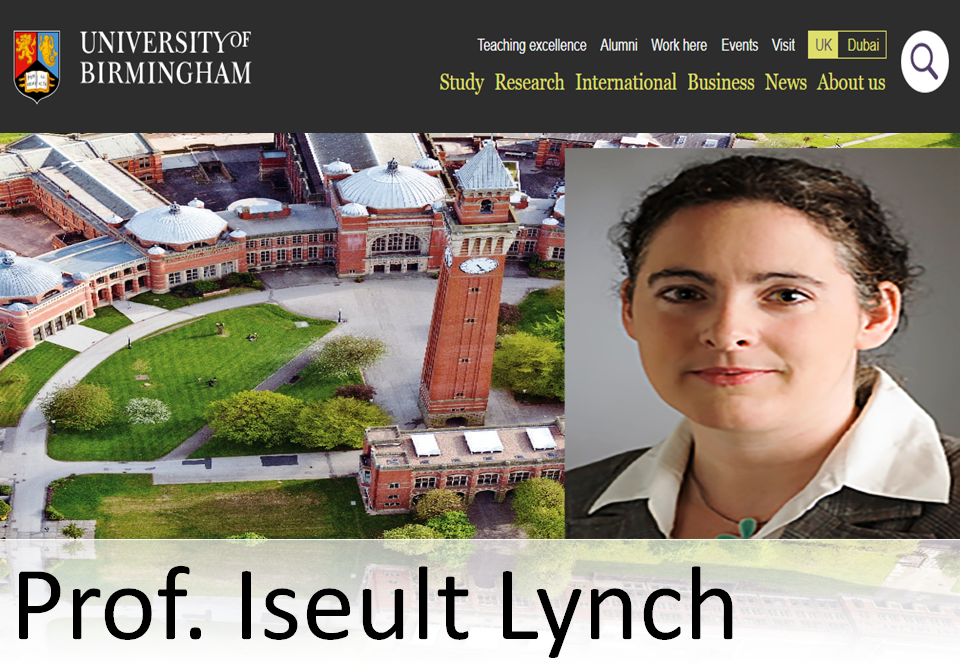
Prof. Iseult Lynch, School of Geo., Earth and Environ. Sci., Univ. of Birmingham, Birmingham, United Kingdom.

Prof. Aikaterini Lalatsa, Reader in Nanomedicines at University of Portsmouth, Portsmouth, United Kingdom.
NANOBIOMAT Executive Chairperson, email: katerina.lalatsa@port.ac.uk
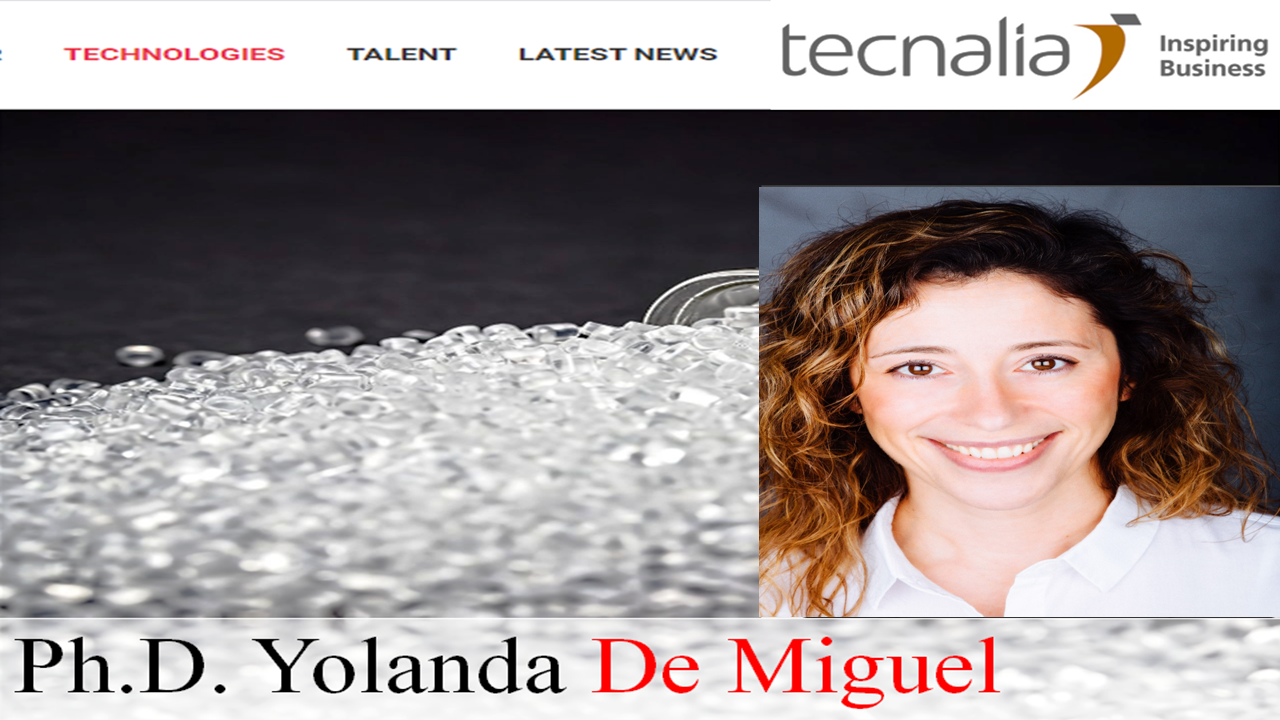
Ph.D. Yolanda de Miguel , Dir. Nanotechnology Cluster, Tecnalia, Basque Country, Spain. [TECNALIA NANOTECH, Youtube Cover]

Prof. Rosa María Hernández, Faculty of Pharmacy, University of Basque Country, Vitoria, Basque Country, Spain.
Scientific Committee
Dr. Barry Hardy, CEO Edelweiss Connect, President of OpenTox Association, Basel, Switzerland.
Prof. Juan M. Ruso, Dept. Applied Physics, University of Santiago de Compostela (USC), Spain.
Prof. Natalia D.S. Cordeiro, Dept. of Chem. and Biochem., University of Porto, Porto, Portugal.
Prof. Agnieszka Gajewicz, Assist. Prof., Faculty of Chemistry, University of Gdansk, Gdansk, Poland.
Prof. Ma. Auxiliadora Dea-Ayuela, Dept. of Pharm., University CEU Cardenal Herrera, Valencia, Spain.
Prof. Dolores R. Serrano, Dept. of Pharm. and Food Tech., University Complutense, Madrid, Spain,
Dr. Natasha Sanabria, National Inst. for Occupational Health, Johannesburg, South Africa.
Dr. Alla Toropova, Istituto di Ricerche Farmacologiche Mario Negri IRCCS, Milano, Italy.
Dr. Andrey Toropov, Istituto di Ricerche Farmacologiche Mario Negri IRCCS, Milano, Italy.
Prof. Juan M. Gutierrez-Zorrilla, Dept. of Org. & Inorg. Chem., UPV/EHU, Basque Country, Spain.
Prof. Antonio Luque, Dept. of Org. & Inorg. Chem., UPV/EHU, Basque Country, Spain.
Prof. Jose Luis Vilas, Dir. Dept. of Physical Chemistry, UPV/EHU, Basque Country, Spain.
Prof. Luis Lezama, Dept. of Org. & Inorg. Chem., UPV/EHU, Basque Country, Spain.
Prof. Izaskun Gil de Muro, Dir. Dept. of Org. & Inorg. Chem., UPV/EHU, Basque Country, Spain.
Prof. Maite Insausti, Dept. of Org. & Inorg. Chem., UPV/EHU, Basque Country, Spain.
Prof. Aintzane Goñi, Dept. of Org. & Inorg. Chem., UPV/EHU, Basque Country, Spain.
Prof. Oscar Castillo, Dept. of Org. & Inorg. Chem., UPV/EHU, Basque Country, Spain.
Dr. Natalia Sizochenko, Dept. of Computer Science, Dartmouth College, Hanover, NH, USA.
Dr. Supratik Kar, ICN, Dept. of Chem., Phys. and Atm. Sciences, Jackson State University, USA.
NANOBIOMAT Publication Steering Chairman
Prof. González-Díaz H., IKERBASQUE Professor, Email: mol2net.chair@gmail.com
(1) Dept of Org. Chem. II and Basque Center for Biophysics (CSIC UPV/EHU),
University of the Basque Country UPV/EHU , 48940, Leioa, Biscay, Spain.
(2) IKERBASQUE, Basque Foundation for Science , 48011, Bilbao, Biscay, Spain.
NANOBIOMAT Publication Assistant Chairperson
Prof. Sonia Arrasate, Email: sonia.arrasate@ehu.eus
Dept. Org. & Inorg. Chem., Univ. of Basque Country (UPV/EHU), Basque Country, Spain.
ICTs & Bioethics Regulatory Affairs Chairperson
Dr. Aliuska Duardo-Sanchez (Law.Lic., Ph.D. TICs & Legal Sciences)
PANELFIT European Commission Project Manager. Research Group: Chair in Law and The Human Genome,
Dept. of Public Law, University of Basque Country (UPV/EHU), Campus Biscay, Leioa 48940, Spain.
Congress Chairs
Prof. Dr. Bakhtiyor Rasulev, Department of Coatings and Polymeric Material, North Dakota State University (NDSU), Fargo, USA.
Prof. Dr. Aikaterini Lalatsa, Reader in Nanomedicines at School of Pharmacy and Biomedical Sciences, Faculty of Science and Health, University of Portsmouth, United Kingdom.
Show all published submissions (23) Hide published submissions (23)
Submissions
List of Papers (23) Toggle list
06. BIOMODE.ECO-06: Biotech., Mol. Eng., Nat. Prod. Develop. and Ecology Congress, Paris, France-Ohio, USA, 2021.
Welcome Message
Welcome to the BIOMODE.ECO-06: Biotech., Mol. Eng., Nat. Prod. Develop. and Ecology Congress, From Forest to Oceans, Paris, France - Ohio, USA, 2021. This congress focus on the research on environmental chemistry, sustainability, climate impact, preservation, energy production, and environment-friendly industrial development of forests, oceans, and natural resources. The congress promotes the application of the Multidisciplinary Sciences for Climate research, Ecosystems preservation, Sustainable Energy and Fuels production, Hydrogen economy, Circular Economy, Environmental Chemistry, etc. It also focus on the development of natural products and agro-industrial processes in Ecuadorian Amazon and Pacific and Atlantic Oceans and coastal regions. It involves methodologies ranging from experimental chemistry, chemical engineering, biomolecular sciences, computational methods, economical, social, bioethics, and regulatory affairs.
Promoters. This is a trans-Atlantic inter-university congress. On the Americas' side the congress is chaired and co-hosted by professors/researchers of the Center for Environmental Solutions and Emergency Response (CESER), Environment Protection Agency (EPA), USA. From Europe's side the workshop is chaired and co-hosted by researchers and professors of the Interdisciplinary Centre of Marine and Environmental Research (CIIMAR), University of Porto (UPORTO), Porto, Portugal, and Université de La Rochelle, La Roche (ULAROCHELLE), Laboratoire LIENSs Littoral Environnement et Sociétés (LIENSs), Institut Écologie et Environnement (INEE), French National Centre for Scientific Research (CNRS), Paris, France. Locally, the congress is supported by professors/researchers from Basque Center for Climate Change (BC3) and Chair on Sustainable Development and Environmental Education (GIEIHB) of United Nations Educational, Scientific and Cultural Organization (UNESCO). The congress was founded and is co-chaired and promoted by researchers of the Department of Organic and Inorganic Chemistry, University of The Basque Country (UPV/EHU) endowed by IKERBASQUE, Basque Foundation for Science, Bilbao, Basque Country, Spain.
Host Conference. The congress is associated to and hosted online by the MOL2NET'21, Conference on Molecular, Biomedical, and Computational Sciences and Engineering, 7th ed, ISSN: 2624-5078, MDPI SciForum, Basel, Switzerland. This conference is hosted online by the SciForum platform supported by Multidisciplinary Digital Publication Institute (MDPI), Basel, Switzerland with roots in the Molecular Diversity Preservation International (MDPI) institute.
Working Languages. English is the main working language of the congress. However, as a North-Ibero-American-Europe inclusive conference the congress aims to accept papers to be published in multiple languages spoken on the countries, states, and communities of the entire North-Ibero-American-Europe area of influence. It involve, but is not limited to: France, México, Brazil, Spain, Portugal, USA, Canada, Ecuador, Chile, Basque Country, Catalunya, Valencia, Galicia, etc. Consequently, we accept papers on the following languages: English, Spanish, French, Portuguese, Basque (Euskera), Catalá / Valenciano, and Galego. We also accept bi-lingual posters in two-column format, e.g, English-Basque, English-Spanish, France-English, English-Portuguese, Spanish-Galego, etc. Other languages than those cited above may be considered but it could conditioned to the fluency of the experts in the reviewing panel.
Publication Modalities. There are two separted routes for publication. Firstly, all communications submited directly to the workshop will be Published Online Free of Charge open year round. In addition, all authors are invited to submit by separate (optional) full paper versions of their communications to the MDPI journal associate special issue, in this case (APC apply). In th first case, communications submitted to the workshop are expected to be short papers or posters consisting of 1-3 pages. Be aware that the submission is a two step process. First you must register and submit a tentative title, authors list and abstract. Next, you need to submit your full publication upon acceptance of the abstract by the committee. Full communications submited to workshop will be in the Sciforum platform, with doi number as soon as possible upon acceptance. If you are planning to submit a publication, please use the following template, [MODEC 2020 Template.doc]. In the case of MDPI special issues, submission is totally be separate in the issue page, please see the following information.
BIOMODECO-MDPI Journal Special Issues


Metabolites (Call For Papers): Special Issue: The Impact of Marine Chemical Pollution to Microorganism Metabolites. Journal: Metabolites (ISSN 2218-1989), IF = 4.097. Editor: Prof. Marianne Graber, Laboratoire LIENSs Littoral Environnement et Sociétés, Institut écologie et environnement (IEE), French National Centre for Scientific Research (CNRS), Paris, France. Submissions until: 15-Nov-2021. Email: marianne.graber@univ-lr.fr
Workshop Topics of Interest: The topics of the conference, include, but are not limited to: Sustainable Energy and Fuels production, Hydrogen economy, Biofuels, Chemical engineering, Marine chemical pollution; Marine and Forest Microorganisms; Marine and Forest environment; Metabolomics; Microbial biofilms formation. Experiental and Computational chemistry, Cheminformatics, and Bioinformatics of Forest and Marine Natural products. Mathematical modelling of Natural, Climate, Biotechnological, Agricultural, and Environmental Process. Organic and Functional Foods of Forest and Ocean origin. BioTrade: Sustainability and Trading of Natural Products of the Amazon and Coastal regions. Production systems with agro-business and forestry purposes or biomass for energy purposes. Environmental impacts in Forest and Ocean of Climate Changes and Industrial exploitation. Geographic Information Systems (GIS) for Climate and Land cover monitoring and forecasting. Agro-industrial development processes.
- Abstracts submission until Dec-25.
- Abstract acceptance until Dec-25.
- Communications submission until Dec-30.
- Communications acceptance until Dec-30.
- Communications publication until Dec-30.
Authors liability. Before to submit your work be aware that the editorial publication model of this workshop is similar to a PREPRINTservice. It means that works presented here have to be considered only as preliminary communications and not as final post-print versions of journal papers. In this sense, even when all the works published are revised by at least one member of the committee and/or external reviewer this level of revision checks only apparent scientific soundness and general scientific interest. In a second level, collective post-publication review, the works published may receive comments (published in the form of posts) from all the participants registered in the conference. The authors are prompted to use all these opinions to write the full versions of their works and submit them to publication in a peer-reviewed scientific journals according to SciForum copyright rules. In any case, the authors are the only one responsible of the veracity of the contents, checking similarity to other works, citing properly previous works, etc.
BIOMODECO Co-Host Honor Chairpersons
BIOMODECO France Co-Host Honor Chairperson

Prof. Marianne Graber, Directrice Adjointe Relations Internationales, Faculté des Sciences et Technologies, Université de La Rochelle, La Roche, France. Chercheur, Laboratoire LIENSs Littoral Environnement et Sociétés, Institut écologie et environnement (IEE), French National Centre for Scientific Research (CNRS), Paris, France. Email: marianne.graber@univ-lr.fr
BIOMODECO USA Co-Host Honor Chairperson
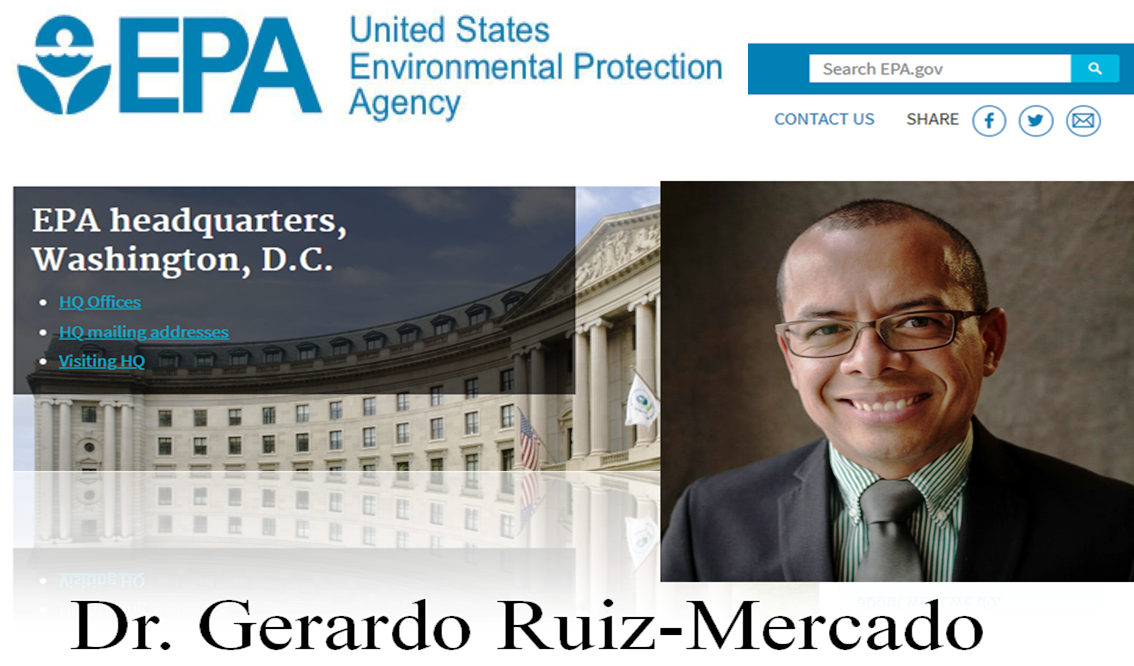
Dr Gerardo Ruiz-Mercado, Center for Environmental Solutions and Emergency Response, United States Environmental Protection Agency (EPA), Ohio, USA. Email: ruiz-mercado.gerardo@epa.gov
BIOMODECO Honor Committee
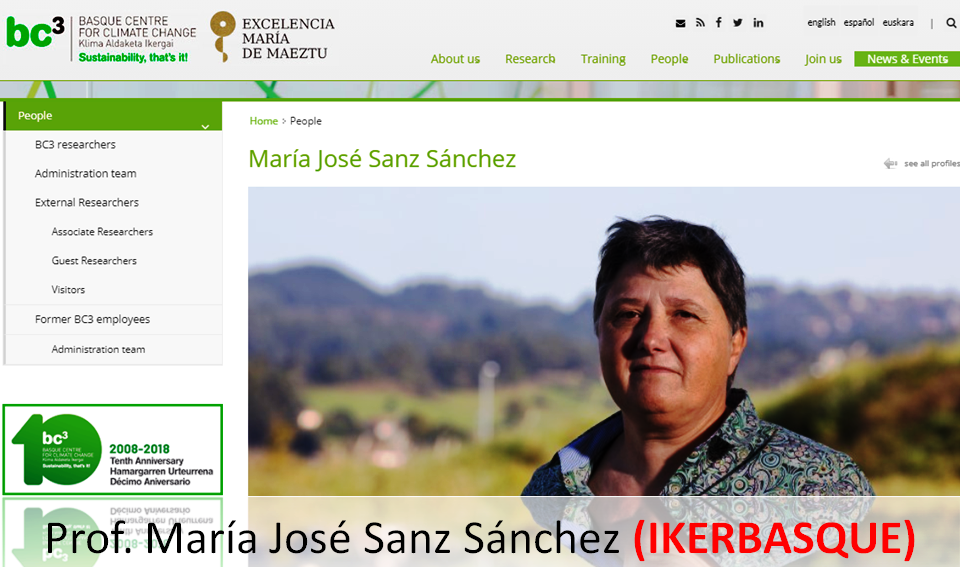
Prof. María José Sanz Sánchez, IKERBASQUE Prof., Scientific Director, Email address: info@bc3research.org
Basque Center for Climate Change (BC3), UPVEHU, Leioa, Basque Country, Spain.
 Prof. Anil Markandya, IKERBASQUE Prof., Basque Center for Climate Change (BC3), UPVEHU, Leioa, Basque Country, Spain.
Prof. Anil Markandya, IKERBASQUE Prof., Basque Center for Climate Change (BC3), UPVEHU, Leioa, Basque Country, Spain.
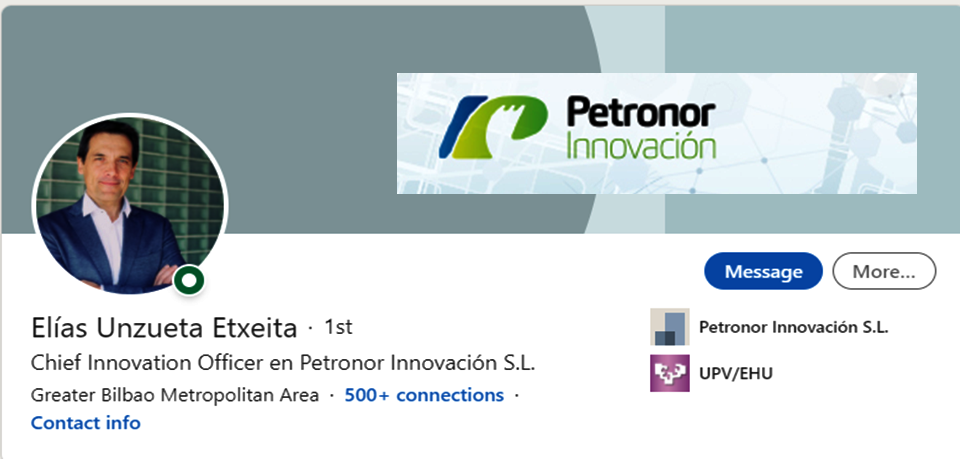
Dr. Elías Unzueta Etxeita, Chief Innovation Officer (CIO), Petronor Innovación S.L., Bilbao,Basque Country, Spain.

Prof. Ibone Ametzaga Arregi, Director UNESCO Chair - Sustainable Development and Environmental Education (GIEIHB), Director of MSc. on Environmental Sustainability, Univ. of Basque Country (UPV/EHU), Basque Country, Spain.

Prof. Sonia Arrasate, Director of MSc. on Environmental Sustainability, Dept. of Org. and Inorg. Chem., Univ. of Basque Country (UPV/EHU), IKERDATA S.L. UDC-UPVEHU, ZITEK, Co-Founder and Scientific Advisory Board Member, Leioa, Basque Country, Spain. Bizkaia. Email: sonia.arrasate@ehu.eus
 Dr. Guillermin Agüero, CIIMAR, Interdisciplinary Centre of Marine and Environmental Research, University of Porto, Portugal.
Dr. Guillermin Agüero, CIIMAR, Interdisciplinary Centre of Marine and Environmental Research, University of Porto, Portugal.
Email: gchapin@ciimar.up.pt
MODECO & Joint Scientific Committee
Prof. David Quesada, Dept. of Mathematics, Miami Dade College (MDC), Miami, FL, USA.
Prof. Terace Fletcher, Northeast Lakeview College, University of Texas, San Antonio, TX, USA.
Dr. Subhash C. Basak, Dept. of Chem. and Biochem., Univ. of Minnesota, Duluth, MN, USA.
Prof. Oscar M. Rivera Borroto, Houston Community College, Houston, TX, USA.
Prof. Agostinho Antunes, CIIMAR Research Centre, Univ. of Porto, Porto, Portugal.
Prof. Juan Pedro Gomez Martín, Univ. Rey Juan Carlos, Madrid, Spain.
MSc. Lucía Orbe Guijarro, Petronor Inn. S.L., Bilbao, Basque Country, Spain.
Dr. Dany Domínguez Pérez, CIIMAR Centre, University of Porto, Porto, Portugal.
Ph.D. Teresa Celestino, Università degli studi Roma TRE, Roma, Italy.
Prof. Amaury Pérez Martínez , Universidad Estatal Amazónica, Ecuador.
Prof. Estela Guardado, Universidad Estatal Amazónica, Ecuador.
MODECO Publication Steering Chairman
Prof. Humbert G. Díaz, IKERBASQUE Prof., Email: mol2net.chair@gmail.com
(1) Department of Organic Chemistry II and Basque Center for Biophysics,
University of the Basque Country UPV/EHU, Leioa, Biscay, Basque Country, Spain.
(2) IKERBASQUE, Basque Foundation for Science, Bilbao, Basque Country, Spain.![]() ORCID: https://orcid.org/0000-0002-9392-2797
ORCID: https://orcid.org/0000-0002-9392-2797
MODECO Publication Assistant Chairperson
Prof. Sonia Arrasate, Email: sonia.arrasate@ehu.eus
Dept. Org. & Inorg. Chem., Univ. of Basque Country (UPV/EHU), Basque Country, Spain.
MODECO ICTs, Bioethics & Regulatory Affairs Chairperson
Dr. Aliuska Duardo-Sanchez (Law.Lic., Ph.D. TICs & Legal Sciences)
PANELFIT European Commission Project Manager. Research Group: Chair in Law and The Human Genome,
Dept. of Public Law, University of Basque Country (UPV/EHU), Campus Biscay, Leioa 48940, Spain.
Congress Chairs
Dr. Gerardo Ruiz-Mercado, United States Environmental Protection Agency (EPA), Ohio, USA.
Dr. Guillermin Agüero, CIIMAR, Interdisciplinary Centre of Marine and Environmental Research, University of Porto, Portugal.
01. USE.DAT-07: USA-Europe Data Analysis Trends Congress, Cambridge, UK-Bilbao, Basque Country-Miami, USA, 2021


NEURODAT'21: IBRO-PERC Soft Skills Training
USEDAT Congress
Step (1), visit the list of [NEURODAT'21 IBRO PERCK lectures] or scroll down on this page to visit the List of Papers of the congress. Step (2), select one lecturer/channel or congress paper of the list and click over title to visit paper/lecture page. Step (3), scroll down, click on "Comment on this paper" button, and post your comment/question. Step (4), go to your email inbox to validate the question and make it public available. Step (5), authors/tutors will be advised by email and will answer your comments asap. Step (6), you can repeat it several times as you need for different papers/questions. Step (7), request your attendance certificate by email to mol2net.chair@gmail.com.
*Note (1): Posting rules, be polite, post only constructive scientific comments/questions related to the topic, be aware that comments will be moderated. **Note (2): English is the official language but some lecturers allow comments also in Euskera (Basque Language), Spanish, Romanian, Galego-Portuguese, Chinese, Norwegian, or Hebrew in order to promote cultural diversity. USEDAT'21 congress is now officially closed for submissions, if you want to upload/submit a paper contact our staff.
Topics of lectures and channels. All channels deal with topics related to the development of soft skills by students interested in Neurosciences. For instance, Neuroinformatics, Artificial Intelligence, Data analysis techniques, Machine learning, Cheminformatics & Drug discovery in Neurosciences, Critical assay writing, Neurosciences Regulatory issues, Biomedical research and Personal data protection, Chemical Neurosciences and Organic synthesis, Chemical characterization, NMR, IR, Mass Spectroscopy, of Chemical Compounds with Biological activity over the Central Nervous system, etc.
Instructions for Tutoring Channels students. The steps for participation are: (1) Wait for channel starting in 2021-Dec-25, you will see a posting comments option/button, (2) Register/login with your email and password to validate your user, (3) Post your question/comment for the Prof. of the channel, (4) Wait for the email advising that professor has answered your question, (5) Make other questions related to this topic or other topics, (6) Request your attendance certificate to mol2net.chair@gmail.com or directly to the email of the professor.
Lectures & Tutoring Channels notes. (1) Students are allowed to made multiple questions following the same discussion threat or open new questions. (2) Some professors may release different materials, slides, etc., that the student can use to study and/or follow the discussion, click the button bellow to see the pdf files. (3) Language note: some professors allow students to select their favorite language of interaction according to professor communications skills, accordingly materials, questions, and answers may appear in these languages. (4) The channel will be open until conference finish the post-publication stage, contact chairpersons for doubts: mol2net.chair@gmail.com Please see the list of invited talks and/or tutoring channels at follows, click on the title of talk/channel to visit it:
 Prof. Cristian R Munteanu, PhD. Assoc. Prof., Institute for Biomedical Research of A Coruña (INIBIC), Coruña.
Prof. Cristian R Munteanu, PhD. Assoc. Prof., Institute for Biomedical Research of A Coruña (INIBIC), Coruña.Doi: 10.3390/mol2net-07-12046
 Prof. Sonia Arrasate, Assoc. Prof., Dept. of Org. and Inorg. Chem., Univ. of the Basque Country UPV/EHU, Bilbao.
Prof. Sonia Arrasate, Assoc. Prof., Dept. of Org. and Inorg. Chem., Univ. of the Basque Country UPV/EHU, Bilbao.Doi: 10.3390/mol2net-07-12091
 Dr. Aliuska Duardo-Sanchez, Ph.D., Dept. of Public Law, Fac. of Law, Univ. of Basque Country (UPV/EHU), Bilbao.
Dr. Aliuska Duardo-Sanchez, Ph.D., Dept. of Public Law, Fac. of Law, Univ. of Basque Country (UPV/EHU), Bilbao.Doi: 10.3390/mol2net-07-12094
 Prof. Humbert Gonzalez-Diaz, IKERBASQUE Prof., Dept. of Org. and Inorg. Chem., Univ. of the Basque Country UPV/EHU, Bilbao.
Prof. Humbert Gonzalez-Diaz, IKERBASQUE Prof., Dept. of Org. and Inorg. Chem., Univ. of the Basque Country UPV/EHU, Bilbao.Doi: 10.3390/mol2net-07-12093
Reference: USEDAT: USA-Europe Data Analysis Training Worldwide Program, 2019 ed. Jerzy Leszczynski, David Quesada, Eugene Muratov, Matthew M. Montemore, James Robert Green, Suhbash C. Basak, Bakhtiyor Rasulev, Cristian R Munteanu, Alejandro Pazos, Yasset Perez-Riverol, Gloria Castellano, Maité Sylla, Daniel J.V.A. Do Santos, Natália D. S. Cordeiro, Bairong Shen, Pedro L. Fernandes, Esther Lete, Nuria Sotomayor, Sonia Arrasate, Aliuska Duardo, Humbert Gonzalez-Diaz. MOL2NET-05, International Conference on Multidisciplinary Sciences, ISSN: 2624-5078, MDPI SciForum, Basel, Switzerland, 2019, (1), 1-5, doi: 10.3390/mol2net-05-06254.
 Prof. Humbert González-Díaz, IKERBASQUE Professor, Email: mol2net.chair@gmail.com, MOL2NET & USEDAT Founder Chairman
Prof. Humbert González-Díaz, IKERBASQUE Professor, Email: mol2net.chair@gmail.com, MOL2NET & USEDAT Founder Chairman(1) Dept. of Organic Chemistry & Inorganic Chemistry, University of the Basque Country UPV/EHU , 48940, Leioa, Biscay, Spain.
(2) BIOFISIKA, Basque Center for Biophysics, University of the Basque Country UPV/EHU , 48940, Leioa, Biscay, Spain.
(3) IKERBASQUE, Basque Foundation for Science , 48011, Bilbao, Biscay, Spain.
(NEURODAT'21 IBRO-PERC Coordinator)

(NEURODAT'21 IBRO-PERC Tutor)
Prof. Shira Knafo, IKERBASQUE Professor, Molecular Cognition Laboratory, (1) Biophysics Institute (CSIC, UPV/EHU), Scientific and Technological Park of Biscay. University of The Basque Country UPV/EHU, Biscay, Spain. Ikerbasque, Basque Foundation for Science. (2) Ben-Gurion University of the Negev Faculty of Health Sciences: Beer Sheva, Southern, Israel.
(NEURODAT'21 IBRO-PERC Tutor)

Prof. Anna Lydia Svalastog, Faculty of Health and Welfare, Østofold University College, Østofold, Norway.
NKL-Network Chairperson, Associated researcher, Uppsala University, Uppsala County, Uppsala, Sweden.
(NEURODAT'21 IBRO-PERC Tutor), E-mail: als@hiof.no
 Prof. David Quesada, Full Professor, Chair of Department of Mathematics, Miami Dade College (MDC), Miami, FL, USA.
Prof. David Quesada, Full Professor, Chair of Department of Mathematics, Miami Dade College (MDC), Miami, FL, USA.
(NEURODAT'21 IBRO-PERC Tutor)
Email: dquesada@mdc.edu
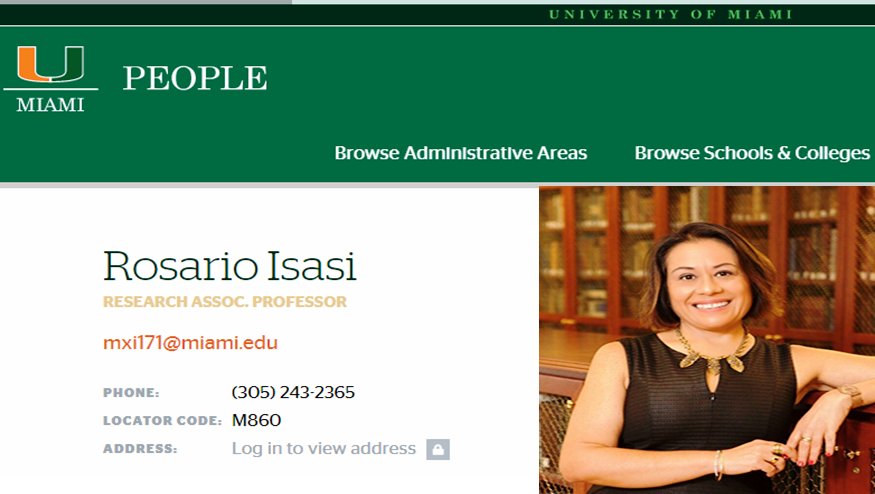 Dr. Rosario Isasi, Research Assoc. Prof., University of Miami, Miami, FL, USA.
Dr. Rosario Isasi, Research Assoc. Prof., University of Miami, Miami, FL, USA.(NEURODAT'21 IBRO-PERC Tutor), Email: mxi171@miami.edu

Dr. Aliuska Duardo-Sanchez (Law.Lic., Ph.D. TICs & Legal Sciences), (Ph.D. Legal Informatics), Chair in Law & The Human Genome Research Group, PANELFIT H2020, Project Manager & EDC Board Coordinator, Europe Commission, Faculty of Law, University of The Basque Country UPV/EHU, Leioa (Bilbao), Biscay, Basque Country, Spain.
(NEURODAT'21 IBRO-PERC Coordinator), Email: aliuska.duardo@ehu.es Prof. Sonia Arrasate, Department of Organic Chemistry II, University of Basque Country (UPV/EHU), Leioa, Sarriena w/n, Bizkaia.
Prof. Sonia Arrasate, Department of Organic Chemistry II, University of Basque Country (UPV/EHU), Leioa, Sarriena w/n, Bizkaia.
(NEURODAT'21 IBRO-PERC Coordinator), Email: sonia.arrasate@ehu.eus
 Prof. Natalia D.S. Cordeiro, Dept. of Chemistry and Biochemistry, Faculty of Sciences, University of Porto, Porto, Portugal.
Prof. Natalia D.S. Cordeiro, Dept. of Chemistry and Biochemistry, Faculty of Sciences, University of Porto, Porto, Portugal.
(NEURODAT'21 IBRO-PERC Tutor)
 Prof. Alejandro Pazos, Ph.D., M.D., Chair Director, Dept. of Comput. Sci., Univ. of Coruña (UDC), Coruña, Spain.
Prof. Alejandro Pazos, Ph.D., M.D., Chair Director, Dept. of Comput. Sci., Univ. of Coruña (UDC), Coruña, Spain.
(NEURODAT'21 IBRO-PERC Tutor), Email: apazos@udc.es

Prof. Bairong Shen, Exec. Dir., Institute for Systems Genetics, West-China Hospital, Sichuan University (SCU), Chengdu, China.
(NEURODAT'21 IBRO-PERC Tutor)
 Prof. Cristian R Munteanu, Department of Computer Sciences, University of Coruña (UDC), Coruña, Spain.
Prof. Cristian R Munteanu, Department of Computer Sciences, University of Coruña (UDC), Coruña, Spain.
Spain. (NEURODAT'21 IBRO-PERC Tutor)

People listed as collaborators and/or collaborating professors of the USEDAT school project are those who have: [i] acted as lecturer or coordinator of one of the courses; [ii] Acted as chairperson of one of the workshops, [iii] offered institutional and/or hosting support, [iv] acted as tutor and/or have sent at least one student to participate in courses of other centers.
Previous Professors/Collaborators [North America]:
Prof. Eugene Muratov i,ii, Eshelman School of Pharm., Univ. of North Carolina (UNC), Chapell Hill, USA.
Assist. Prof. Matthew M. Montemore i,iii,iv, Chem. & Biomol. Eng., Tulane University, New Orleans, USA.
Prof. James Robert Green i,ii,iii,iv, Dept. of Systems and Comput. Eng., Carleton University, Canada.
Prof. Terace Fletcher i,ii,iii,iv, Northeast Lakeview College, University of Texas, San Antonio, TX, USA.
Previous Professors/Collaborators [Europe]:
Prof. Humbert Gonzalez-Diaz (USEDAT Coord.)i,ii,iii,iv , Prof. Sonia Arrasate i,ii,iii,iv, Prof. Esther Lete (PhD Coord.)i,ii,iii,
Prof. Nuria Sotomayor (MSc Coord.)i,ii,iii, Prof. Fernando Plazaola (Dean)iii, Prof. Ma. Isabel Moreno (Dir. Dept.)ii,iii,
Dr. Aliuska Duardo (Fac. Law)i,ii,iii,iv, Univ. of The Basque Country (UPV/EHU), Leioa, Basque Country, Spain.
Prof. Cristian R Munteanu i,ii,iii,iv, Prof. Alejandro Pazos i,ii,iii,iv, University of Coruña (UDC), Coruña, Spain.
Dr. Yasset Perez-Riverol i,ii, European Bioinformatics Institute (EMBL-EBI), Cambridge, United Kingdom.
Prof. Pedro L. Fernandes i,ii,iii,iv, Bioinformatics Training Coordinator, Instituto Gulbenkian de Ciencia (IGC), Portugal.
Prof. Amaury Pérez Martínezii,iii, Amazon State Univ. (UEA), Ecuador.
Prof. Eduardo Tejera i,ii,iii,iv, Prof. Yunierkis Perez Castillo i,ii,iii,iv (Bio-Cheminformatics Group), Prof. Vinicio Armijos iii,iv,
Prof. Emilia Vasquez i,ii,iii,iv (Biotechnology), Universidad de Las Americas (UDLA), Quito, Ecuador.
Prof. Boris Mederos iii,iv, Dept. Phys. and Mathematics, Univ. Autónoma de Ciudad Juárez (UACJ), México.
Prof. Marcus T Scotti i,ii,iii, Dir. Cheminformatics Lab., Universidade Federal da Paraíba (UFPB), Brazil.
Prof. Esvieta Tenorio-Borroto i,ii,iii,iv , Universidad Autónoma del Estado de México (UAEM), Mexico.
USEDAT Sponsors (Past Editions)
Institutions or projects that have sponsored at least one of our profs, students, or workshops: IKERBASQUE, Basque Foundation for Science (https://www.ikerbasque.net/), CHAIN European Commission project, SPRI Basque Government Elkartek Petronor Project KK-219/0037, MDPI Switzerland, NASA STEM-SPACE Grant P03C1160161, MSCA Europe Commission, FCT Portugal, NSF China, COLCIENCIAS Colombia, SENESCYT Ecuador, CONACYT, DELFIN Program México, and PANELFIT H2020 Europe Commission Project: https://www.researchgate.net/project/PANELFIT-H2020-EU-Project

Show all published submissions (28) Hide published submissions (28)
Submissions
List of Papers (28) Toggle list
05. AI.MED-08: AI, Neuro Sciences, Med. Info., & Biomed. Eng. Congress, Coruña, Spain-Carleton, Canada-Stanford, USA, 2021
[MOL2NET 2015] [MOL2NET 2016] [MOL2NET 2017] [FACEBOOK (>10K followers)]
[Welcome Videos] [官话] [हिन्दी] [Euskera] [Castellano] [Português] [Français]

NEURODAT'21: IBRO-PERC Soft Skills Training
Computational Data Analysis Soft Skills Hands-on Training Courses
IBRO-PERC Neurosciences Students, Enrollment Free of Charge
(5) Follow the link in the email or login to upload paper (doc and pdf format).
(6) Login to post comments, questions, or answers in a section or in one of the MOL2NET workshops.
Workshop Chairpersons

Prof. Alejandro Pazos, Ph.D., M.D., Chair Professor
(1) Department of Computer Science and Information Technologies, Faculty of Computer Science, University of A Coruña, CITIC. Campus Elviña s/n, 15071, A Coruña, Spain. (2) Group of Networks of Artificial Neurons and Adaptive Systems - Medical Imaging and Radiological Diagnosis (RNASA-IMEDIR). Biomedical Research Institute of A Coruña (INIBIC). University Hospital Complex of A Coruña (CHUAC), Sergas. University of Coruña (UDC). Xubias de arriba 84, 15006, A Coruña, Spain.

Dr. Marcos Martínez Romero, Stanford Center for Biomedical Informatics Research (BMIR), STANFORD University, USA.
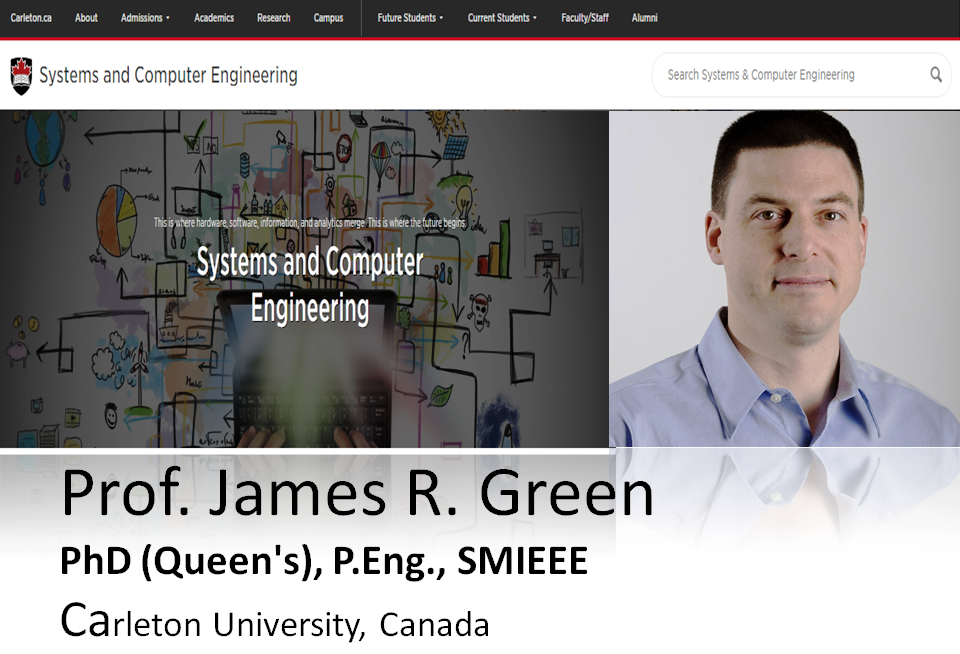
Prof. James Robert Green, Email: jrgreen@sce.carleton.ca
Dept. of Systems and Comput. Eng., Carleton University, Canada.
Video Conferences Playlists
Please, visit the channel of the RANASA-IMEDIR group and/or follow the present link to visualize all the video conferences presented o this workshop [IWMEDIC playlist]. You can see these conference also on the IWMEDIC - MOL2NET shared playlist as alternative landing page [IWMEDIC mirror].
MDPI-AIMEDIC Committee Special Issues
In parallel, the members of GALMICROBIOTA workshop series committee have been/are organizing special issues for different journals of the editorial MDPI (http://www.mdpi.com/). Some special issues arenow in call for papers, submissions are welcome a posteriori, in parallel, or totally independently from the conference. Manuscripts should be submitted online at MDPI (http://www.mdpi.com/) by registering and logging in to this website. In order to send a proposal of associated workshop and/or special issue contact the chairperson of the MOL2NET conference Prof. Humbert Gonzalez-Diaz. IKERBASQUE Prof., University of the Basque Country (UPV/EHU), Biscay,Basque Country, Spain. Email: mol2net.chair@gmail.com. Please, check the following list of past and present special issues associated to our conference:

Chemosensors (Call For Papers): Special Issue: Analytical and Computational Systems in Biosensing. Journal: Chemosensors (ISSN 2227-9040), JCR IF = 3.398. Editors: Dr. Jose Manuel Andrade, Group of Applied Analytical Chemistry, University of A Coruña, CITIC, A Coruña 15071, Spain. Prof. Marcos Gestal Pose, Department of Computer Science and Information Technologies, Research Centre in Information and Communications (CITIC), Faculty of Computer Science, University of A Coruña, CITIC, A Coruña 15071, Spain. Submission Until: 2021-Dec-30.

Applied Sciences (Call For Papers): Special Issue: Analytical and Computational Systems in Biosensing. Journal: Applied Sciences (ISSN 2227-9040), JCR IF = 3.398. Editors: Prof. Javier Pereira, Faculty of Health Sciences, University of A Coruña, Spain. Prof. Manuel F. González Penedo, Research Centre in Information and Communications (CITIC), Faculty of Computer Science, University of A Coruña, CITIC, A Coruña 15071, Spain. Submission Until: 2021-Dec-31.

AIMEDIC Scientific Committee
Prof. Vanessa Aguiar Pulido, Dept. Comput. Science, University of Miami, Miami, FL, USA.
Dr Shameer Khader, Dir. Digital Health & Genomic Medicine, AstraZeneca, New York, USA.
Prof. Víctor Maojo García, AI Department, Polytechnic University of Madrid, Madrid, Spain.
Prof. Fernando Martin, Biomedical Informatics, Carlos III Health Institute, Madrid, Spain.
MD PhD. Francisco X. Romero-Duran, IMQ Zorrotzaure Clinic, Bilbao, Basque Country, Spain.
MD PhD. Maria D. Pastor, Univ. Hospital Cruces, Osakidetza, Baracaldo, Basque Country, Spain.
PhD. David Albesa-Jové, BIOFISIKA, Basque Center for Biophysics, Leioa, Basque Country, Spain.
Prof. Julián Dorado de La Calle, Fac. of Informatics, University of Coruña, Galicia, Spain.
Prof. Carlos Fernandez-Lozano, Fac. of Informatics, University of Coruña, Galicia, Spain.
Prof. Cristian Robert Munteanu, Fac. of Informatics, University of Coruña, Galicia, Spain.
Prof. Nieves Pedreira, Fac. of Informatics, University of Coruña, Galicia, Spain.
Prof. Javier Pereira, Fac. of Informatics, University of Coruña, Galicia, Spain.
Prof. Ana B Porto-Pazos, Fac. of Informatics, University of Coruña, Galicia, Spain.
Prof. Juan R. Rabuñal, Fac. of Informatics, University of Coruña, Galicia, Spain.
Prof. Marcos Gestal Pose, Fac. of Informatics, University of Coruña, Galicia, Spain.
Prof. Adrián Carballal Mato, Fac. of Informatics, University of Coruña, Galicia, Spain.
Prof. Enrique Fernández Blanco, Fac. of Informatics, University of Coruña, Galicia, Spain.
Dr. Antolín Rodriguez Martínez, Hospital San Rafael A Coruña, Galicia, Spain.
TECHLAWSCI-05: PANELFIT & NKL H2020 Tech. Law. & Sci. Challenges Congress.

TECHLAWSCI-05: PANELFIT & NKL H2020 Tech. Law. & Sci. Challenges Congress, Bilbao, Spain, Halden, Norway, Baltimore, USA, 2021. TECHLAWSci congress series promotes multidisciplinary collaborations and debate in the emerging frontiers beteen of New Computational and Biological Technologies and Law, Education, Ethics, and Social Sciences in general. The congress runs on-line and free, saving traveling and participation costs (subscriptions, open publication, participation in forum, certificates, etc., are free of cost). The presentations will be focused on legal trends in different fields covering, but not limited to:
Biomol. & Medical Sciences, Law, & Bioethics. Patentability in plants and human genomics. Clinical procedures’ standards. Personalised Medicine and Patients’ personal data protection, informed consent. Regulatory issues in Vaccine design, Drug Discovery, Biomedical research legislation. Medical affairs, medico-legal problems, healthcare malpractice, medical insurance or ethics in medical practice, and social sciences. Taxes in the Biotechnology industry and causality/liability in environmental pollution, criminology, etc.
ICTS, Law, Education, Commerce, & Social Sciences. Law and Bioethics in Artificial Intelligence. Taxes and causality/liability in Online Social Networks, Online E-Commerce, and Cryptocurrency, e.g, Bitcoin. Cybersecurity and Personal Data Protection in Web Applications and Online Social Networks, e.g., Whatsapp, Skype, Facebook, Tik Tok, Instagram, etc. Online Education, Mutual Learning, Massive Online Courses. Software protection in Chemo-informatics, Bioinformatics, Medical informatics and Biomedical Engineering.
PANELFIT & NKL4 Sponsorship. TECHLAWSCI is sponsored by the European Commission Project PANELFIT H2020. In this sense, the workshop series will help to attract the attention of the pubic worldwide over the topics of the project. The project is concerned about changes in the regulation of ICT research and innovation are opening up a new scenario. It is expected that stakeholders, policy makers, and end users adapt to them as soon as possible. PANELFIT is firmly committed to facilitating this adaptation process by producing a set of editable, open access Guidelines, validated by two data protection agencies. TECHLAWSCI is also sponsored by Navigating Knowledge Landscape (NKL) Network. The aim of the Navigating Knowledge Landscapes network is to develop international and inter- and transdisciplinary collaborations, which will explore the area of online and offline communication and distribution of health and biomedical information and knowledge.
Publication Model and Authors Responsibility: Before to submit your work be aware that the editorial process is the same than for a PREPRINT service. Therefore, all works receive doi number and are indexed in databases (GoogleScholar, Publons, etc.). However, the works published here are preliminary communications and not post-print journal papers. In this sense, committee and/or external reviewers check only scope and apparent scientific soundness. The works may receive also comments from registered participants (public post-publication review). The authors are encouraged to submit their works to a peer-reviewed scientific journals of MDPI or other editorials during or after finalization of the conference, as per SciForum copyright rules.
In any case, it is the responsibility of the authors, to ensure the veracity of the contents, checking similarity to other works, and carry out a proper citation of previous works. The committee is not responsible of this previous aspects in this publishing modality. In this sense, we strongly recommend the authors to use online text-similarity checking services to avoid any form of plagiarism or copyright violation. Some workshops in this conference series use specialized services to checked for possible text similarity. For instance, some users use institutional accounts for URKUND web server. Please, be aware that the authors may be requested to modify (re-write their texts) the communication in the case that high similarity is detected and reported to the committee. In these cases, the manuscript could temporarily withdrawn until the authors re-submit the proper version. The authors are also allowed to submit short reviews, comments, letters, or discussions of papers already published if they guarantee sufficient difference to previous public contents.
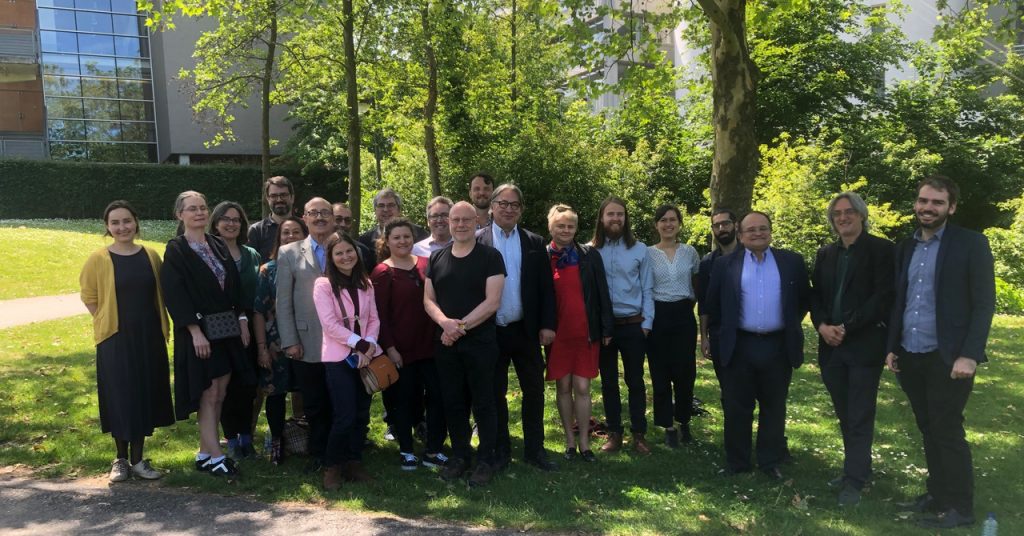
PANELFIT MOOC Training Program: This year, we are promoting a totally free of cost Massive Online Open Course (MOOC) about ICTs, Data Analysis, and GDPR Data Protection Legislation, click here to enroll on last edition [PANELFIT MOOC]. The main organizer of this course is PANELFIT H2020 European Union project, grant agreement No 788039. You are welcome to register (FREE), watch some videos, and answer some questions to complete it. It is open the registration period for the free online course: Ethical and Legal issues regarding ICT Data Protection. This course is offered within the framework of the PANELFIT H2020 Project by the University of the Basque Country UPV/EHU, with the help of the Partners and especially of the European Citizen Science Association (ECSA). The specific objective of this course is to train citizens on basic ethical and legal issues related to the protection of personal data, in accordance with the new European Data Protection Regulation and complementary regulations. This MOOC is also a complementary training for PhD/MSc and Degree students of Computational Sciences, Data Analysis, Machine Learning, Cheminformatics, Bioinformatics, Law and Legal Sciences, Medicine and Biomedical Research, .... etc. The student of the course are invited to submit a short communication (1 page) summarizing the content of the course to be published free of cost in the TECHLAWSCI-05: PANELFIT & NKL H2020 Tech. Law. & Sci. Challenges Congress, Bilbao, Spain, Halden, Norway, Baltimore, USA, 2021, click here to submit [TECHLAWSCI-05].
 NEURODAT'21: IBRO-PERC Soft Skills Training
NEURODAT'21: IBRO-PERC Soft Skills Training
The present MOOC course is also directed to all the students of the USEDAT: USA-EU Data Analysis Training Program Congress. This dual congress/training program is sponsored by the International Brain Research Organization (IBRO). NEURODAT'21 IBRO-PERC Soft Skills Training course inside USEDAT program put emphasis on medicine (neurosciences) students but is also directed to chemistry, law, computer sciences students. The course offer soft skills training focused on data analysis techniques, machine learning, artificial intelligence, cheminformatics, drug discovery, critical assay writing, regulatory issues, personal data protection, critical assay writing, etc. click here to enroll [USEDAT-NEURODAT], which training courses or participate on this congress.
TECHLAWSci Steering Committee
Prof. Dr. Carlos María Romeo Casabona, Full Professor University, Director of Research Group: Chair in Law and The Human Genome, Department of Public Law, University of Basque Country (UPV/EHU), Faculty of Law, Campus Biscay, Leioa 48940, Spain. Member of The European Group on Ethics in Science and New Technologies (EGE), Brussels, Belgium. Member of The Council of Europe Steering Committee on Bioethics (CDBI), Strasbourg, France. PANELFIT H2020, Project Coordinator.
Email: carlosmaria.romeo@ehu.es
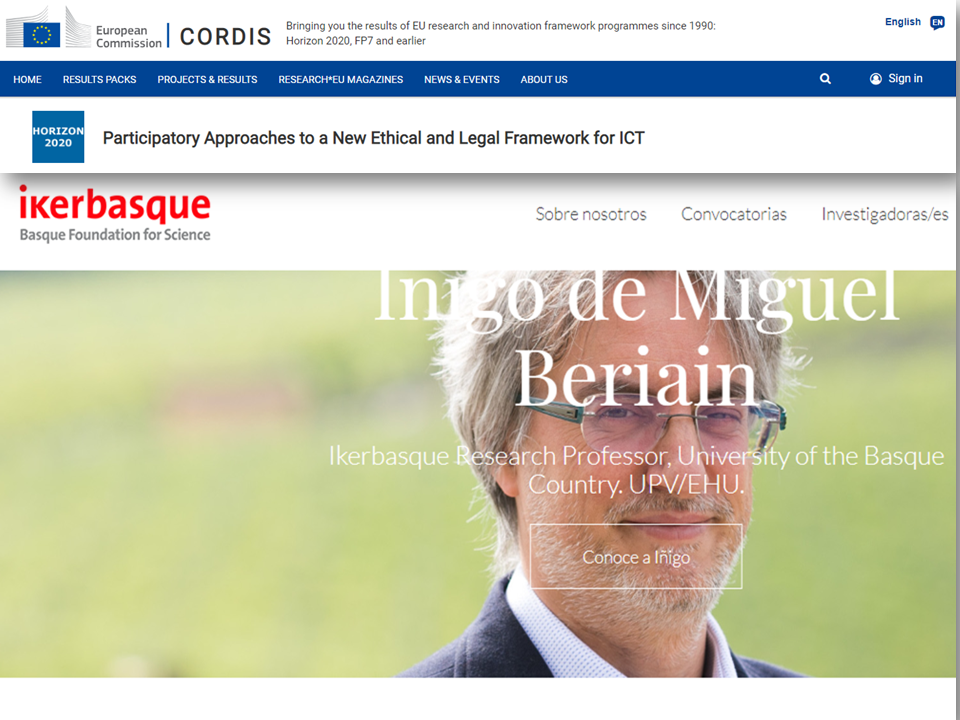
Prof. Dr. Iñigo de Miguel Beriain, IKERBASQUE Professor, Research Group: Chair in Law and The Human Genome, Department of Public Law, University of Basque Country (UPV/EHU), Faculty of Law, Campus Biscay, Leioa 48940, Spain. Lecturer at The National Distance Education University (UNED), Biscay, Spain. E-mail: inigo.demiguelb@ehu.es

Prof. Anna Lydia Svalastog, E-mail: als@hiof.no, Full Professor NKL-network chair, Faculty of Health and Welfare,
Østofold University College, Østofold, Norway. Associated Researcher Uppsala University, Uppsala, Sweden.

Dr. Rosario Isasi, Research Assoc. Prof., University of Miami, Miami, FL, USA.

Prof. Barbara Prainsack, NKL Conference, University of Vienna, Director CeSCoS, University of Vienna, Austria.

Dr. Aliuska Duardo-Sanchez (TECHLAWSCI Chairperson, NIXCSM TICs & Bioethics Chairperson, Law.Lic., Ph.D. TICs & Legal Sciences), (Ph.D. Legal Informatics), Chair in Law & The Human Genome Research Group, Faculty of Law, University of The Basque Country UPV/EHU, Leioa (Bilbao), Biscay, PANELFIT H2020, Project Manager & EDC Board Coordinator, Europe Commission. Email: aliuska.duardo@ehu.es
LAWSci-PANELFIT Honor Committee

Prof. Dr. Frank Pasquale. Professor of Law, University of Maryland Francis King Carey School of Law, Baltimore, MD, USA. JD, Yale Law School; MPhil, Oxford University; BA, Harvard University, Summa cum laude, E-mail: fpasquale@law.umaryland.edu

Prof. Dr. Antonio López Díaz, Rector of University and Professor of Department of Special Public Law, Faculty of Law, University of Santiago de Compostela (USC), Spain. Email: antonio.lopez.diaz@usc.es
TECHLAWSCI Scientific Committee
Prof. Dr. Cesar García Novoa
Chair Department of Special Public Law, Faculty of Law, University of Santiago de Compostela (USC), Spain.
E-mail: cesar.garcia@usc.es
Prof. Alejandro Pazos, Ph.D., M.D., Chair Professor, Director Dept. of Computer Science and Information Technologies,
Biomedical Research Institute of A Coruña (INIBIC). University Hospital Complex of A Coruña (CHUAC), Sergas.
University of A Coruña, A Coruña, Spain. Email: alejandro.pazos@udc.es
Prof. Dra. Mª Pilar Nicolás Jiménez, Group: Chair in Law and The Human Genome, Department of Public Law,
University of Basque Country (UPV/EHU), Faculty of Law, Leioa 48940, Spain. Emails: mariapilar.nicolas@ehu.es
Prof. Dra. Mª Begoña Villaverde Gomez, Consellera de Contas da Xunta de Galicia (Minister of Auditors of Galicia Government)
Department of Special Public Law, Univ. of Santiago de Compostela (USC), Spain.
Prof. Dr. Marcos Almeida, Director of the Observatory for Regulation of Public Entities. Professor and Secretary of Department of Public Law, University of Santiago de Compostela (USC), Spain.
Dr. Rocío García Carrión, Ikerbasque & Ramon y Cajal (RyC) Fellow, Faculty of Psychology and Education, University of Deusto, Bilbao, Spain. Email: rocio.garcia@deusto.es
Prof. Dr. Emilio José Armaza Armaza, Lecturer of Criminal Law, Ramon y Cajal (RyC) Fellow, Erasmus Mobility Coordinator, School of Law, University of Deusto, Bilbao, Spain. E-mail: emilio.armaza@deusto.es,erasmus.derecho@deusto.es
Prof. Dr. Miren Josune Pérez Estrada, Department of Public Law, Faculty of Law, University of the Basque Country UPV/EHU, Campus Biscay, Leioa 48940, Spain. Email: mirenjosune.perez@ehu.eus
Prof. Dr. Juan A. Lecaros, Professor Universidad del Desarrollo (UDD), Santiago de Chile, Chile, Director Observatorio de Bioética y Derecho, Santiago de Chile, Chile.
AIMEDIC Steering Chairman
Prof. Humbert G. Díaz, IKERBASQUE Professor, Email: mol2net.chair@gmail.com
(1) Department of Organic Chemistry II and Basque Center for Biophysics, University of the Basque Country UPV/EHU , 48940, Leioa, Biscay, Basque Country, Spain. (2) IKERBASQUE, Basque Foundation for Science , 48011, Bilbao, Biscay, Basque Country, Spain.![]() ORCID: https://orcid.org/0000-0002-9392-2797
ORCID: https://orcid.org/0000-0002-9392-2797
AIMEDIC Assistant Chairperson
Prof. Sonia Arrasate, Email: sonia.arrasate@ehu.eus
Dept. Org. & Inorg. Chem., Univ. of Basque Country (UPV/EHU), Basque Country, Spain.
AIMEDIC ICTs, Bioethics & Regulatory Affairs Chairperson
Dr. Aliuska Duardo-Sanchez (Law.Lic., Ph.D. TICs & Legal Sciences)
PANELFIT European Commission Project Manager. Research Group: Chair in Law and The Human Genome,
Dept. of Public Law, University of Basque Country (UPV/EHU), Campus Biscay, Leioa 48940, Spain.
SPONSORS
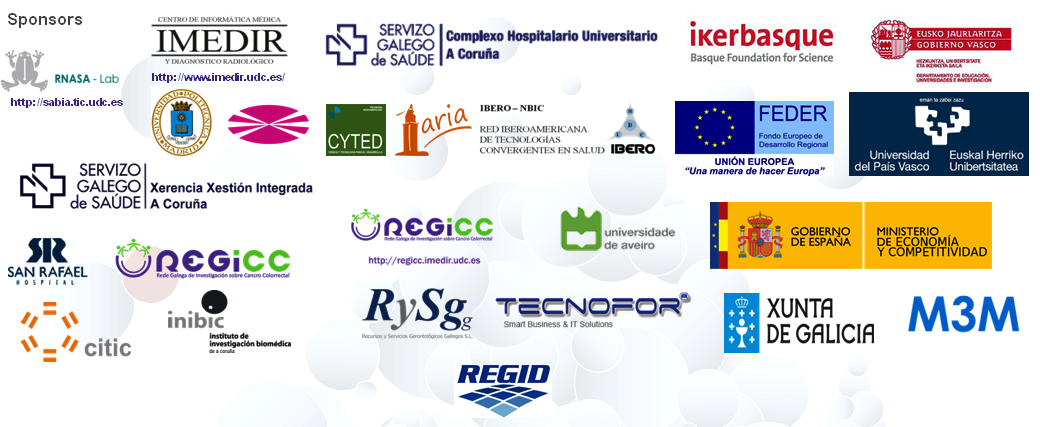
Show all published submissions (25) Hide published submissions (25)
Submissions
List of Papers (25) Toggle list
07. NICE.XSM-07: North-Ibero-America Congress on Exp. & Simul. Methods, Valencia, Spain-Miami, USA, 2021

Welcome Message
We are glad to inviting you to NICE.XSM-05: North-Ibero-America Congress on EXperimental & Simulation Methods, Valencia, Bilbao, Spain - Miami, USA, 2021. Development of new experimental and computational methods are sometimes separated areas but more often runs hand-by-hand. In fact, Computer-assisted experimental techniques are of the major importance nowadays in Chemistry, Medicine, Economics, Engineering, Industry, Epidemiology, etc. For instance HPLC, NMR, PCR, X-Ray devices used in chemistry, medicine, food industry, transport, are all of them computer-assisted devices. The development of these devices implies a previous research in both the validation of the experimental technique (physics, chemistry, molecular biology) and the development of a user-friendly computer-assisted device (Mathematics, Data Analysis, Artificial Intelligence, Computer Engineering). Both research may run independently or totally coordinated from the very beginning. The congress publish totally free of charge communications in multidisciplinary sciences and engineering. Topics range from research on development and application of pure experimental methods (physics, chemistry, materials, nanotechnology, biotechnology, medicine, etc.) to pure computational simulation methods and/or further integration of both classes of methods on computer-aided experimental methods. The fields of application include, but are not limited to, Biomolecular Sciences, Biomedical Engineering, Materials, Environmental, Trade, Learning, Education, and Social sciences in general (see scope section). This is an inter-university transatlantic joint congress co-chaired by USA and Europe institutions. In first instance, the founder chairs are professors of the Institute of Molecular Science (ICMol), University of Valencia (UV), and the Catholic University of Valencia (UCV), Valencia, Spain. From the America's side the workshop is co-hosted by professors of Department of Mathematics Miami Dade College (MDC) and Department of Chemistry and Biomolecular Engineering, Tulane University (TULANE), New Orleans, USA. All in all, the workshop is associated to the MOL2NET International Conference Series on Multidisciplinary Sciences. MOL2NET (From Molecules to Networks) series is running this year MOL2NET-2021, International Conference on Multidisciplinary Sciences, ISSN: 2624-5078, MDPI SciForum, Basel, Switzerland, 2021. Consequently, the present congress is co-chaired and promoted as well by researchers of the University of The Basque Country (UPV/EHU) and IKERBASQUE, Basque Foundation for Science, Bilbao, Basque Country.
Working Languages. English is the main working language of the workshop. However, as a North-Ibero-American inclusive conference the workshop aims to accept papers to be published in multiple languages spoken on the countries, states, and communities of the entire North-Ibero-American area of influence. It involve, but is not limited to: México, Brazil, Spain, Portugal, USA, Canada, Chile, Ecuador, Basque Country, Catalunya, Valencia, Galicia, etc. Consequently, we accept papers on the following languages: English, Spanish, Portuguese, French, Basque (Euskera), Catalá / Valenciano, and Galego. We also accept bi-lingual posters in two-column format, e.g, English-Basque, English-Spanish, English-Portuguese, Spanish-Galego, etc.
Scope and Target Audience. This conference focus on both under-graduated, MSc, and PhD students, as well as Professors, Engineers, and Researchers. The topics of interest cover both Experimental and Computational Modelling and Simulation Methods.
The experimental methods made special emphasis on experimental methods in bio-molecular sciences and biomedical sciences. Examples of experimental methods of interest are those used on Biophysics, Molecular Biology, Medicinal Chemistry, Biomaterials, Biotechnology, Biomedical Engineering, etc. such as Microscopy, Spectroscopy (NMR, IR, Raman, X-Ray) for Biomolecules Characterization, Image recording methods (fNMRi), EEGG and ECG, etc.
The computational methods include, but are not limited to, Computational Biophysics, Computational Biology, Quantum Chemistry, Bioinformatics, Systems Biology, Complex Networks, Discrete Mathematics, Mathematical Analysis, Complex Networks Sciences, Statistics, Data Analysis, Artificial Intelligence (AI), Machine Learning, Deep Learning, etc. Last, not the least, the congress deals with all the Legal, Regulatory, and Bioethics issues emerging from the use of both experimental and modelling and simulation methods in the previous areas. This include, Drug, Gene, Protein, Vaccine, Biomarkers, and Biomaterials patentability, Personalized Medicine and Personal Data Protection, Cybersecurity, Cryptocurrency Mining, Data Protection in Personal Image Processing, Software and Models Copyrights, etc.
Abstract preparation and submission. We strongly recommend you to read carefully the notes to participants at the following page [Instructions to authors] about publication model, copyright, authors responsibilities, etc. Submit your communications in two steps, first submit your title, authors, and abstract. Next, upload your communication after abstract approval.
NICXSM Steps for Participation
(0) Register, Sign in/Login, to Sciforum platform [Sciforum login] (All the year).
(1) Submit the title and abstract, select a section or workshop (do not upload paper here) [Submit New Abstract] (until Dec-25).
(2) Wait for Sciforum abstract acceptance email, follow the link, and/or login to upload paper, doc and pdf format (until Dec-25):
(3) Download template doc and prepare your communication [IWIMSM Template File.doc] (until Dec-25).
(4) Wait for paper acceptance and publication emails (follow link to proofread your paper) (Asap after upload).
(5) Communicate with chairpersons if corrections are necessary, including past editions (All the year).
(6) Log in to post comments, questions, or answers in a section or one of the workshops (Dec-25 to end).
(7) Contact chairpersons if you need publication/attendance (posting) certificate (All the year)
NICXSM Honor Scientific Committee (Chairpersons)

Prof. Gloria Castellano, Director of Dept. of Exp. Sci. and Math., Catholic University of Valencia (UCV), Valencia, Spain.
Editor of NEREIS, ISSN: 1888-8550, Interdisc. Ibero-American J. Methods, Model. and Simul.
Email: gloria.castellano@ucv.es Prof. Francisco Torrens, Inst. of Molecular Science (ICMol), Univ. of Valencia (UV), Valencia, Spain.
Prof. Francisco Torrens, Inst. of Molecular Science (ICMol), Univ. of Valencia (UV), Valencia, Spain.
Email: francisco.Torrens@uv.es

Prof. Juan M. Ruso, Dept. Applied Physics, Fac. of Physics, Univ. of Santiago de Compostela (USC), Spain.
Email: juanm.ruso@usc.es

Prof. Vanessa Aguiar Pulido, Dept. Comput. Science, University of Miami, Miami, FL, USA.
Prof. David Quesada, Dir. of Dept. of Mathematics, Miami Dade Colege (MDC), Miami, FL, USA.
Email: dquesada@mdc.edu
 Prof. Natalia D.S. Cordeiro, Dept. of Chemistry and Biochemistry, University of Porto, Porto, Portugal.
Prof. Natalia D.S. Cordeiro, Dept. of Chemistry and Biochemistry, University of Porto, Porto, Portugal.
Email: ncordeir@fc.up.pt
 Prof. James Robert Green, Dept. of Systems and Comput. Eng., Carleton University, Canada.
Prof. James Robert Green, Dept. of Systems and Comput. Eng., Carleton University, Canada.

Prof. Jorge Gálvez, Dept. of Physical Chemistry, Faculty of Pharmacy, University of Valencia, Spain.

Prof. Wendy Gonzalez, Dir., Cent. Bioinfo., Simul. & Model. (CBSM), Univ. of Talca, Talca, Chile.

Prof. Marcus Tullius Scotti, Univ. Federal da Paraíba - Campus I, João Pessoa, Paraíba, Brasil.
Emails: mscotti@ccae.ufpb.br
NICXSM Scientific Committee
Prof. Gloria Castellano, Dir. Dept. of Exp. Sci. and Math., Catholic University of Valencia (UCV), Valencia, Spain.
Prof. Francisco Torrens, Inst. of Molecular Science (ICMol), Univ. of Valencia (UV), Valencia, Spain.
Prof. Matthew M. Montemore, Dept. Chem. & Biomol. Eng., Tulane University, New Orleans, LA, USA.
Prof. Diana M. Herrera-Ibatá, College of Vet. Med., Kansas State University, Manhattan, KS, USA.
Dr. Robersy Sánchez, Dept. of Biology, The Pennsylvania State University, Univ. Park, PA, USA.
Prof. Oscar M. Rivera Borroto, Dept. Mathematics, Houston Community College, Houston, TX, USA.
Prof. Facundo Pérez Giménez, Department of Phys. Chemistry, University of Valencia, Spain.
Prof. Jesus V. De Julián Ortiz, Department of Physical Chemistry, University of Valencia, Spain.
Prof. Alejandro Pazos, Ph.D., M.D., Dept. Comput. Sci., Univ. of Coruña (UDC), Coruña, Spain.
Prof. Cristian R. Munteanu, Dept. Comput. Sci., Univ. of Coruña (UDC), A Coruña, Spain.
Prof. Emilio Martinez-Nunez, Dept. of Physical Chemistry, Faculty of Chemistry, USC, Spain.
Dr. Maria Galvez-Llompart, Dept. of Phys. Chem., Fac. of Pharm., Univ. of Valencia, Spain.
Prof. Enrique Onieva, DEUSTOTECH Institute, University of Deusto, Bilbao, Spain.
Dr. Riccardo Zanni, Dept. of Phys. Chem., Fac. of Pharm., Univ. of Valencia, Spain.
Prof. Irina Moreira, CNC, Universidade de Coimbra, Coimbra, Portugal.
Dr. Guillermin Agüero, CIIMAR/CIMAR, University of Porto, Portugal.
Prof. Jose L Medina-Franco, Univ. Nac. Aut. de México (UNAM), México.
Prof. Carlos Polanco, Dept. of Math., Univ. Nac. Aut. de México (UNAM), México.
Prof. Ihosvany Camps, Federal University of Alfenas (UNIFAL-MG), Brazil.
Prof. Luciana Scotti, Universidade Federal da Paraíba, Campus I, Paraíba, Brasil.
Prof. Yovani Marrero-Ponce, University San Francisco de Quito, Quito, Ecuador.
Prof. Eduardo Tejera, Universidad de Las Americas (UDLA), Quito, Ecuador.
Prof. Zulamita Zapata, Universidad Pontificia Bolivariana, Medellín, Colombia.
Prof. Boris Mederos, Univ. Autónoma de Ciudad Juárez, México.
Prof. Julio Caballero, CBSM, Univ. of Talca, Talca, Chile.
NICXSM'21 Associated Congresses


UDLABIOTECH Scientific Advisory Committee
Prof. Pablo Castillejo, BIOMAS Group, Universidad de Las Américas (UDLA), Ecuador.
Prof. Maria A. Cruz, Dept. of Biotechnology, Universidad de Las Américas (UDLA), Ecuador.
Prof. Emilia Vasquez, Dept. of Biotechnology, Universidad de Las Américas (UDLA), Ecuador.
Prof. Andrea Cordero, Dept. of Biotechnology, Universidad de Las Américas (UDLA), Ecuador.
Prof. Fernando Rivas, FICA, Universidad de Las Américas (UDLA), Ecuador.
NICXSM Publication Steering Chairman
Prof. Humbert G. Díaz, IKERBASQUE Professor, Email: mol2net.chair@gmail.com
(1) Department of Organic Chemistry II and Basque Center for Biophysics, University of the Basque Country UPV/EHU , 48940, Leioa, Biscay, Basque Country, Spain. (2) IKERBASQUE, Basque Foundation for Science , 48011, Bilbao, Biscay, Basque Country, Spain. ![]() ORCID: https://orcid.org/0000-0002-9392-2797
ORCID: https://orcid.org/0000-0002-9392-2797
NICXSM Publication Assistant Chairperson
Prof. Sonia Arrasate, Dept. Org. & Inorg. Chem., Univ. of Basque Country (UPV/EHU), Basque Country, Spain.
Email: sonia.arrasate@ehu.eus
Congress Chairs
Prof. Dr. Gloria Castellano, Director of Dept. of Exp. Sci. and Math., Catholic University of Valencia (UCV), Valencia, Spain. Editor of NEREIS, ISSN: 1888-8550, Interdisc. Ibero-American J. Methods, Model. and Simul.
Prof. Dr. Francisco Torrens, Inst. of Molecular Science (ICMol), Univ. of Valencia (UV), Valencia, Spain.













































































